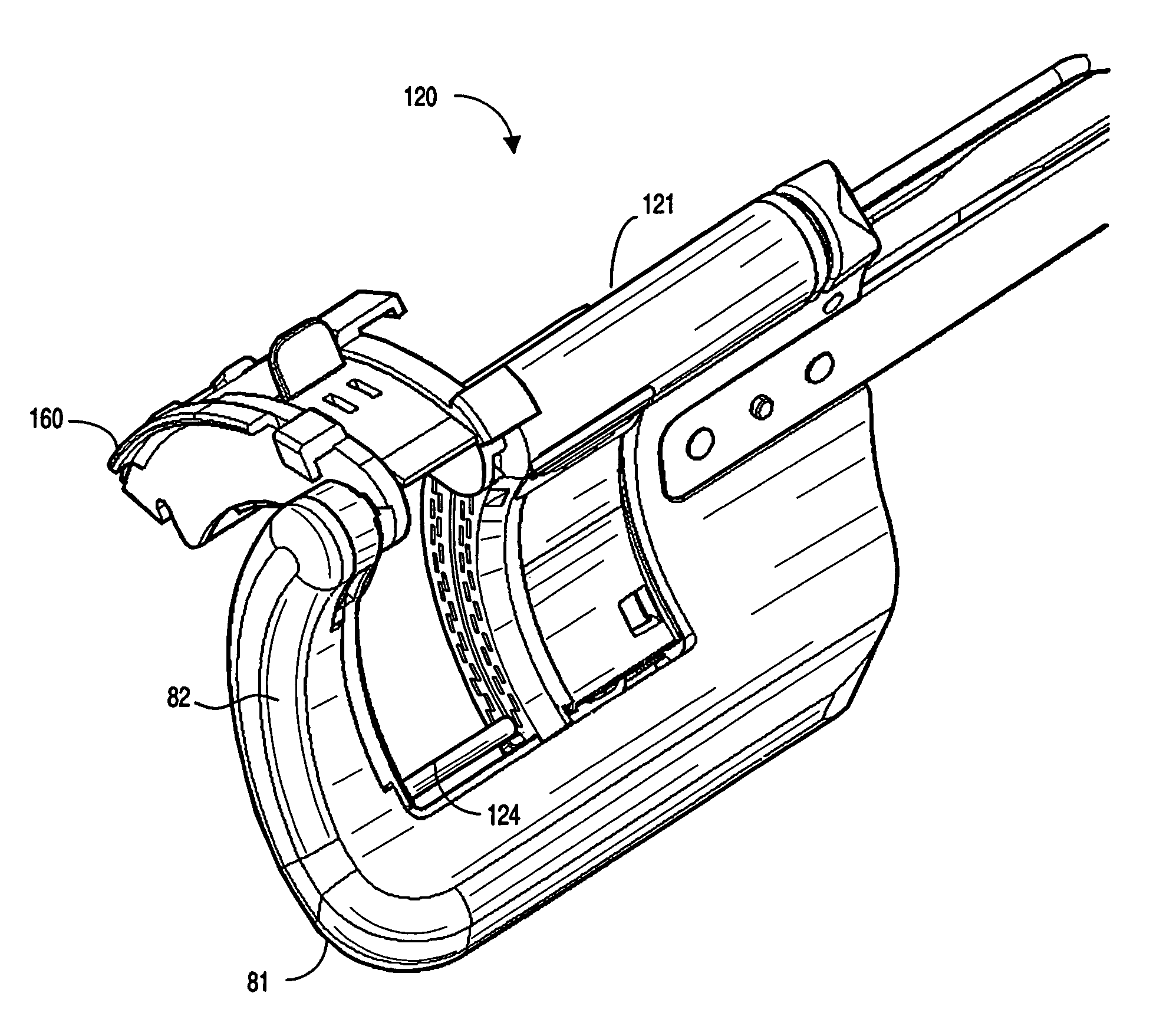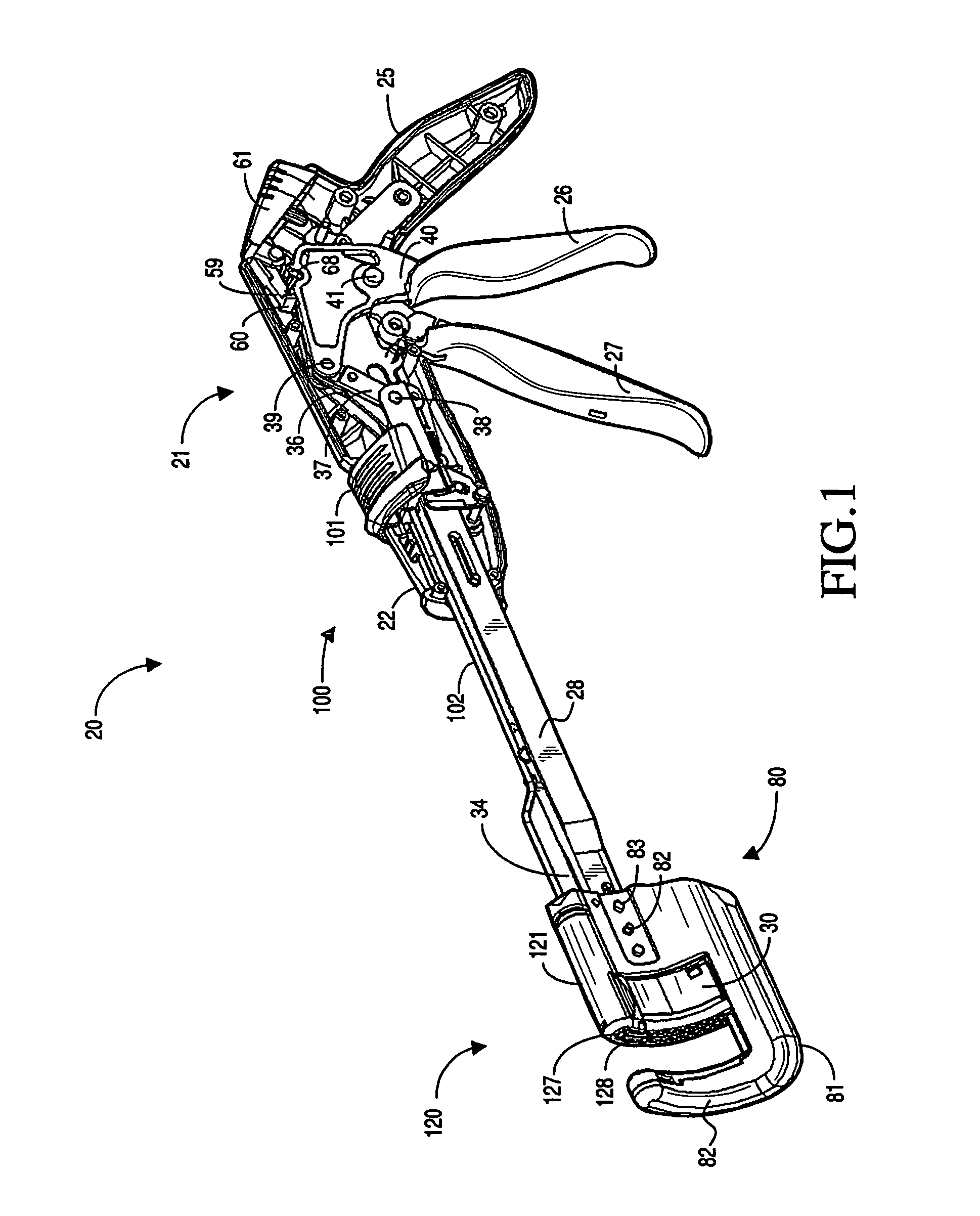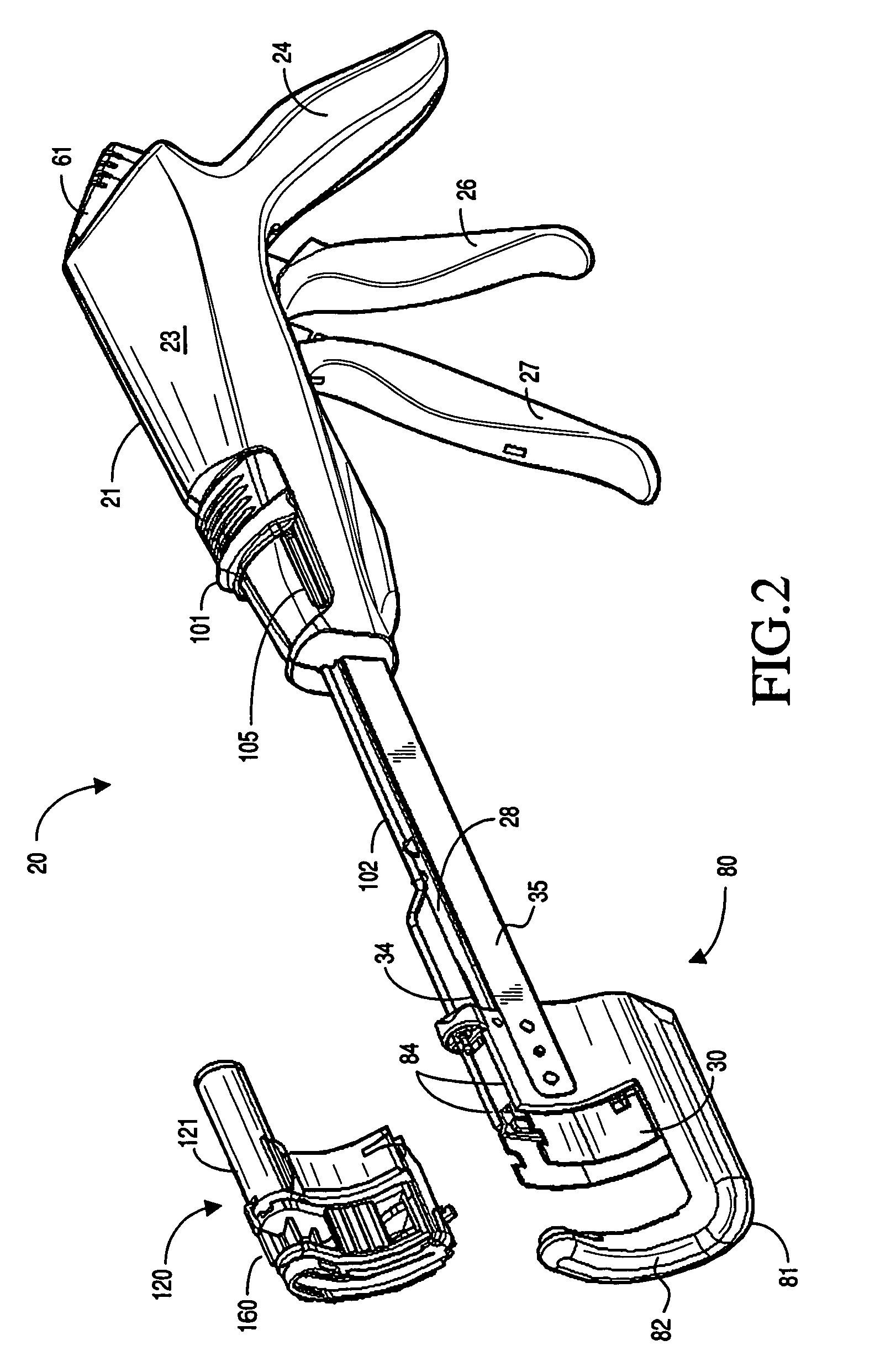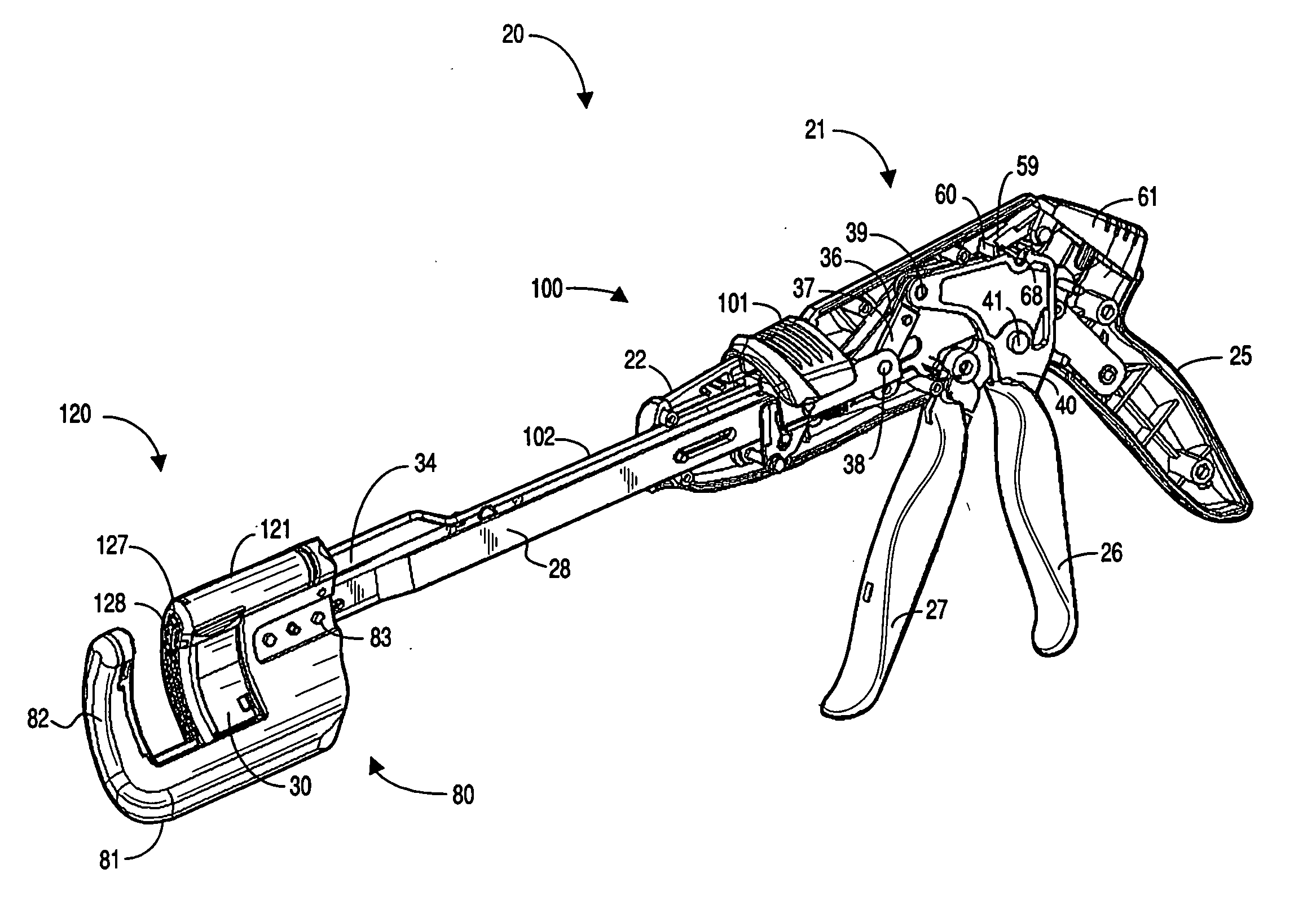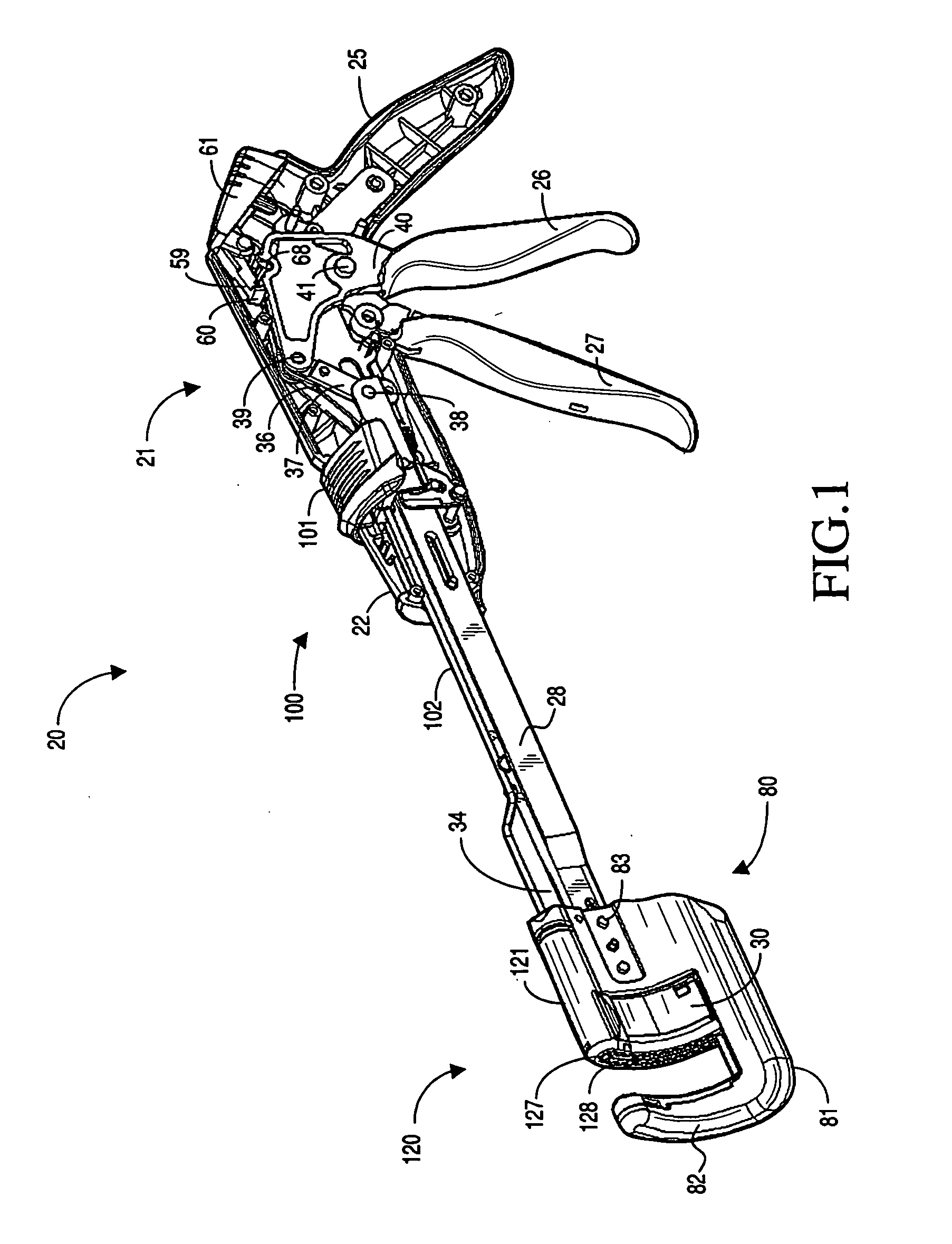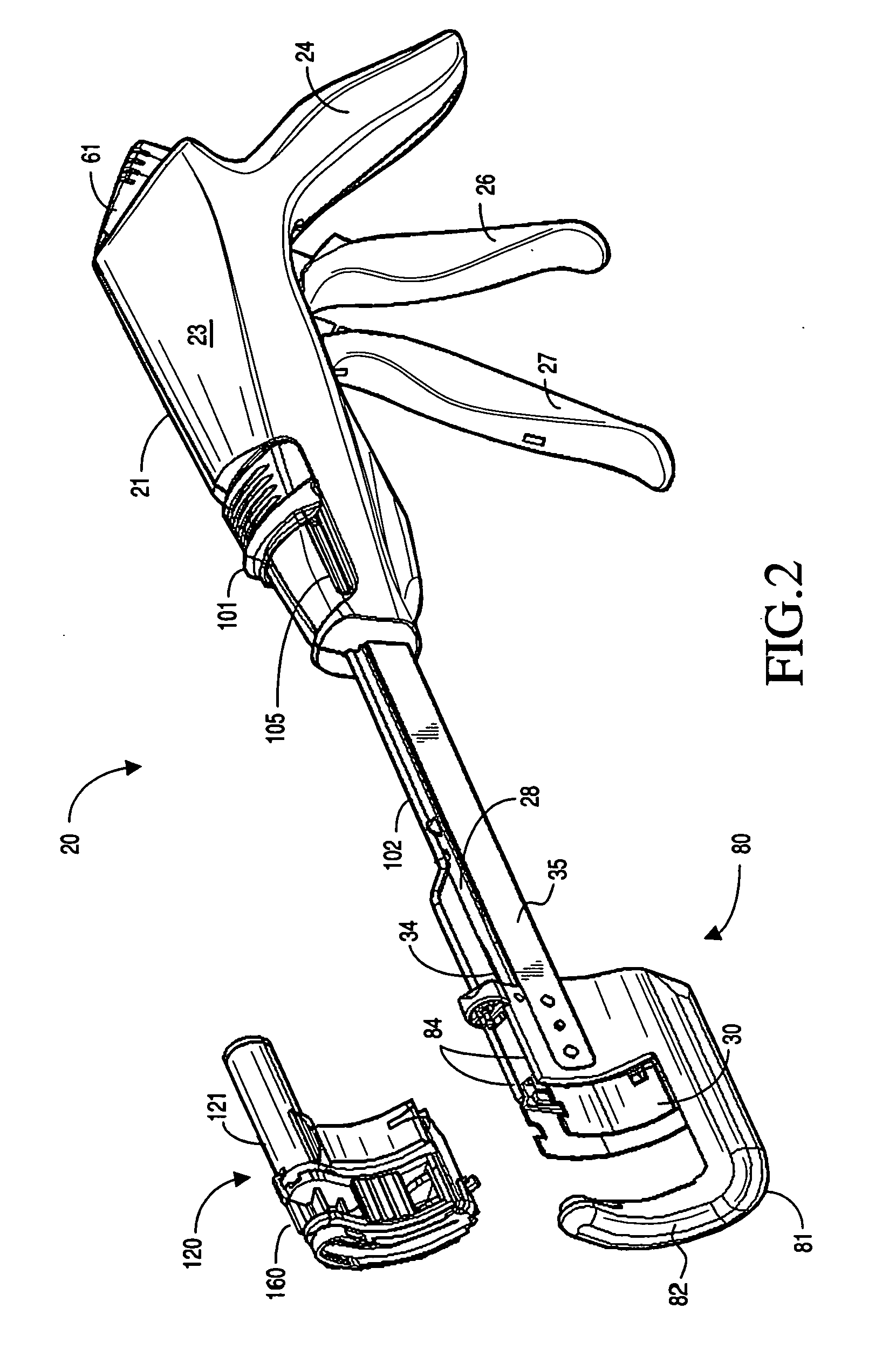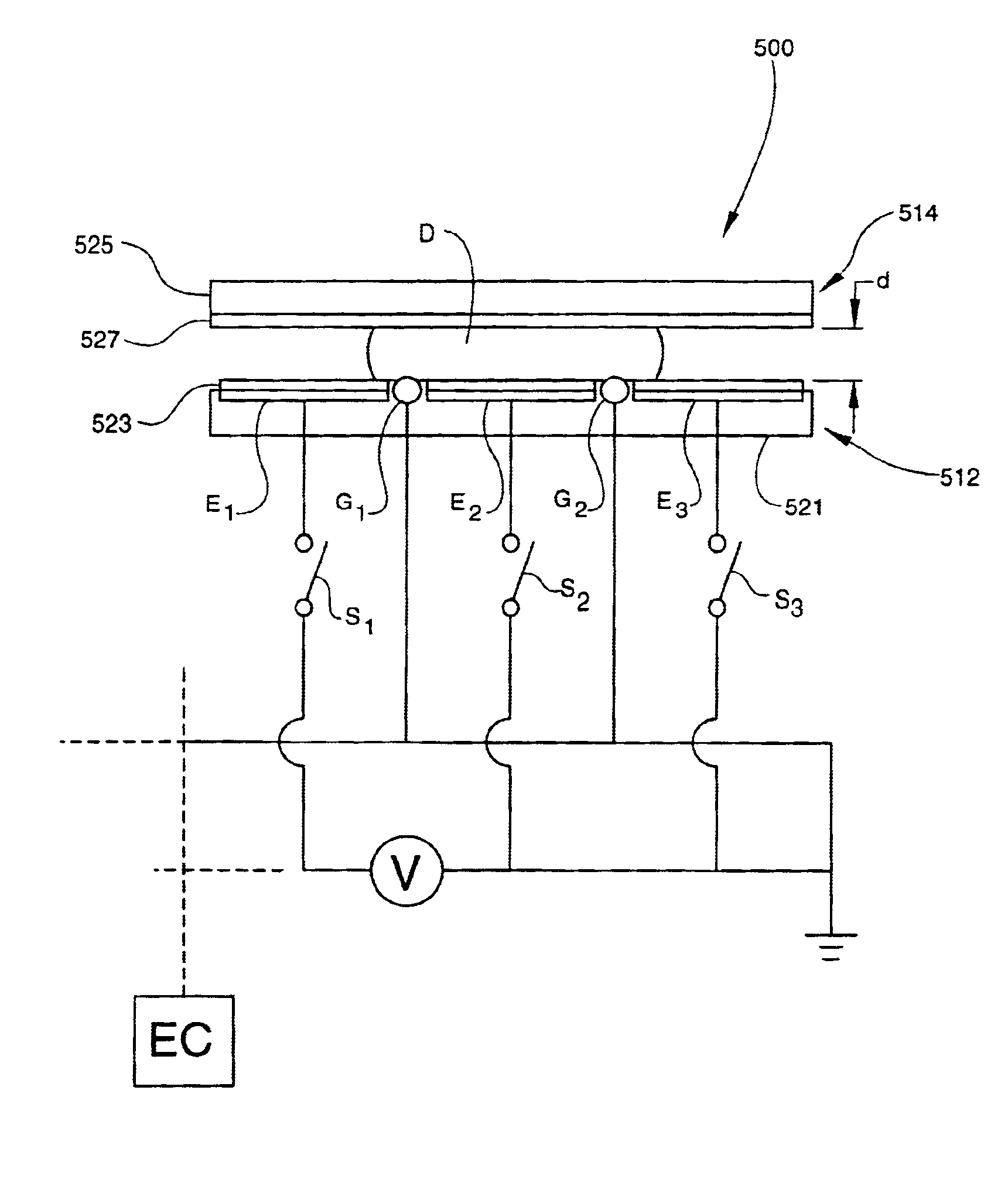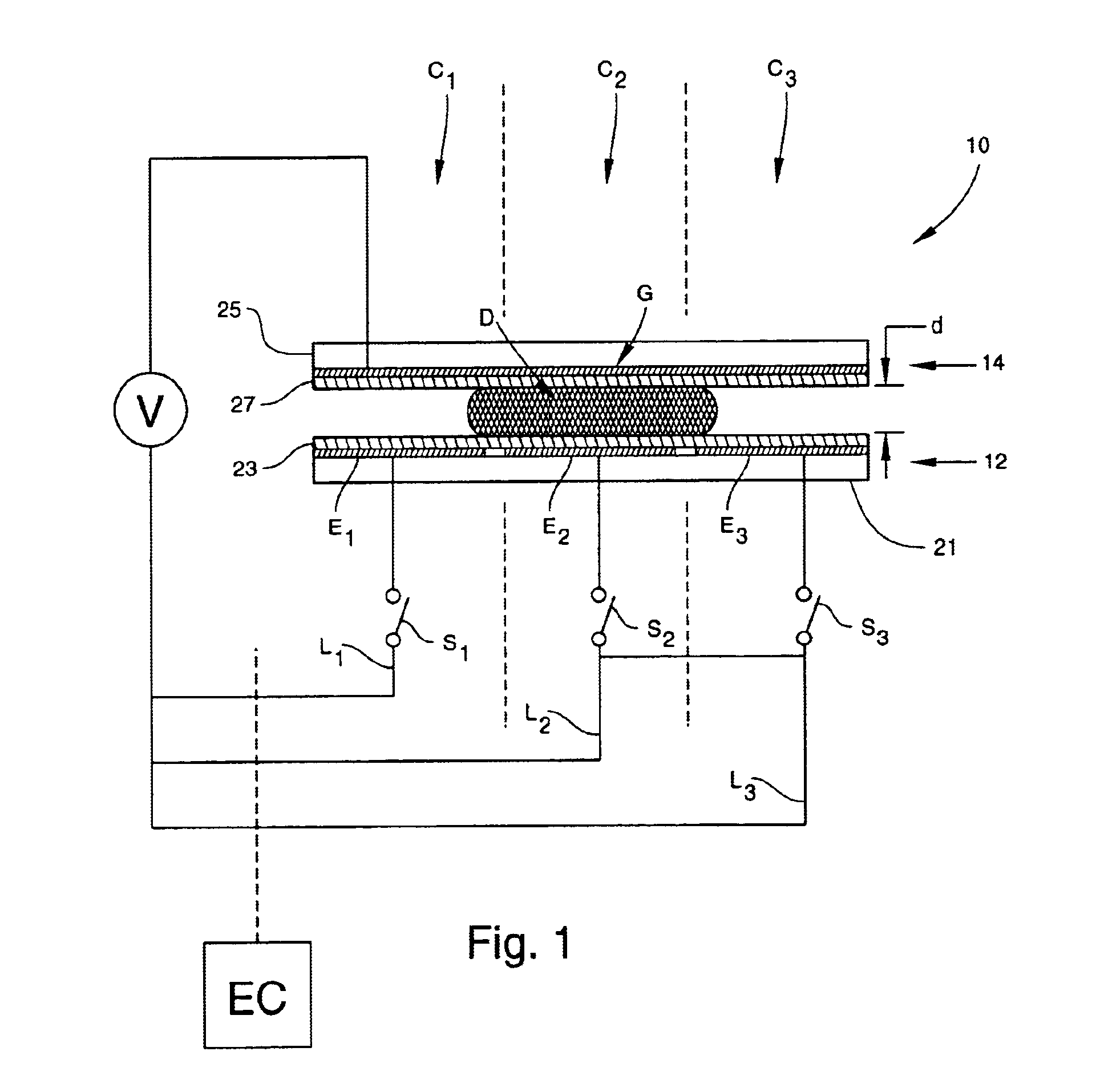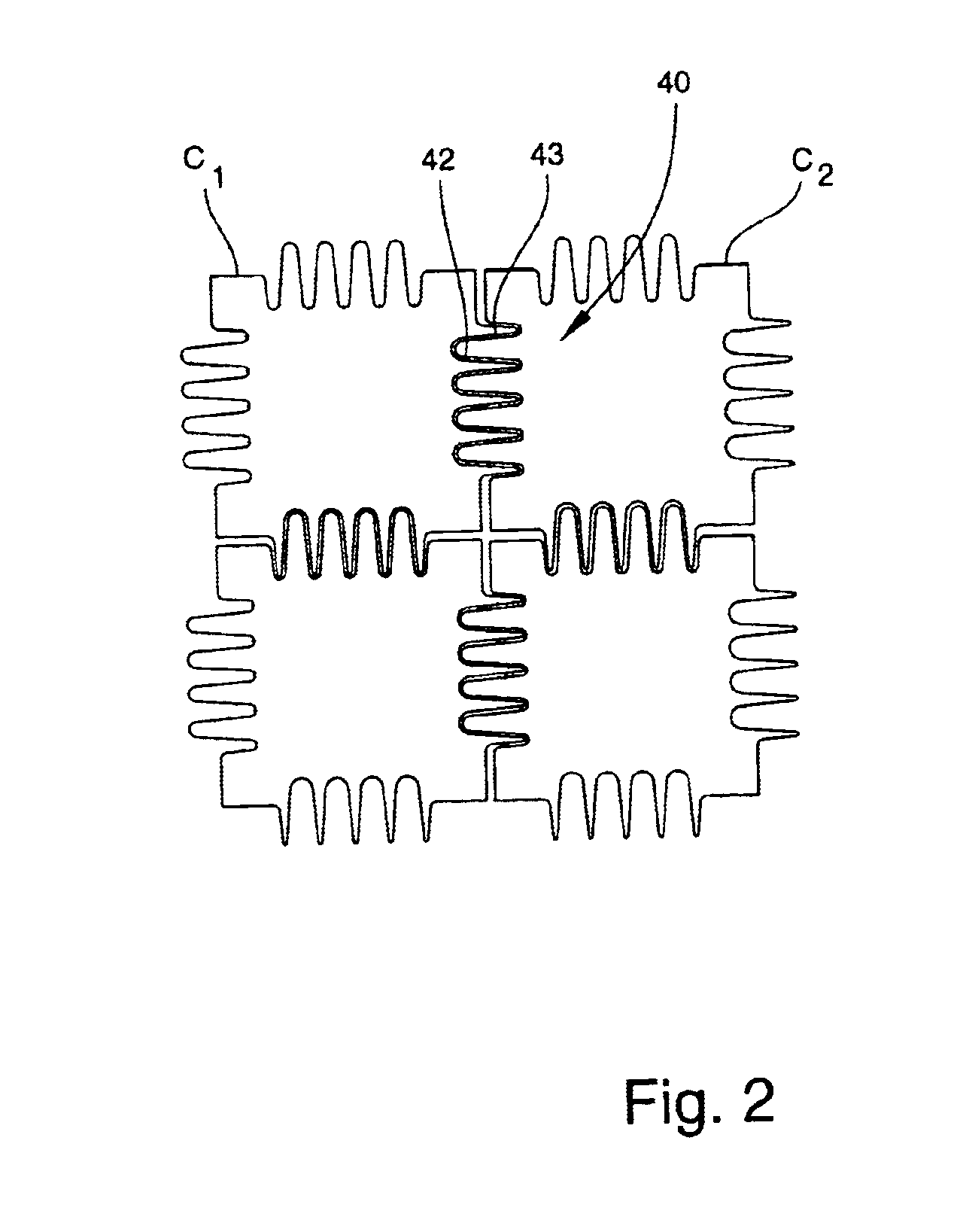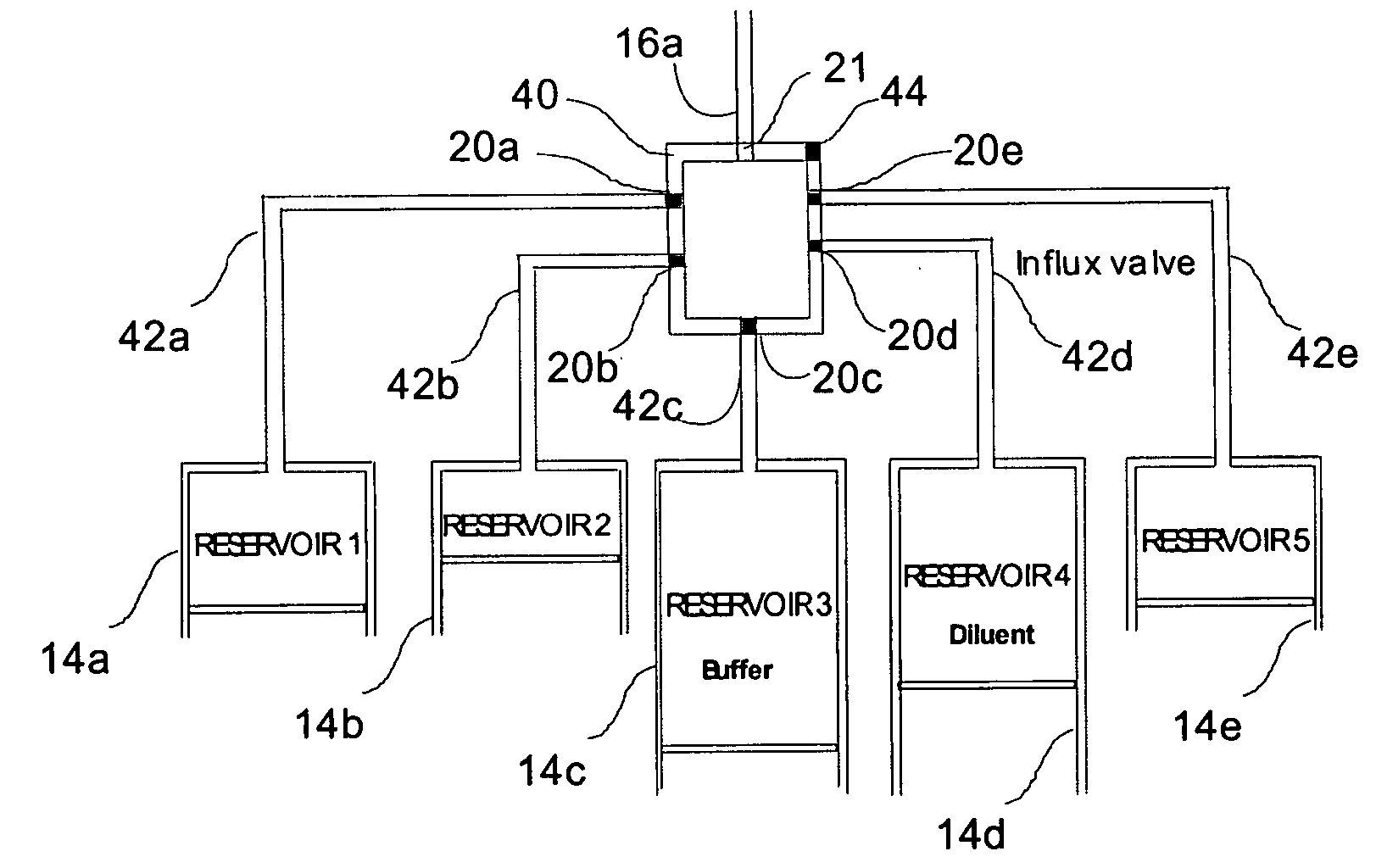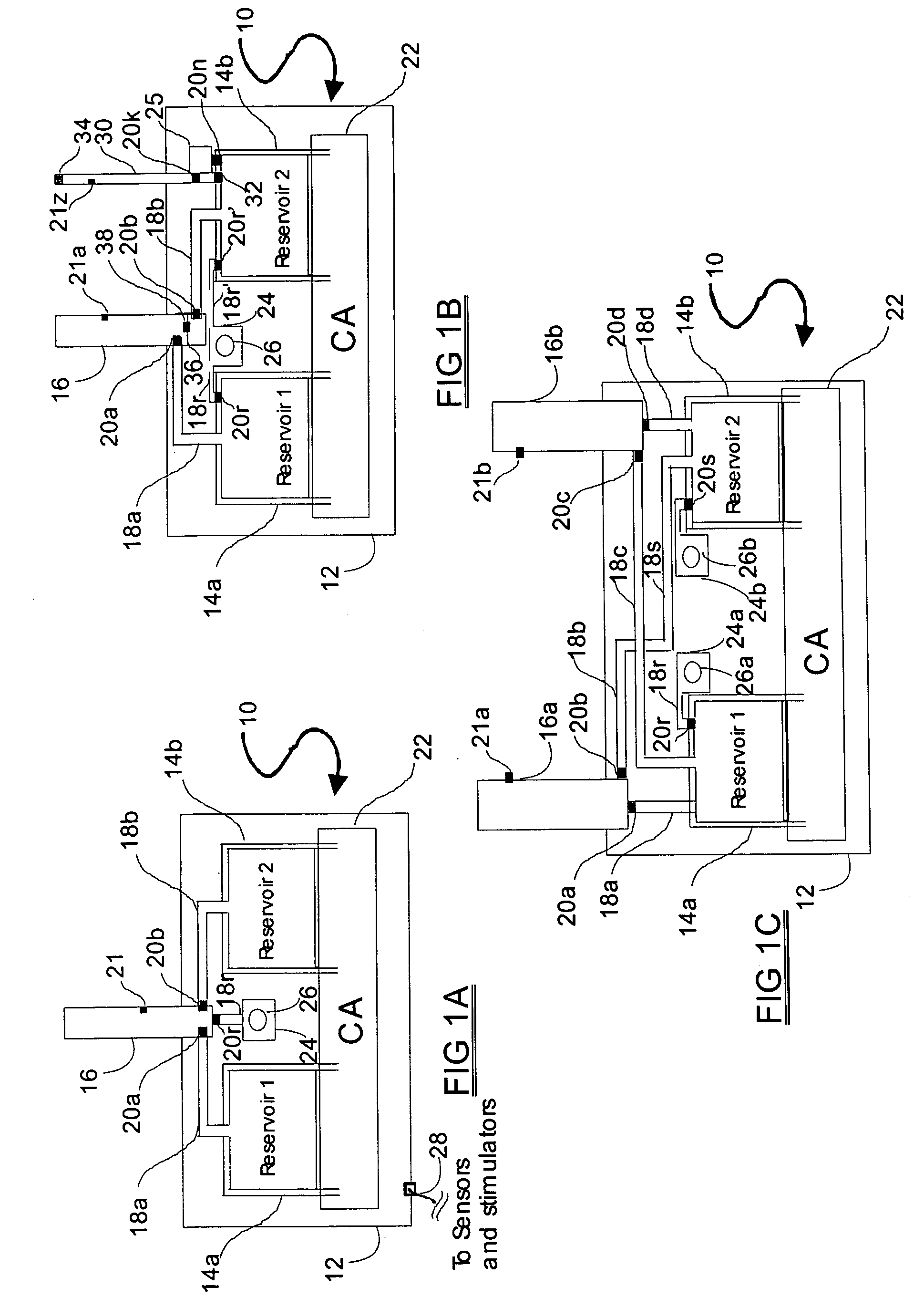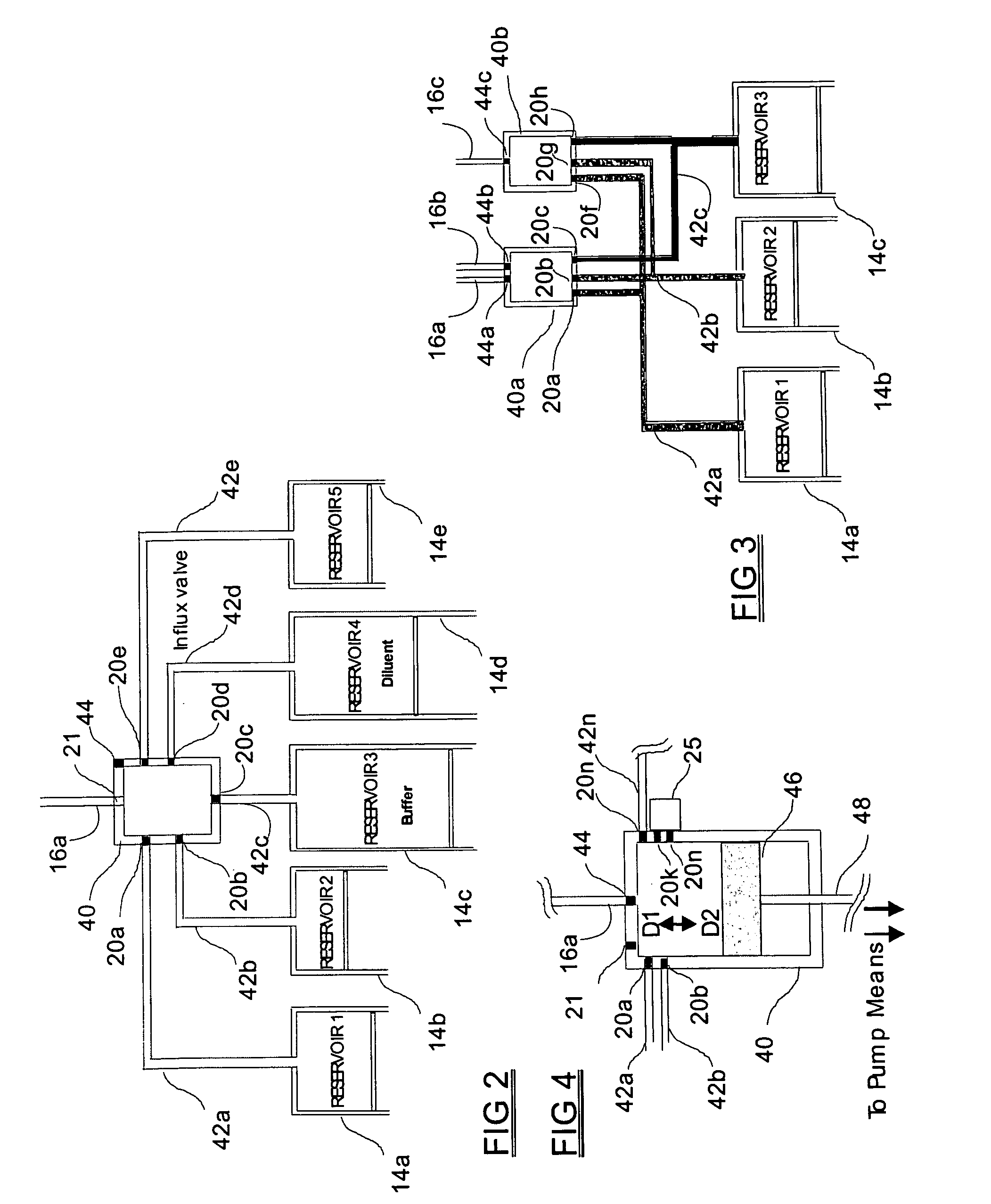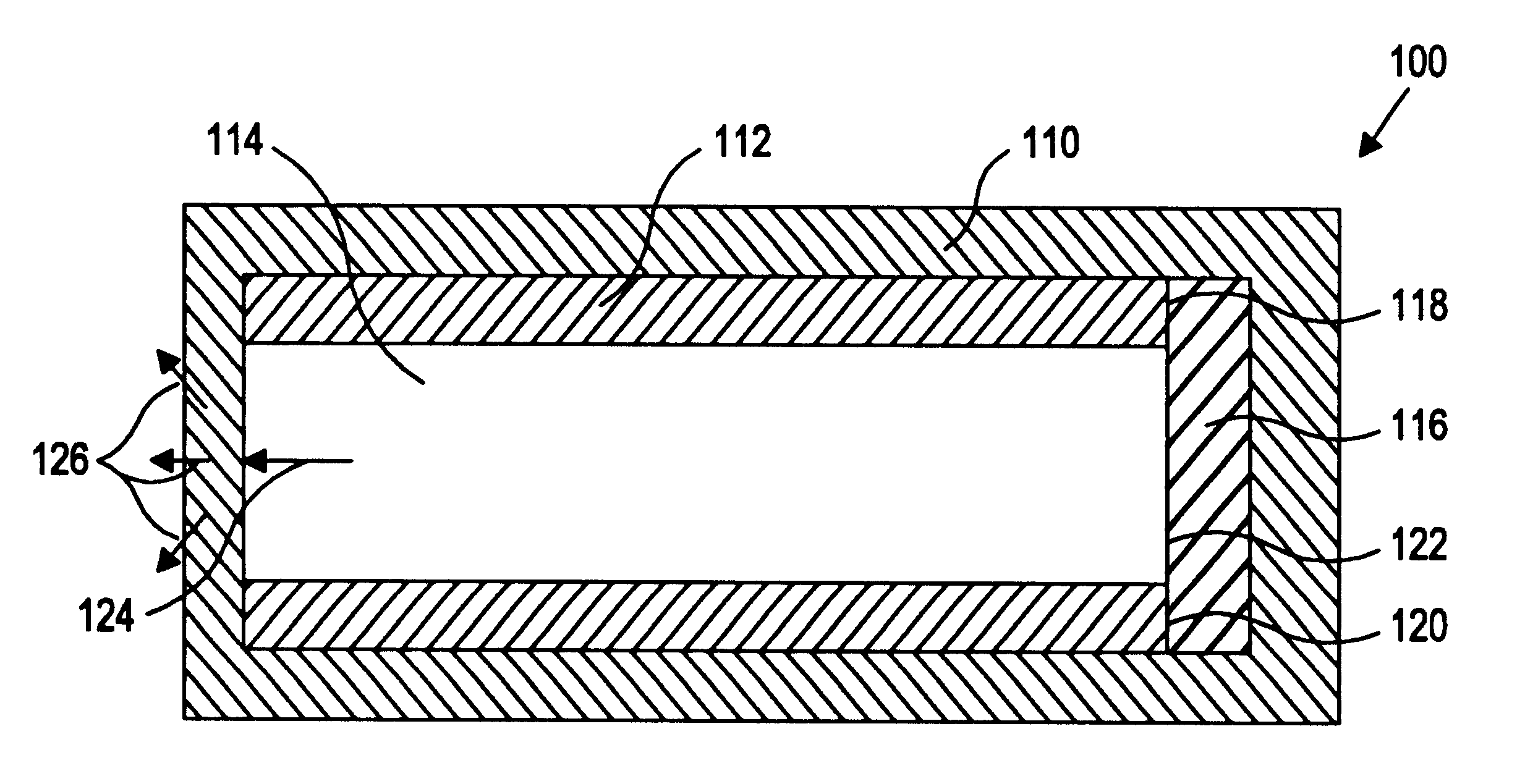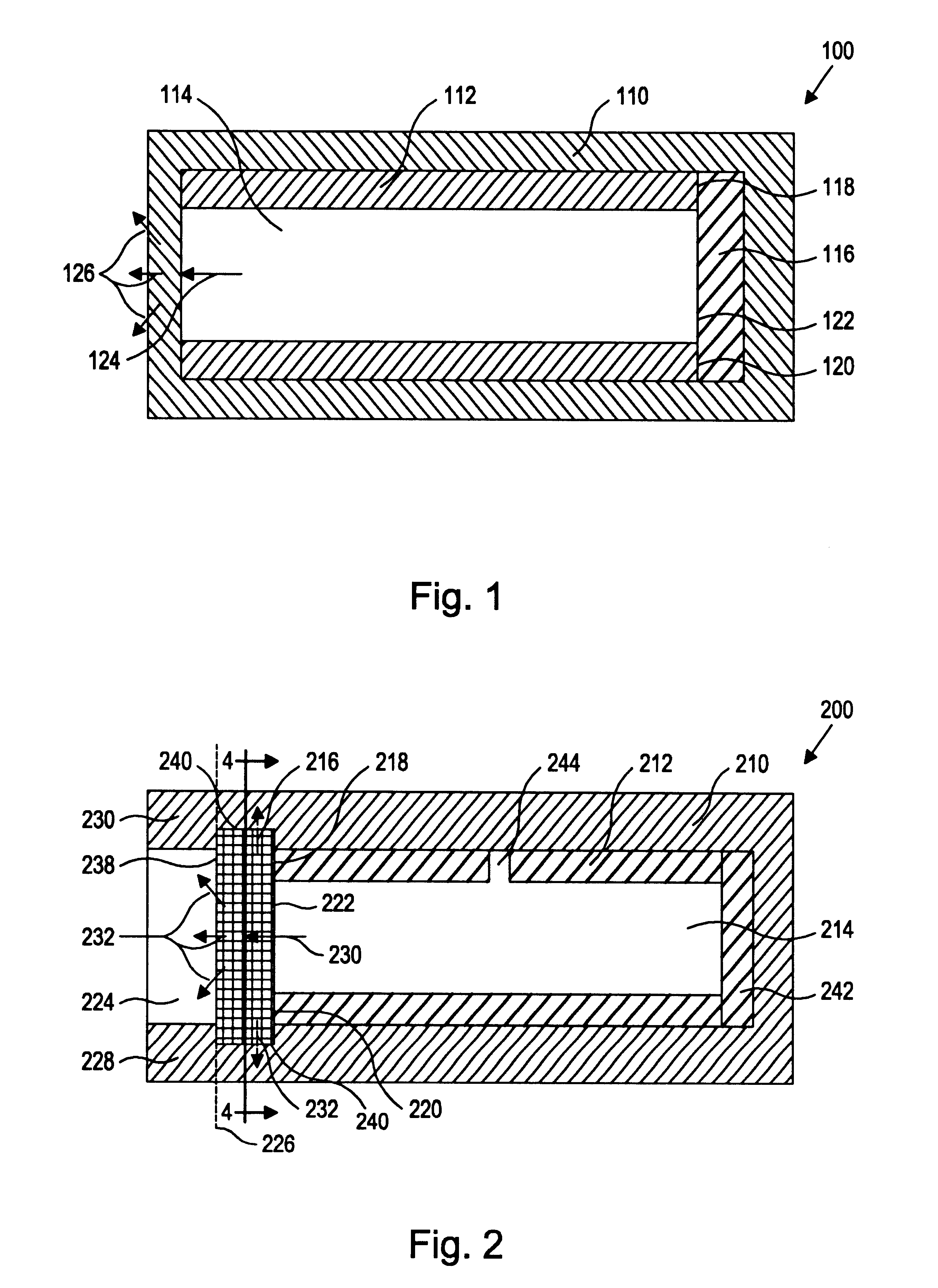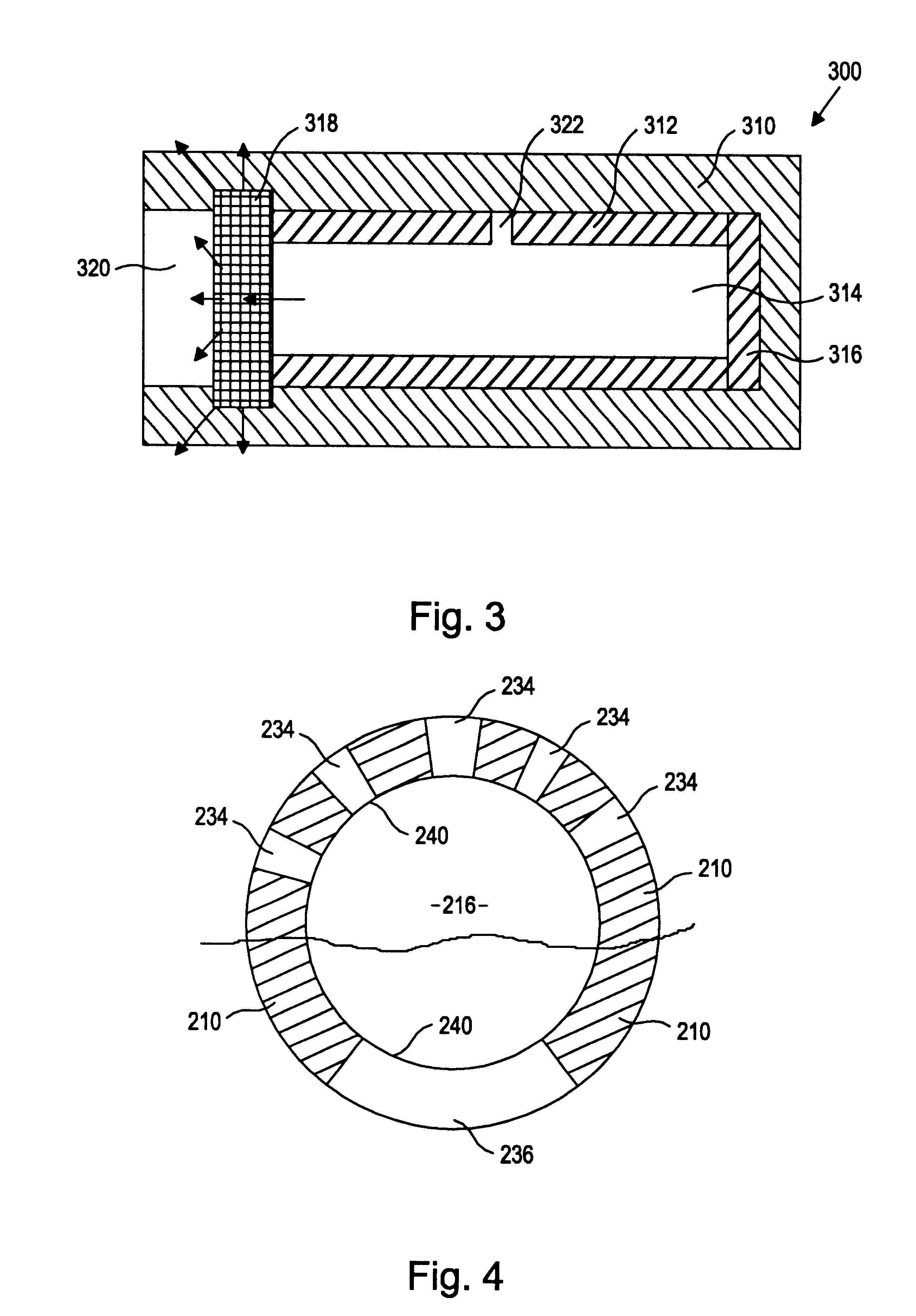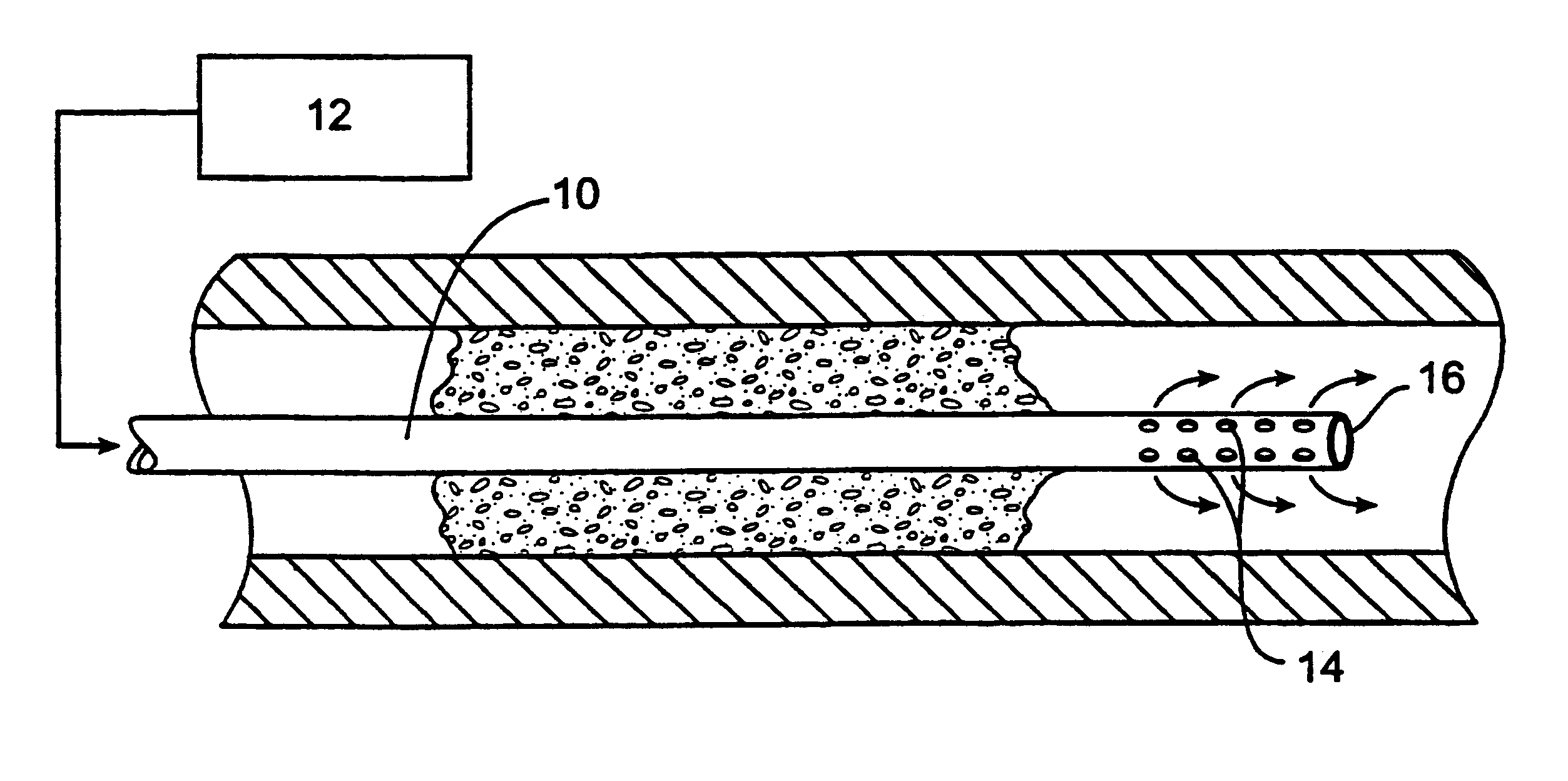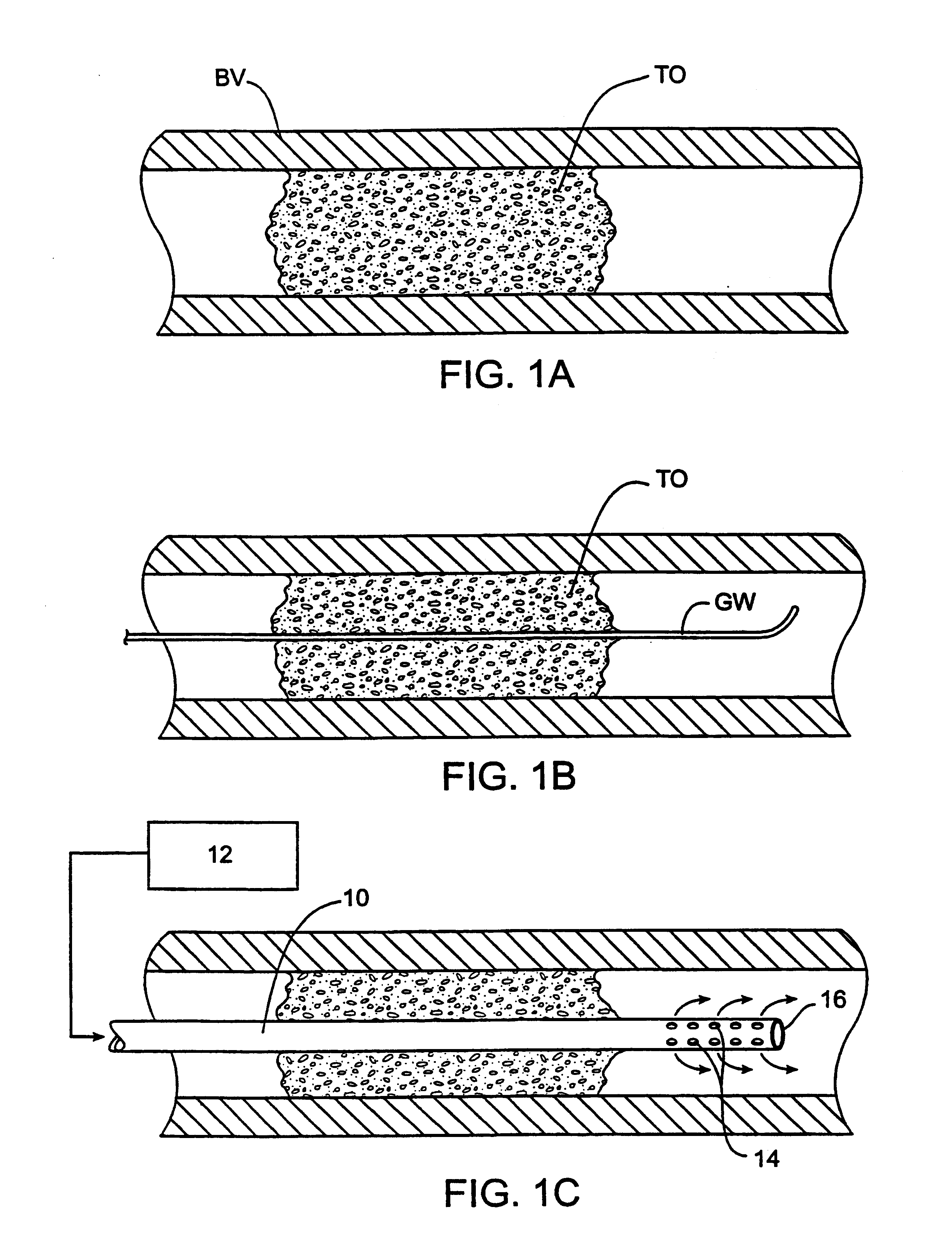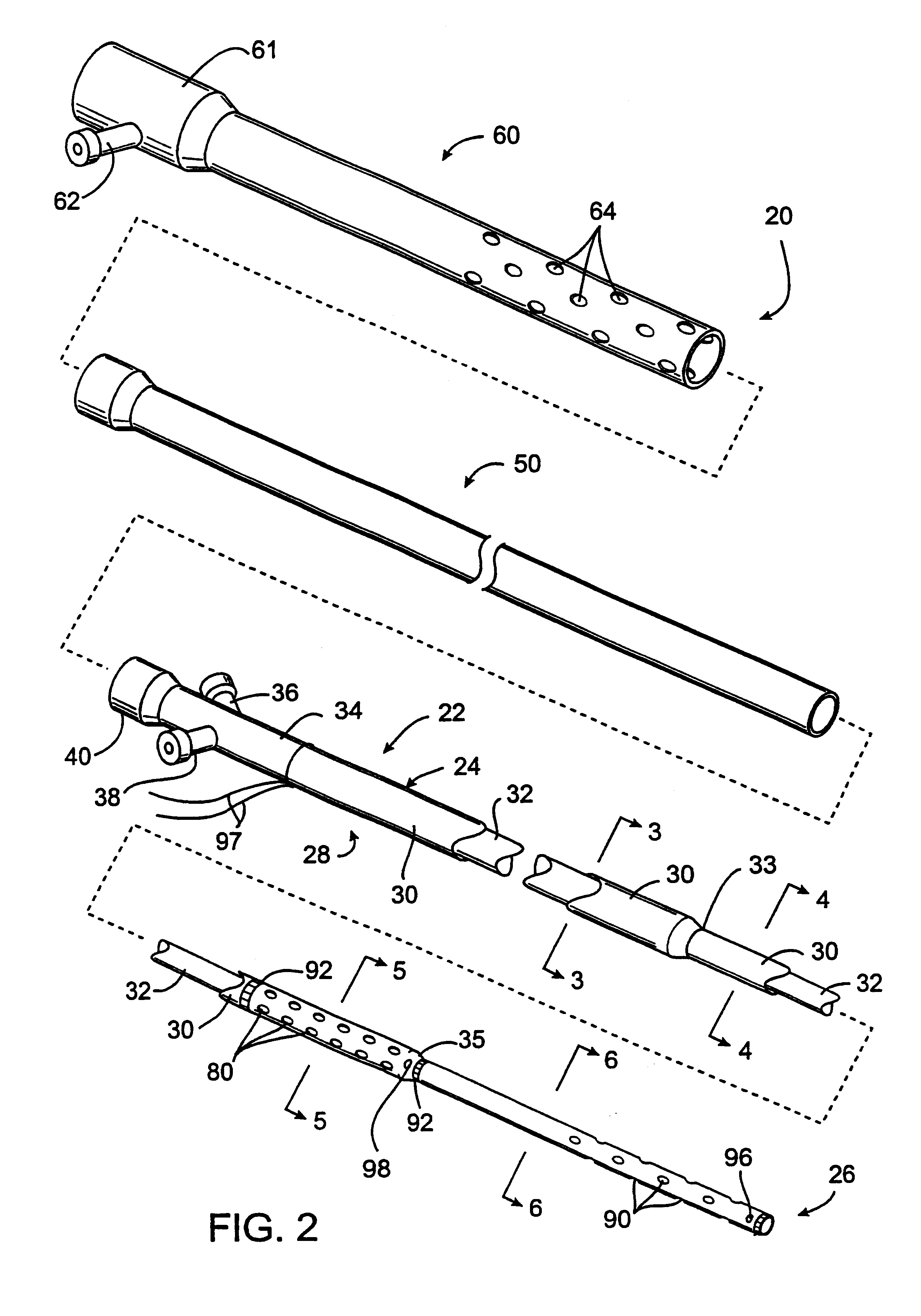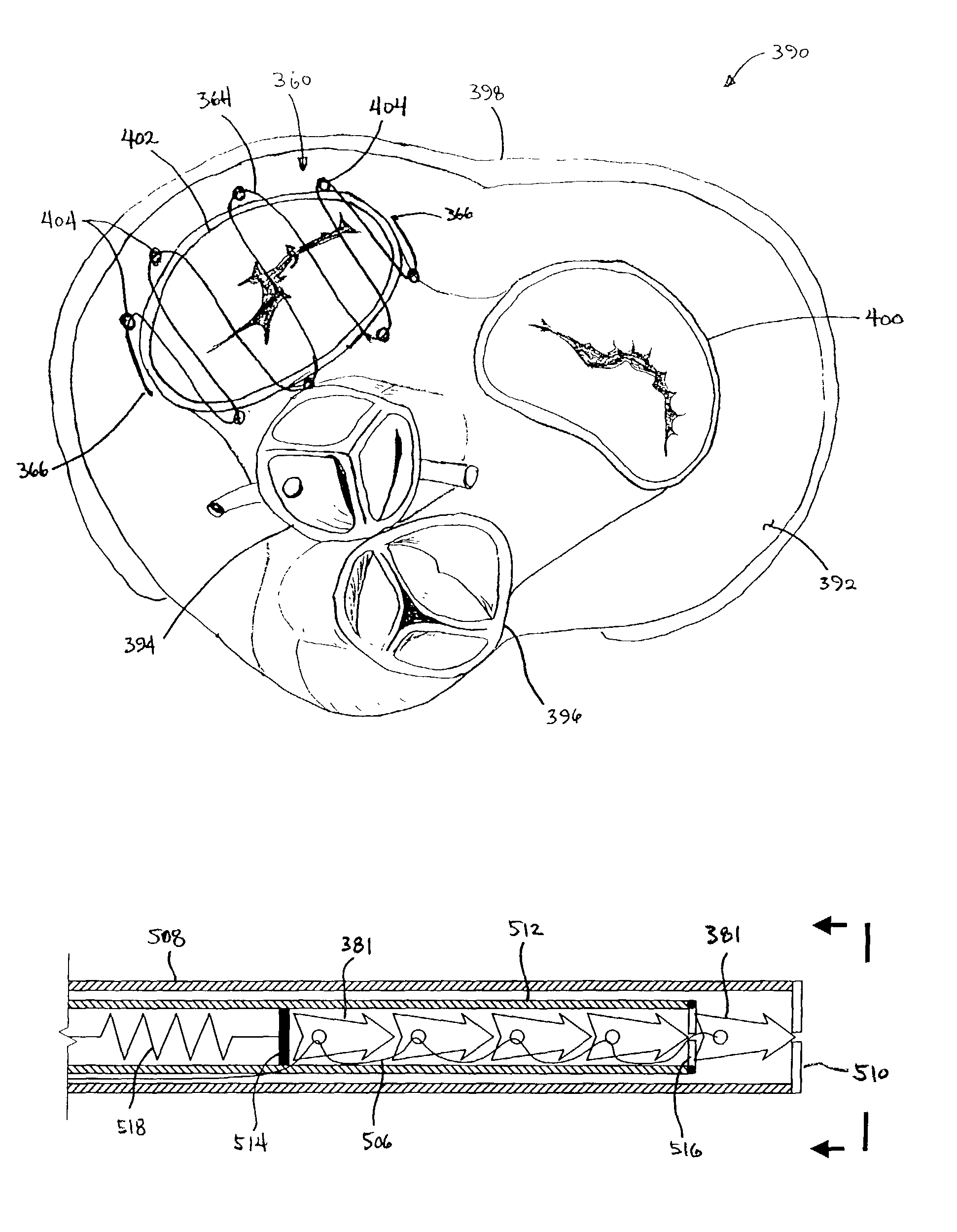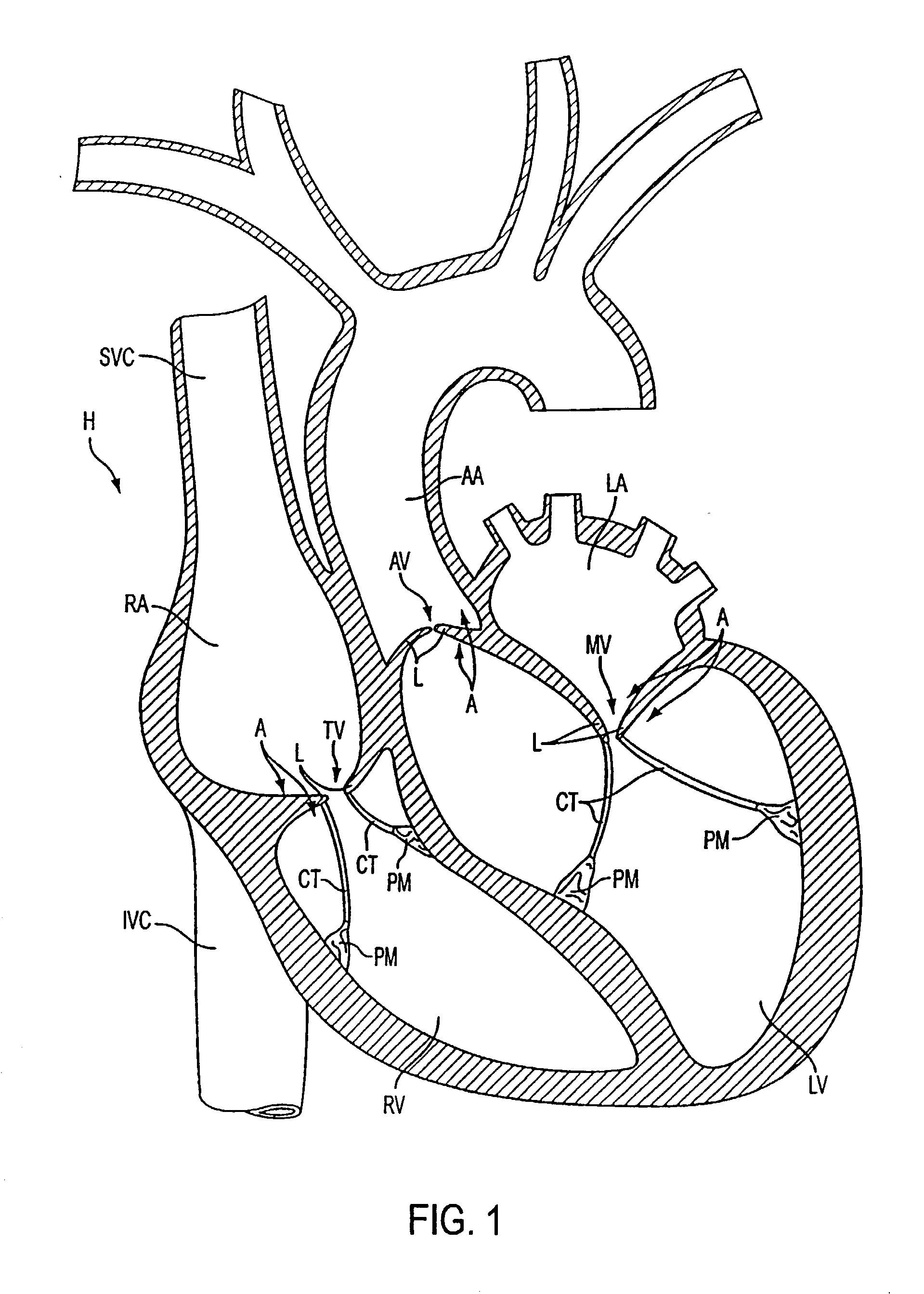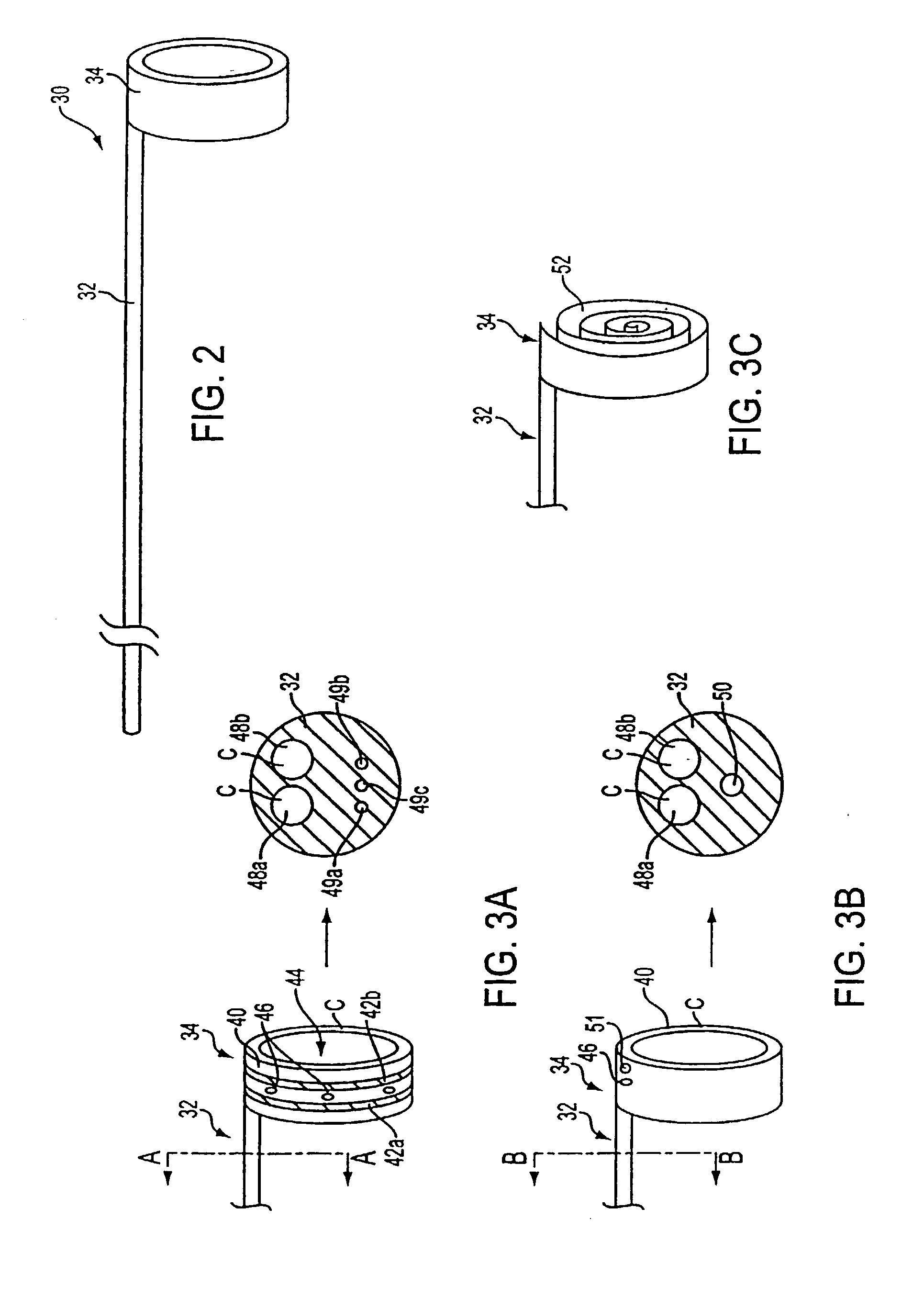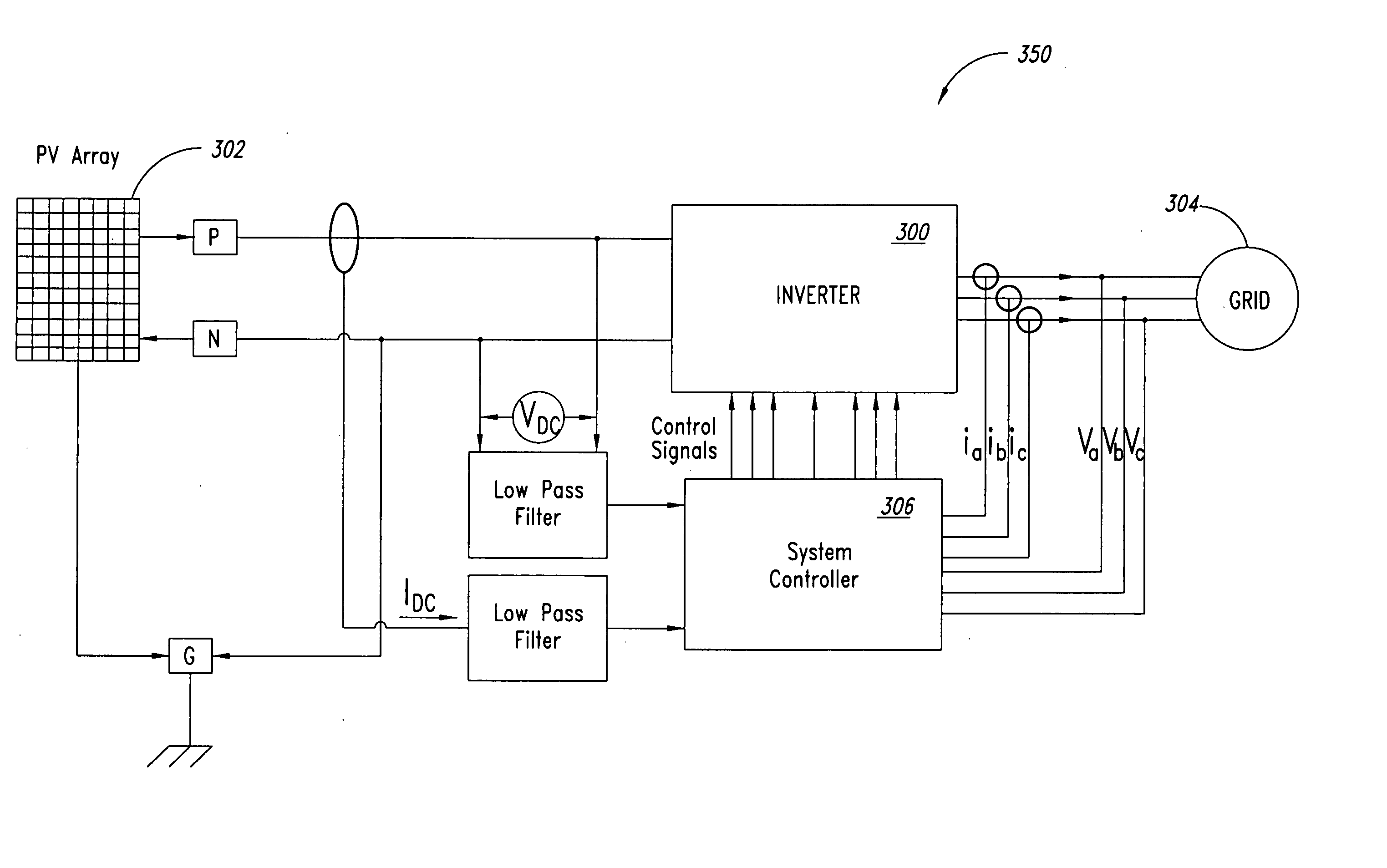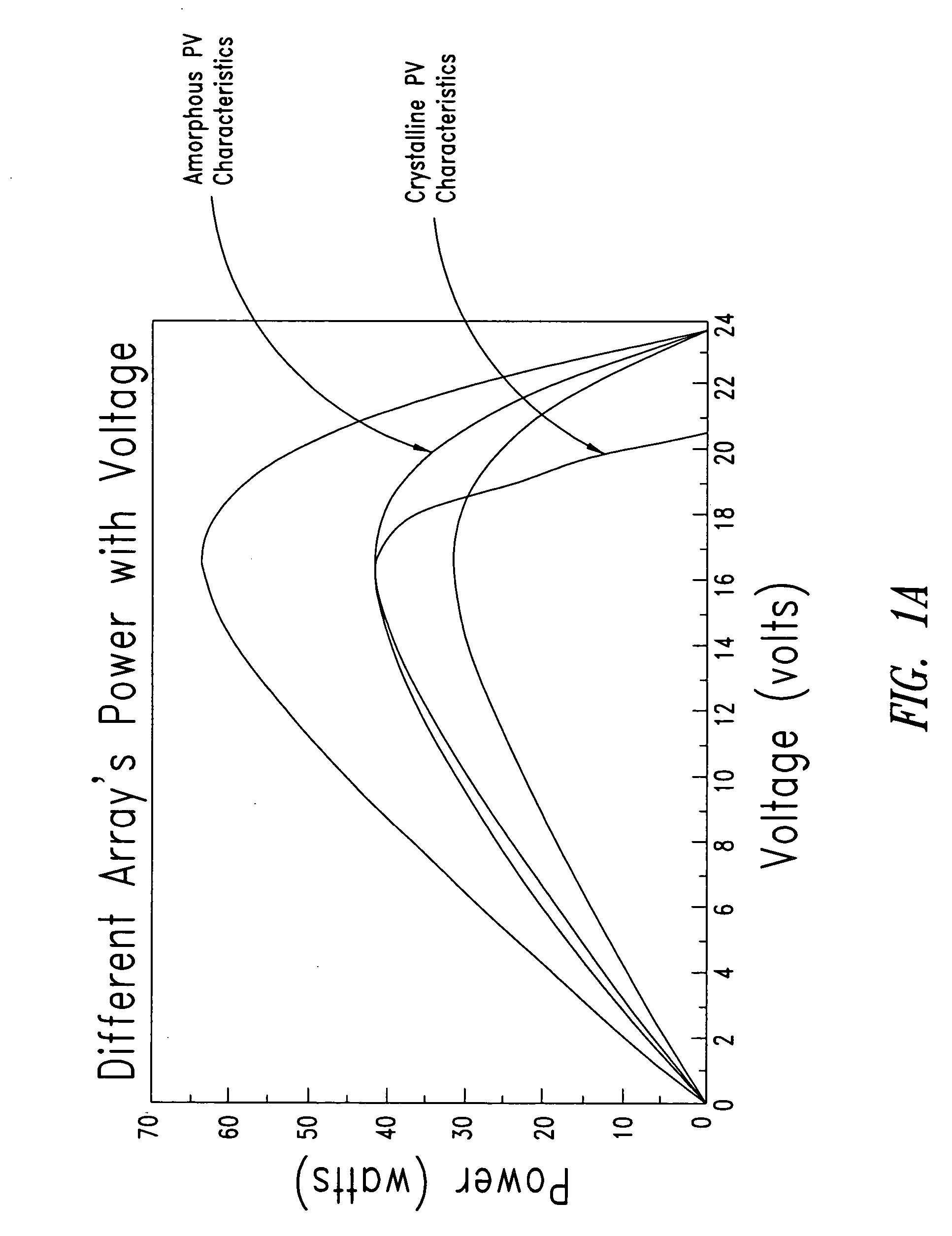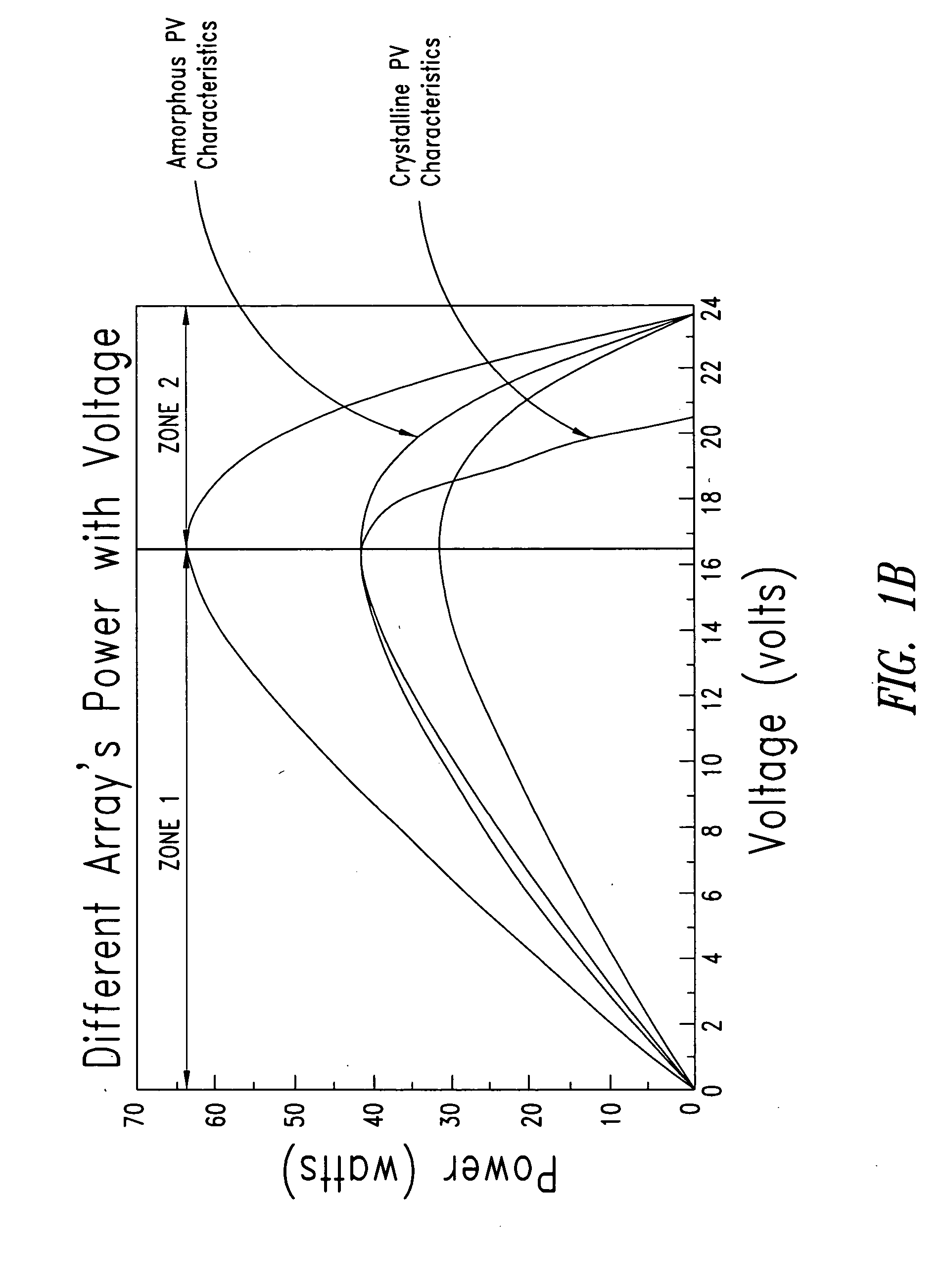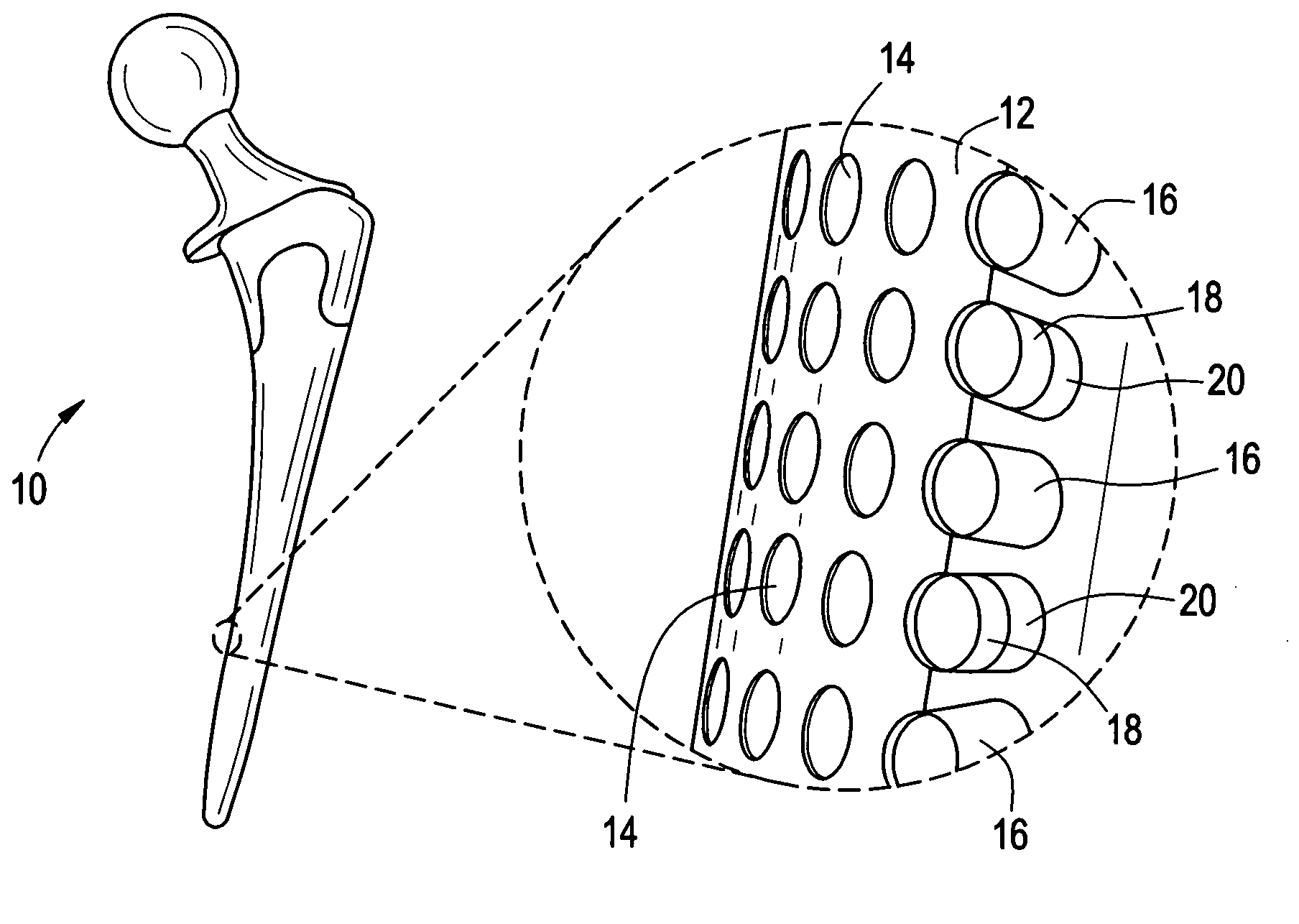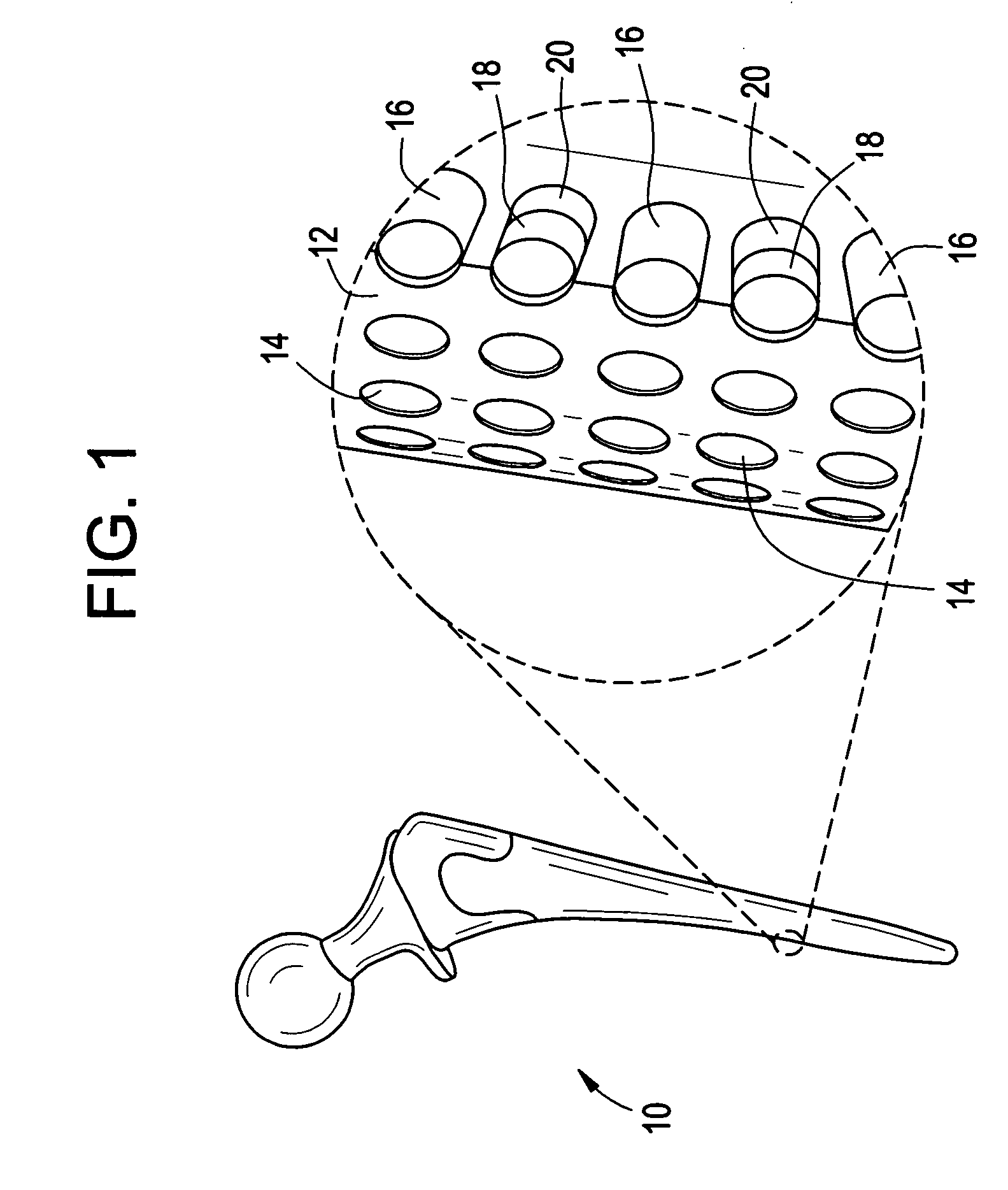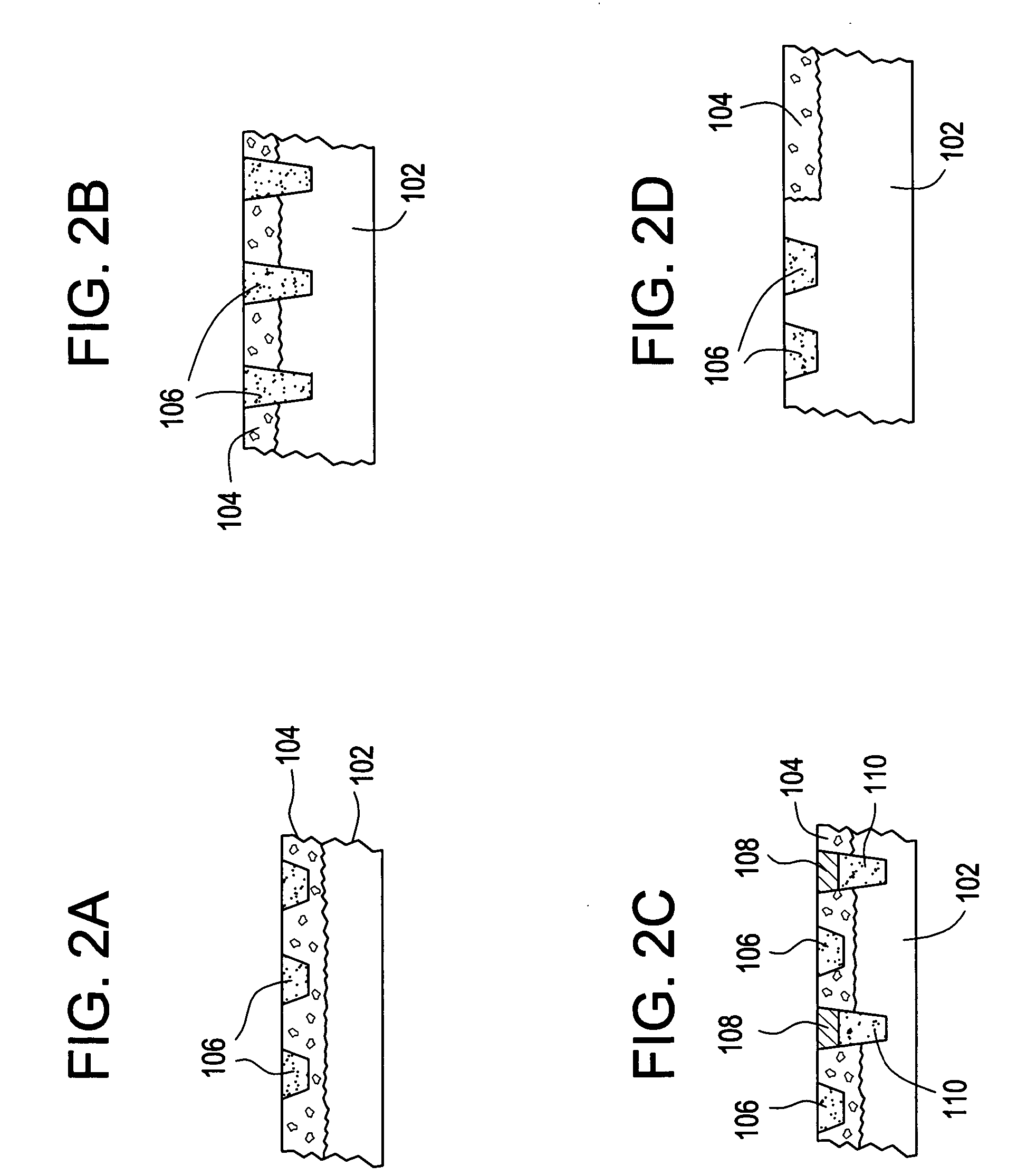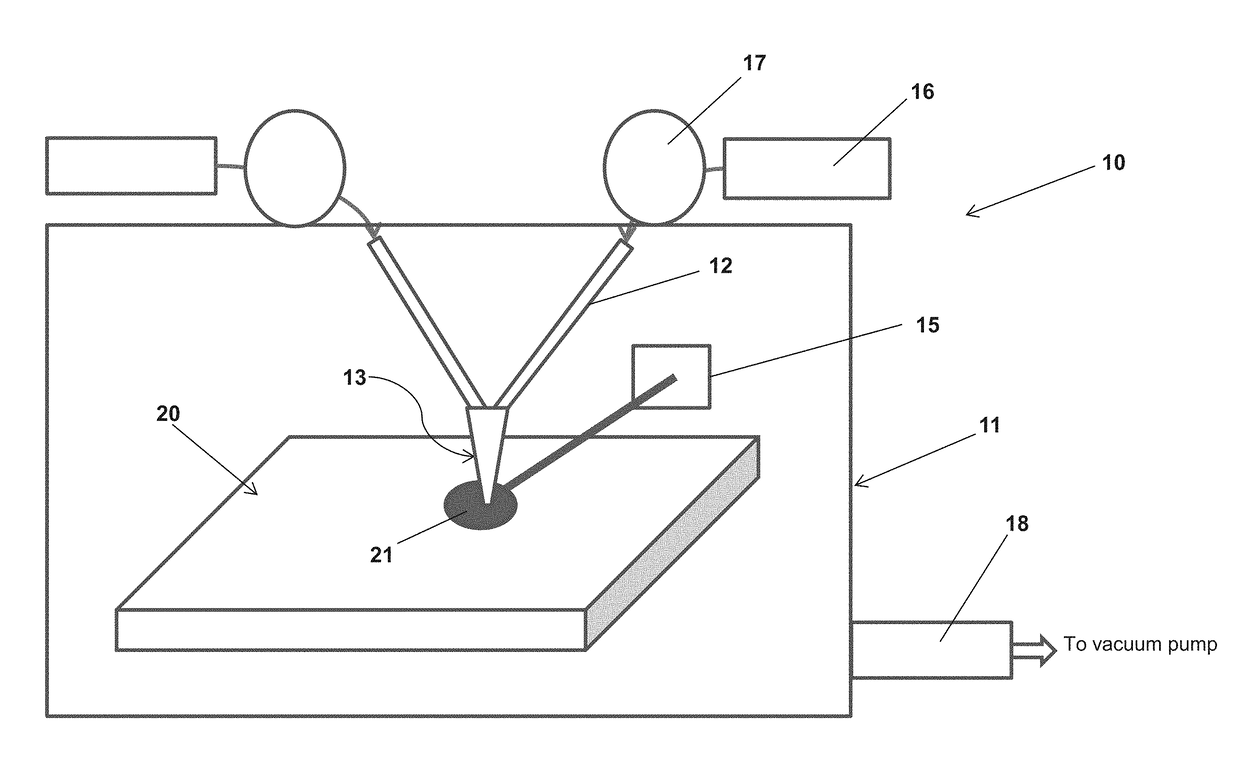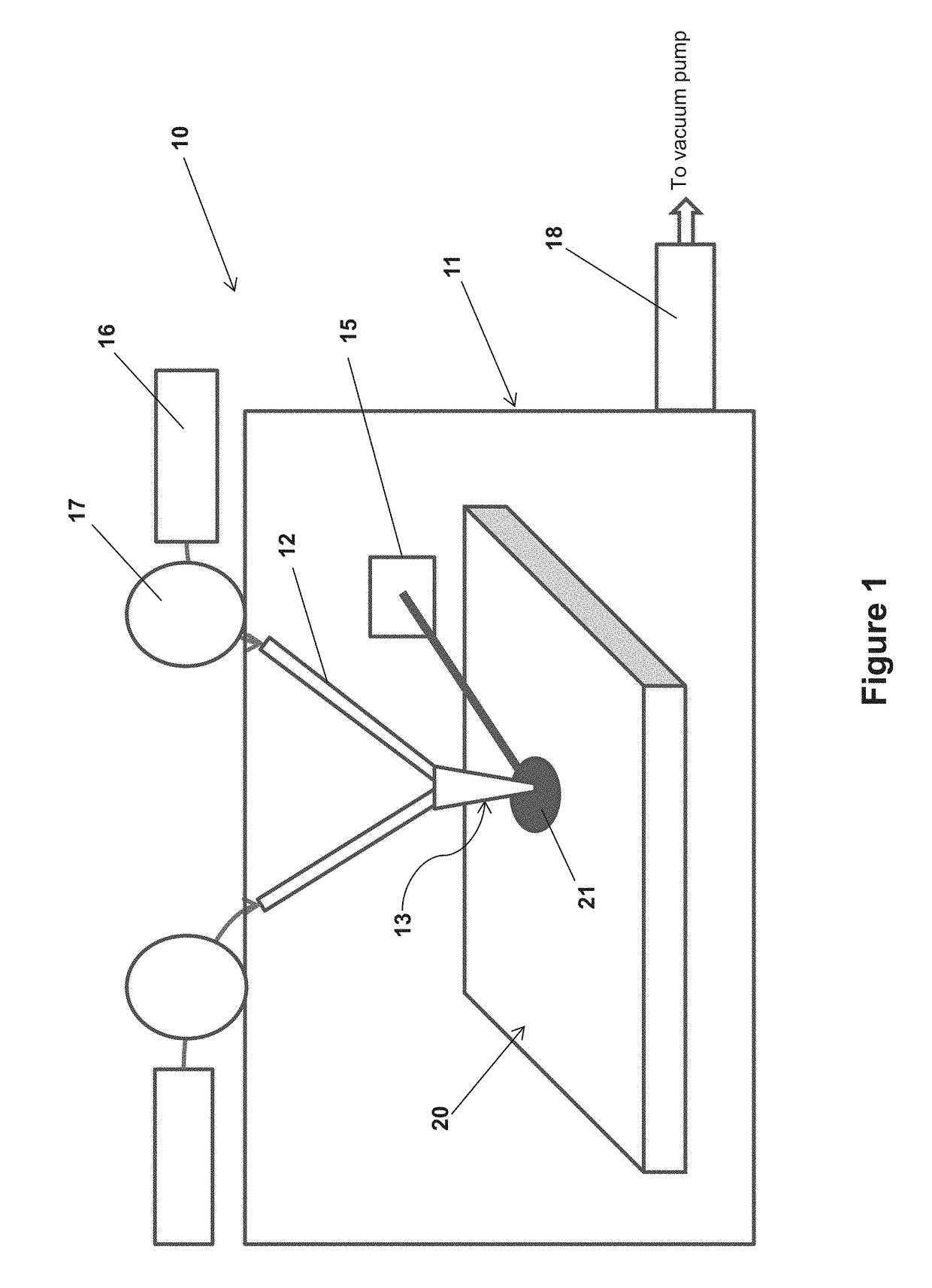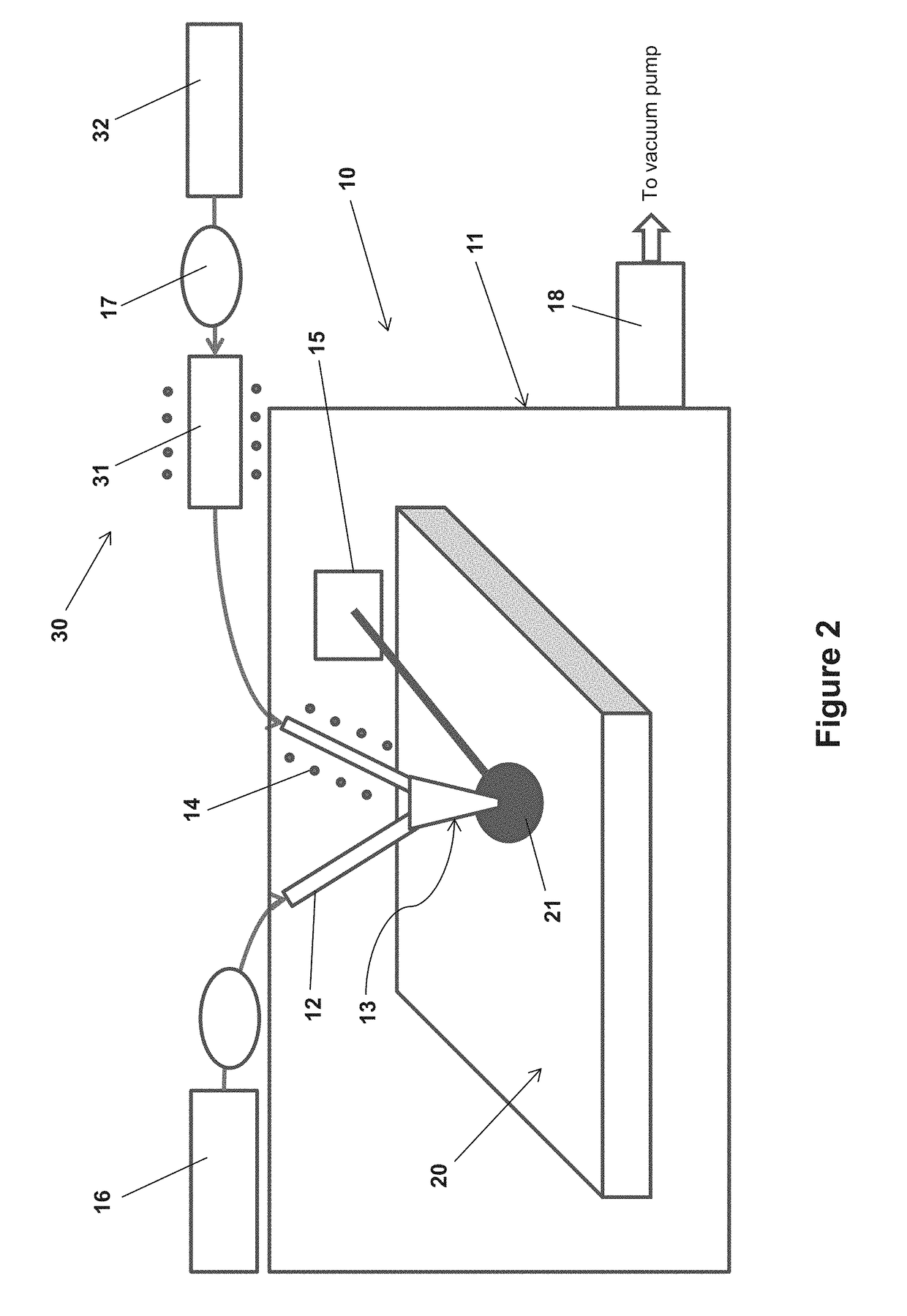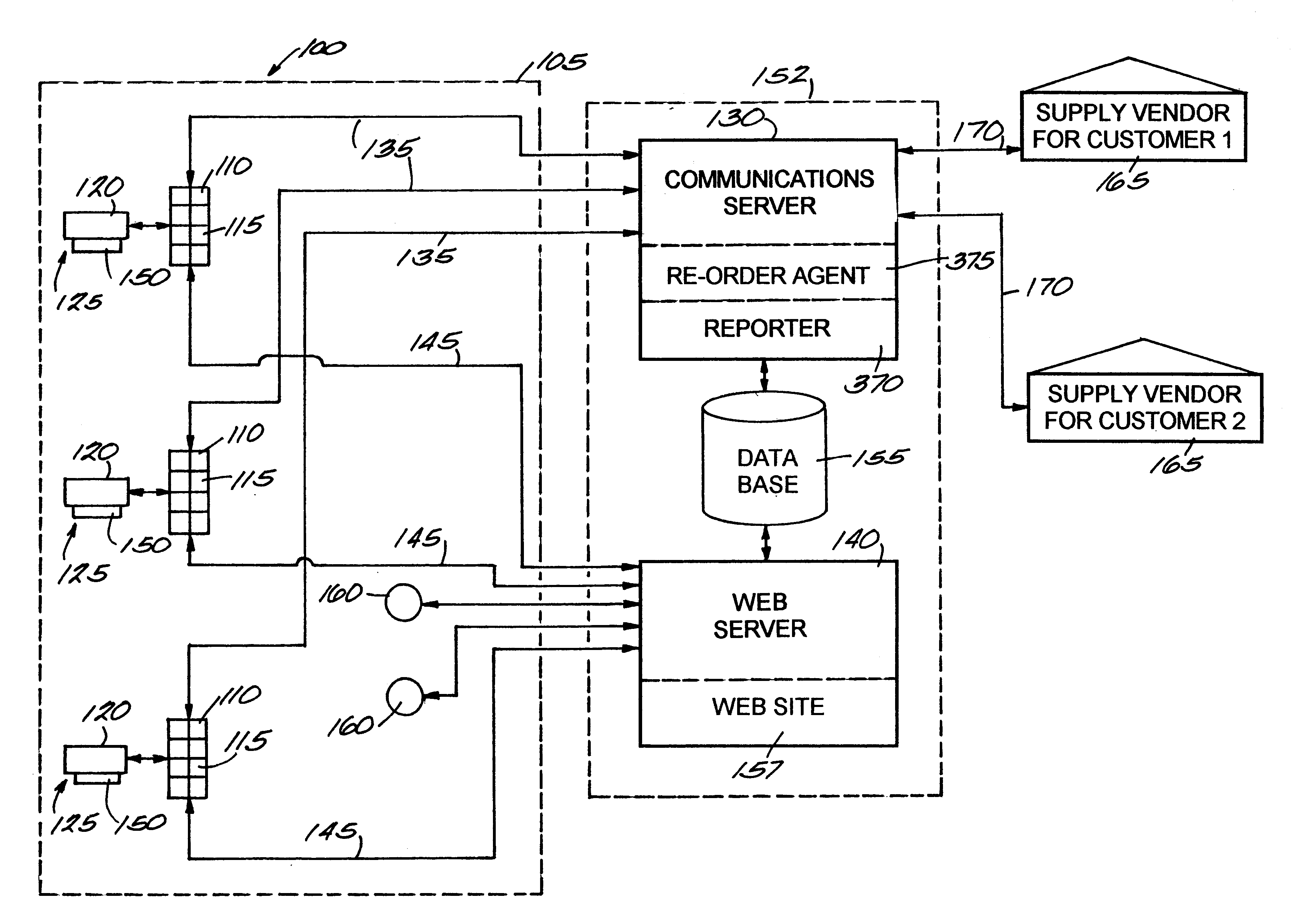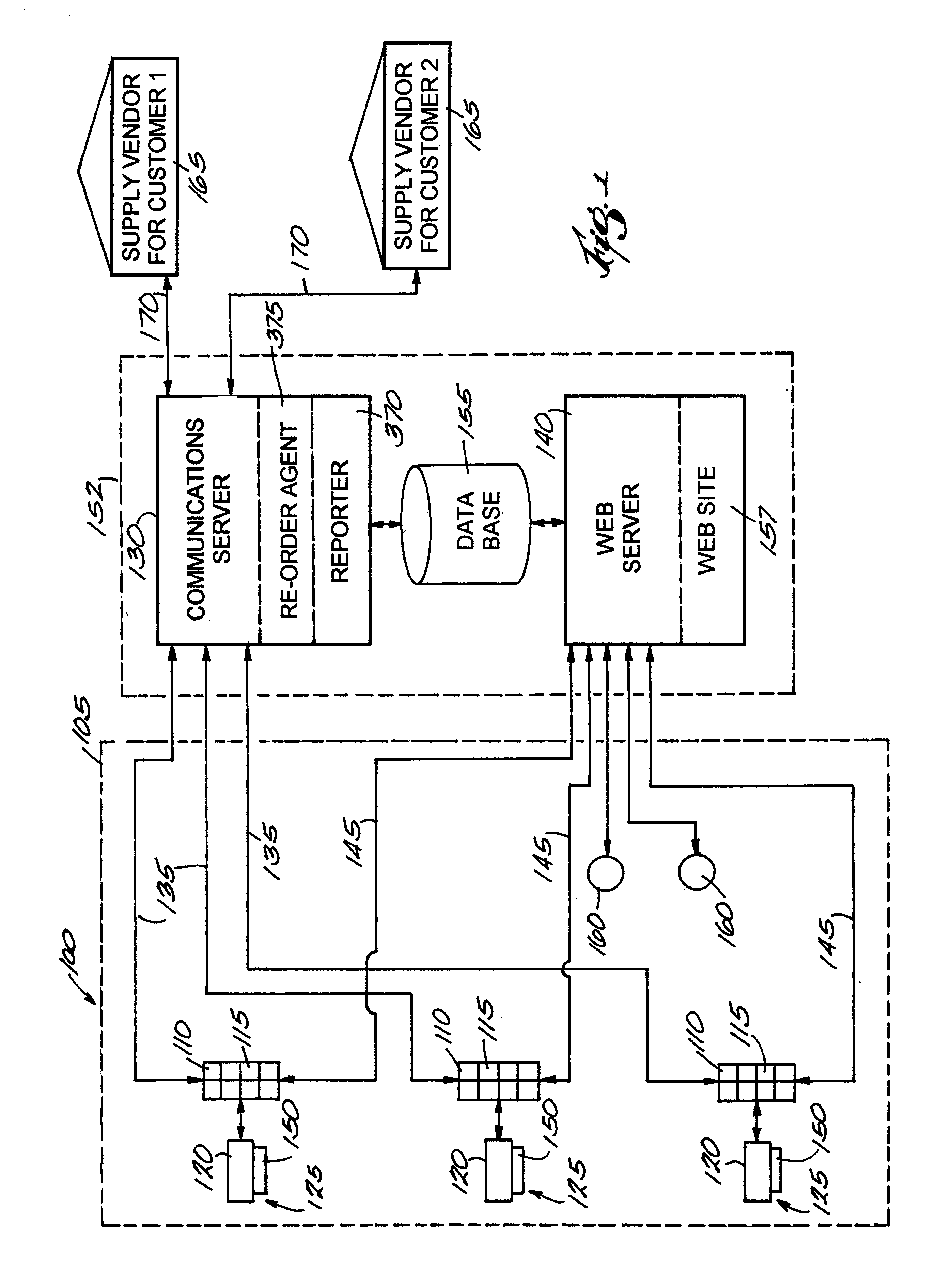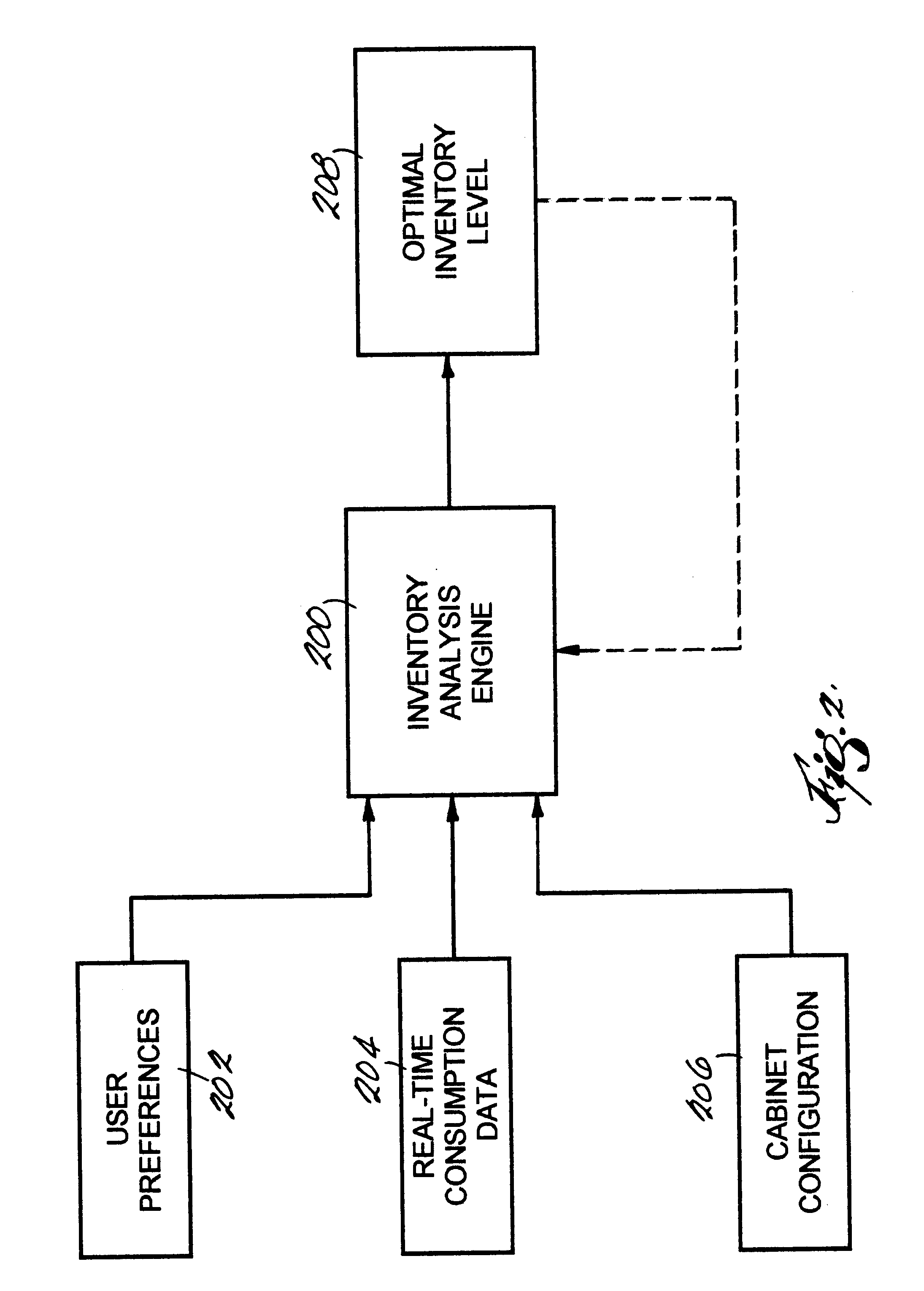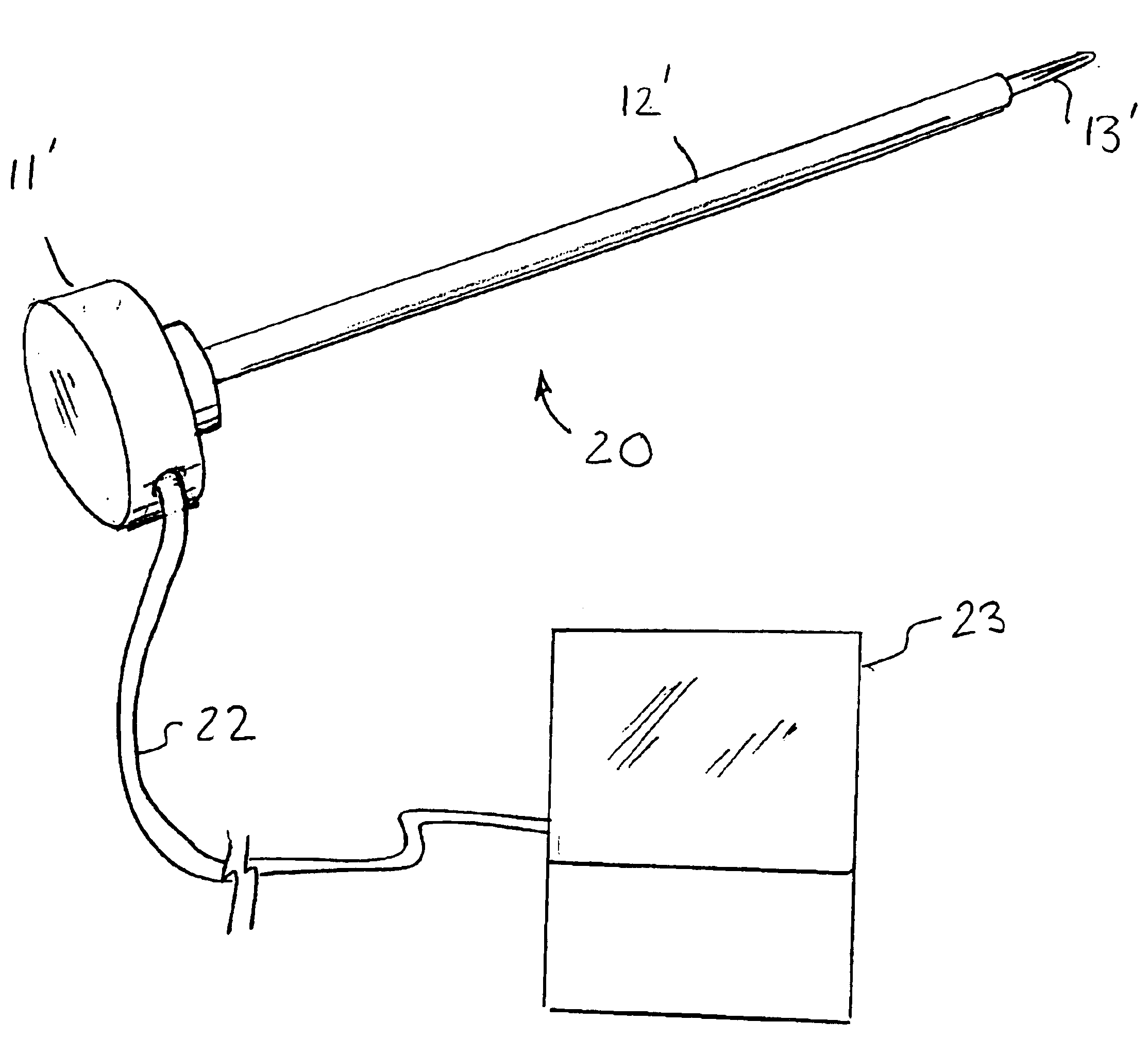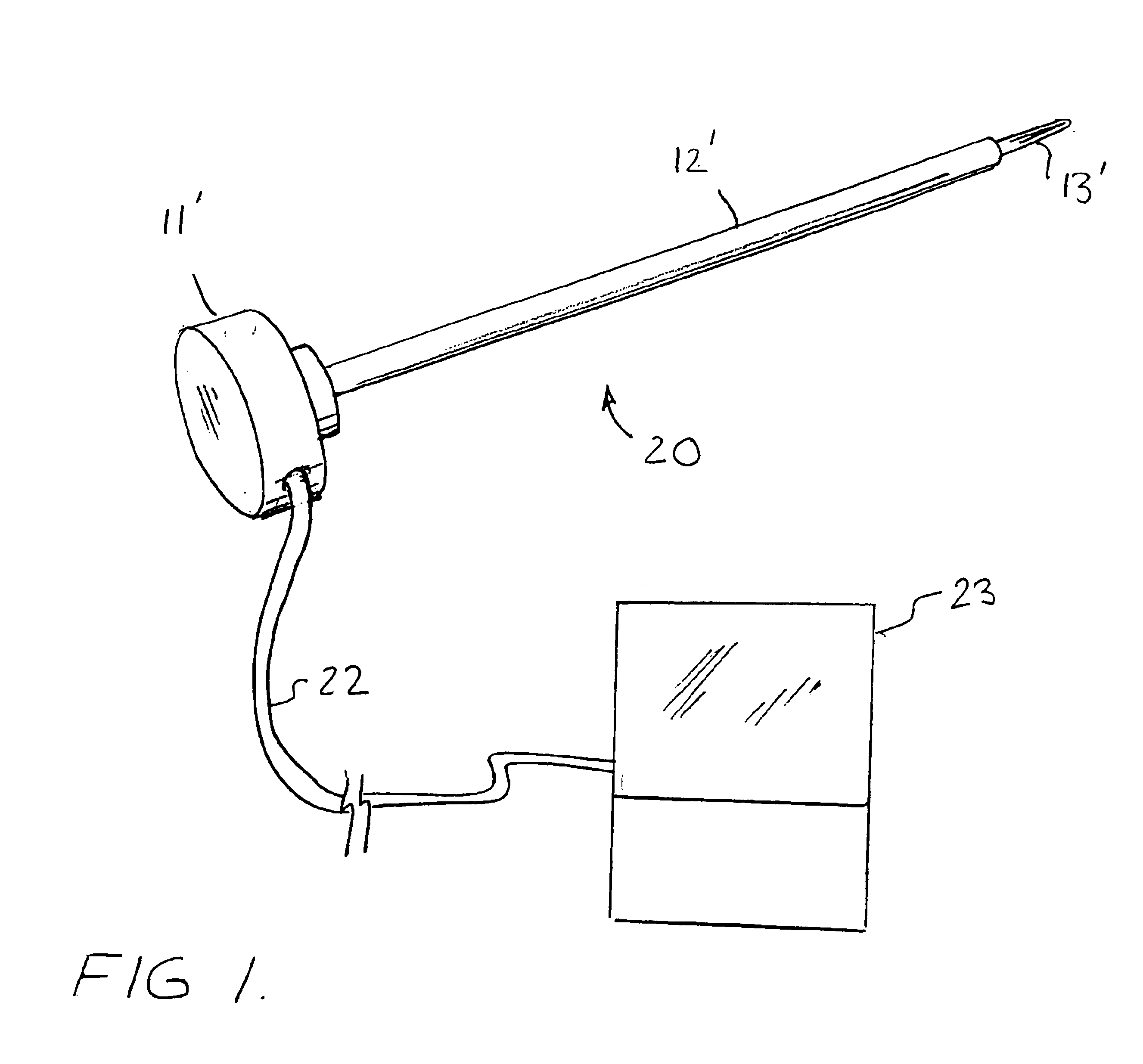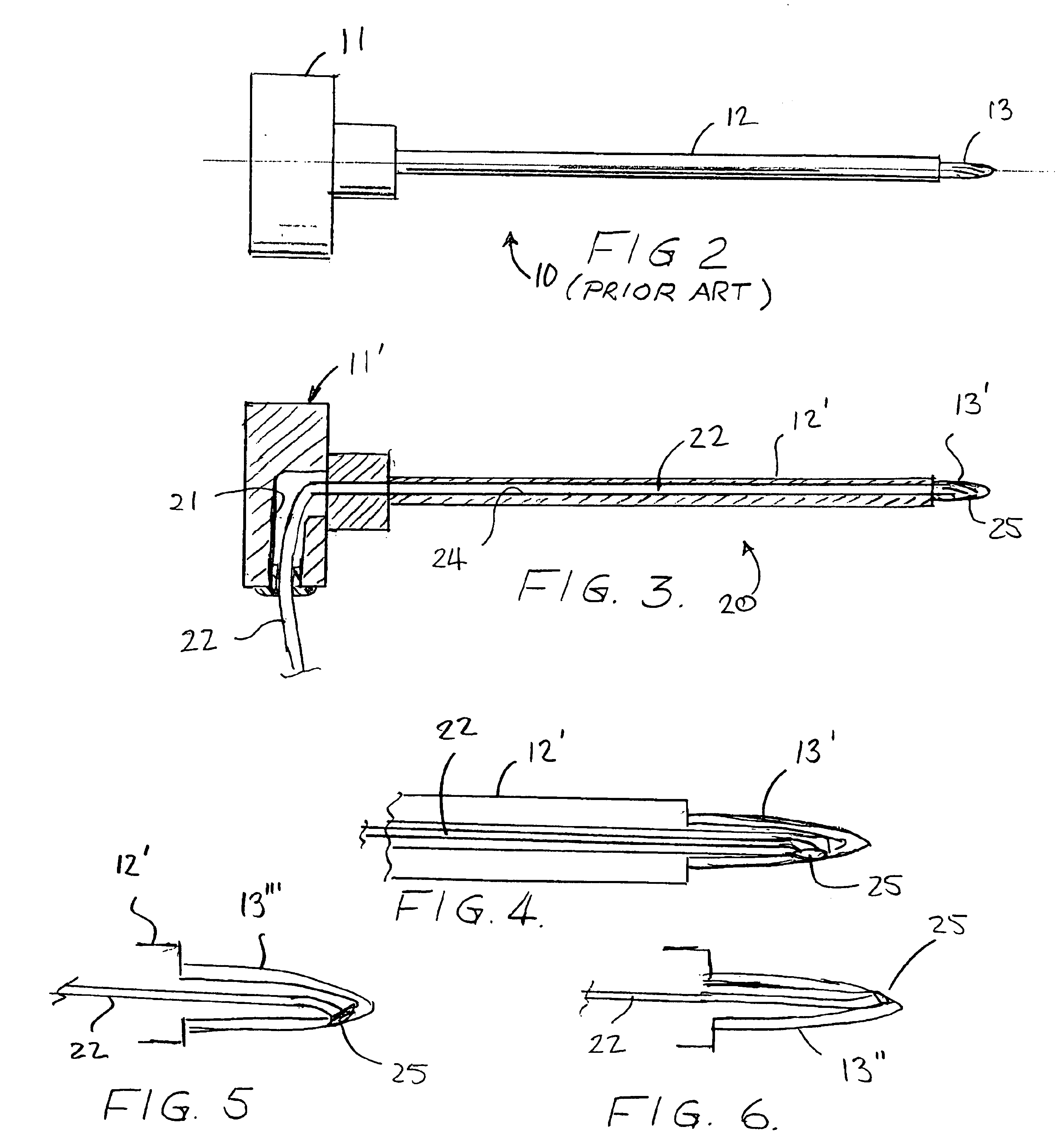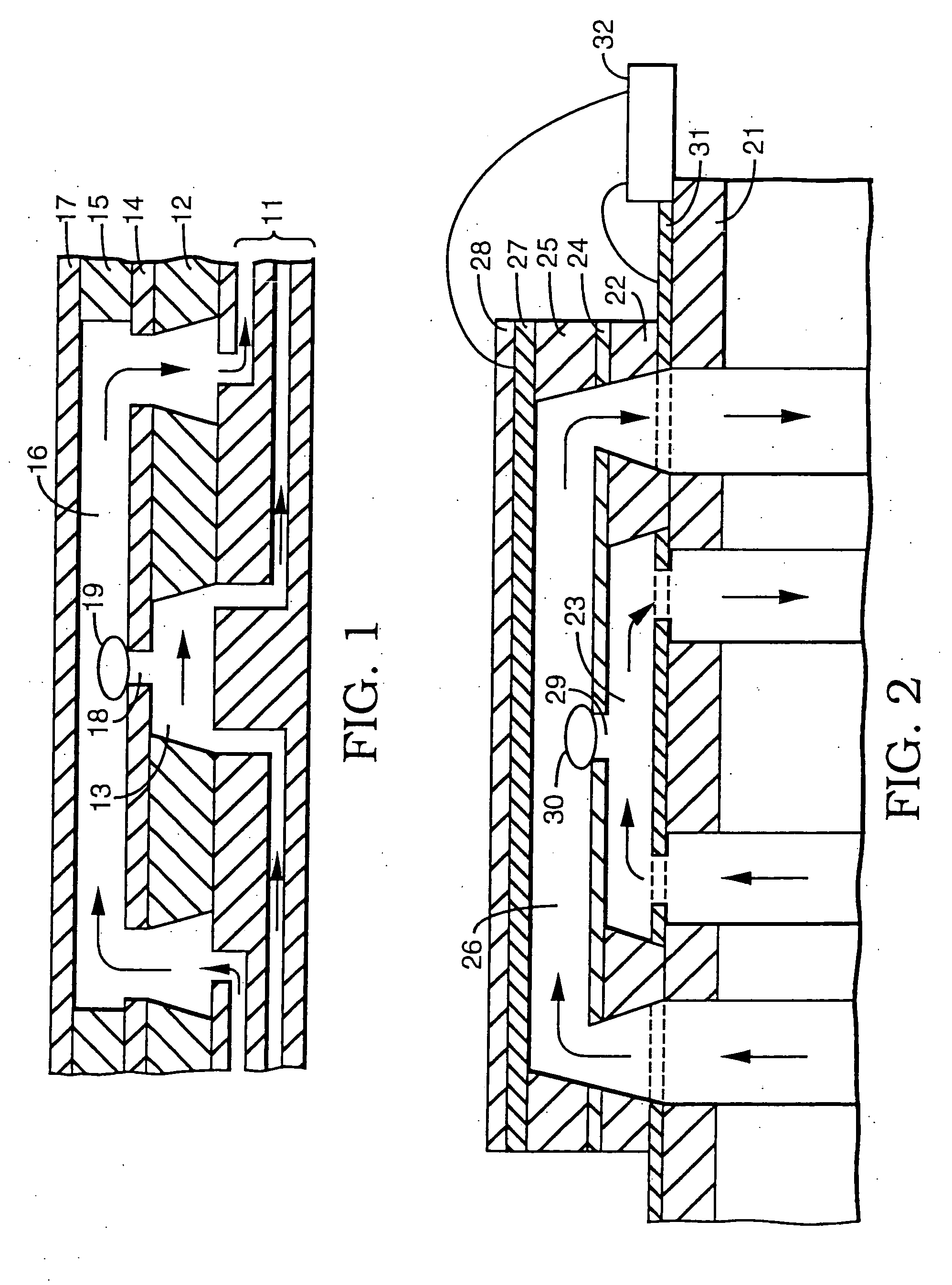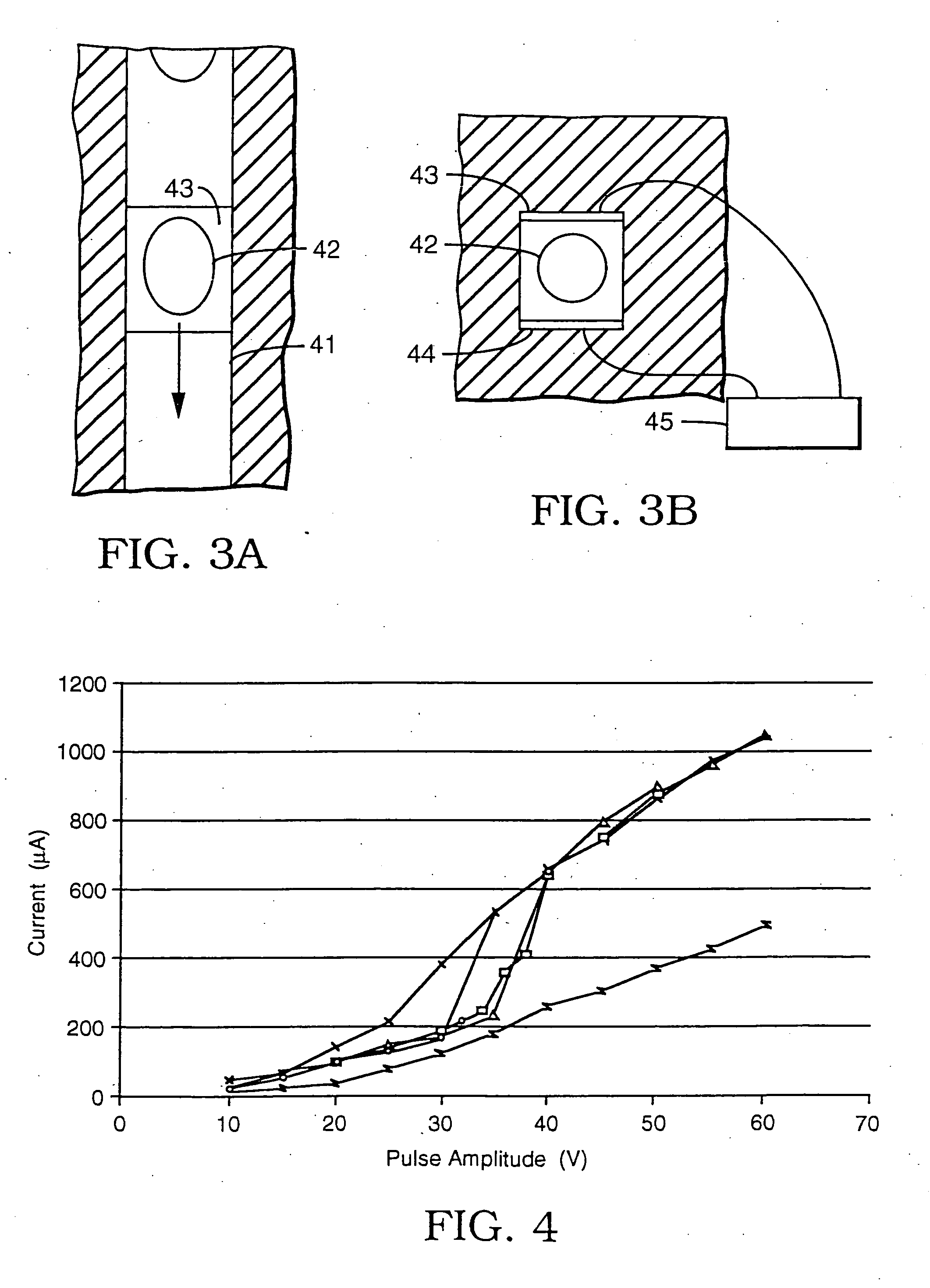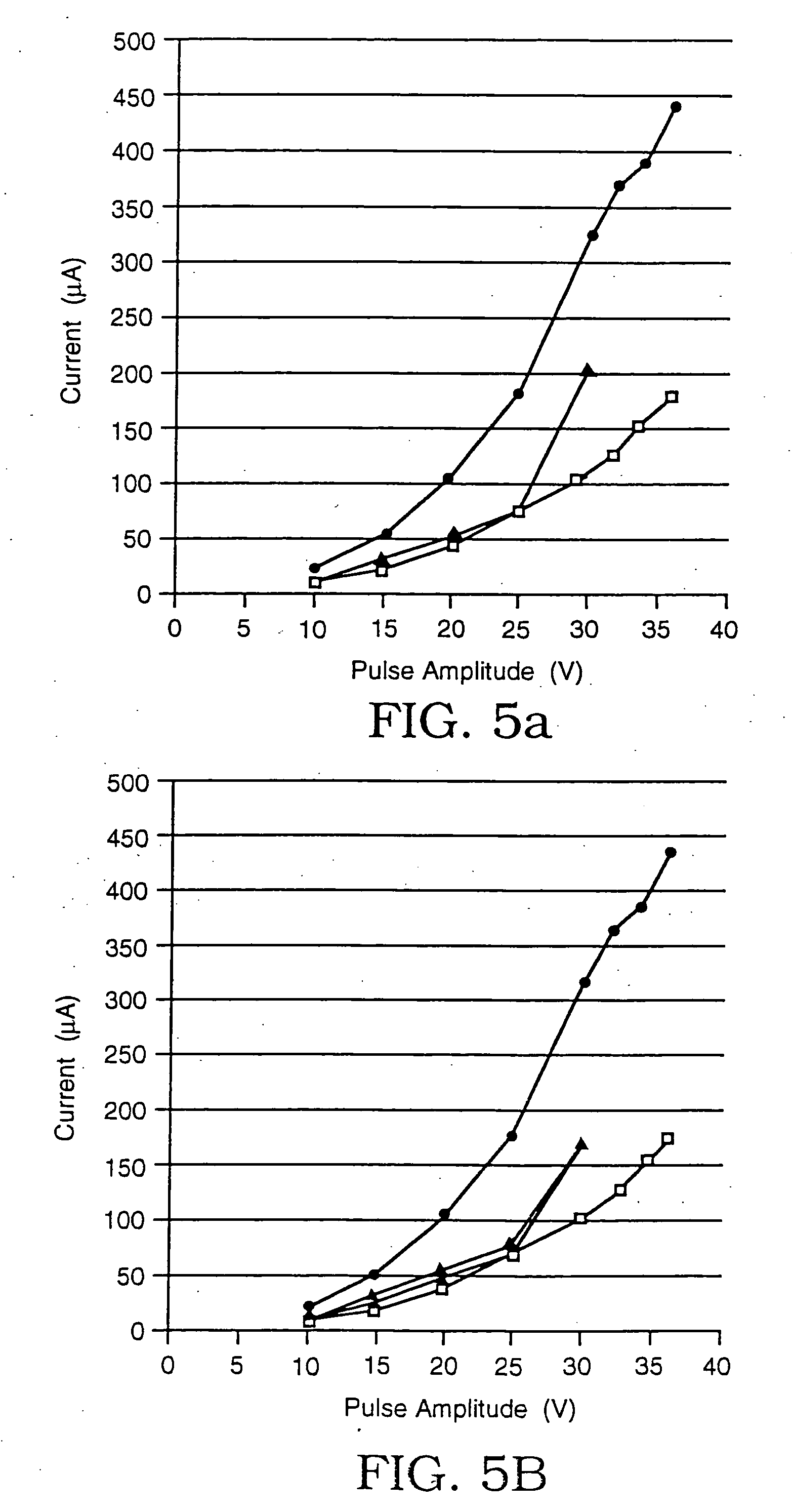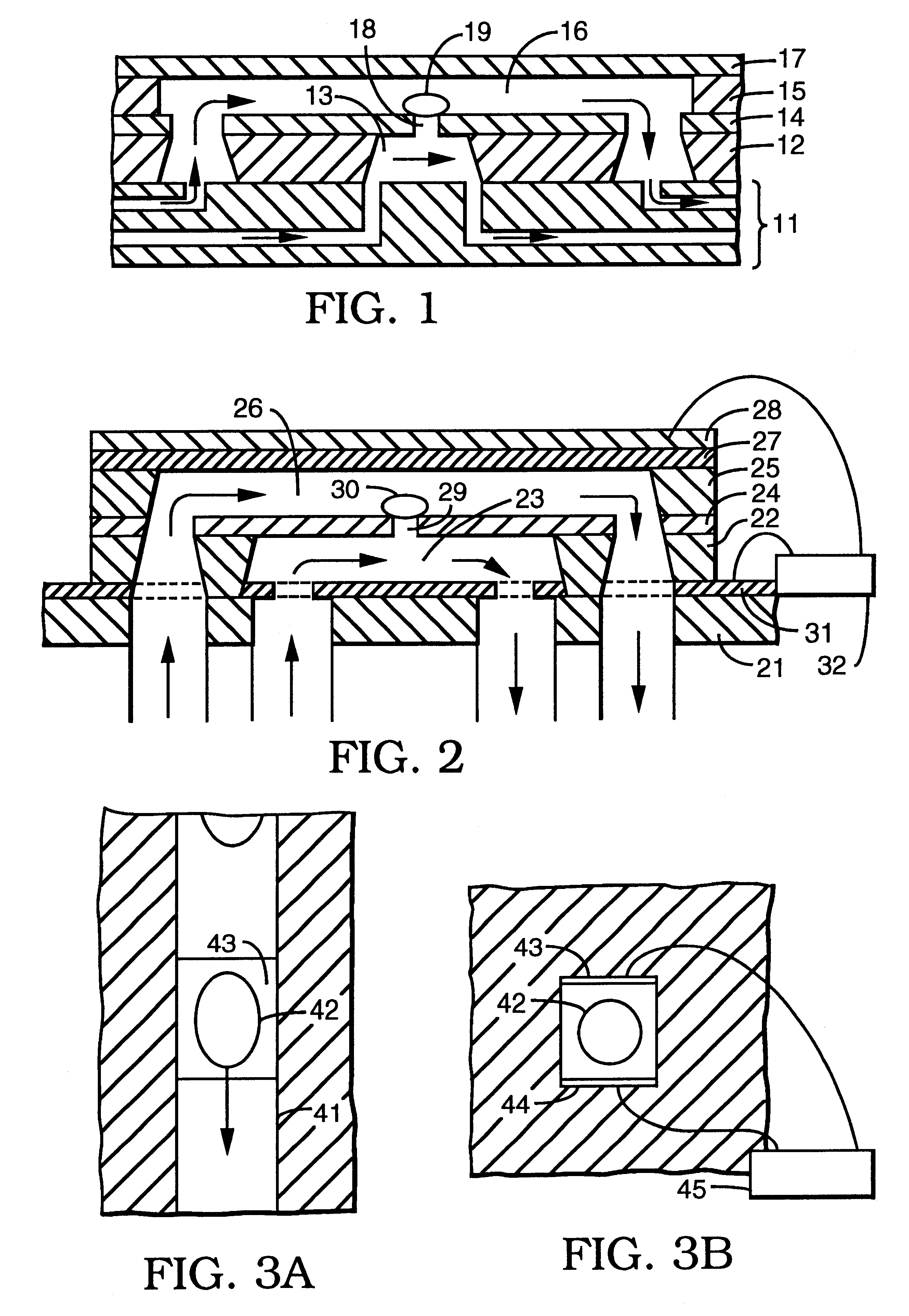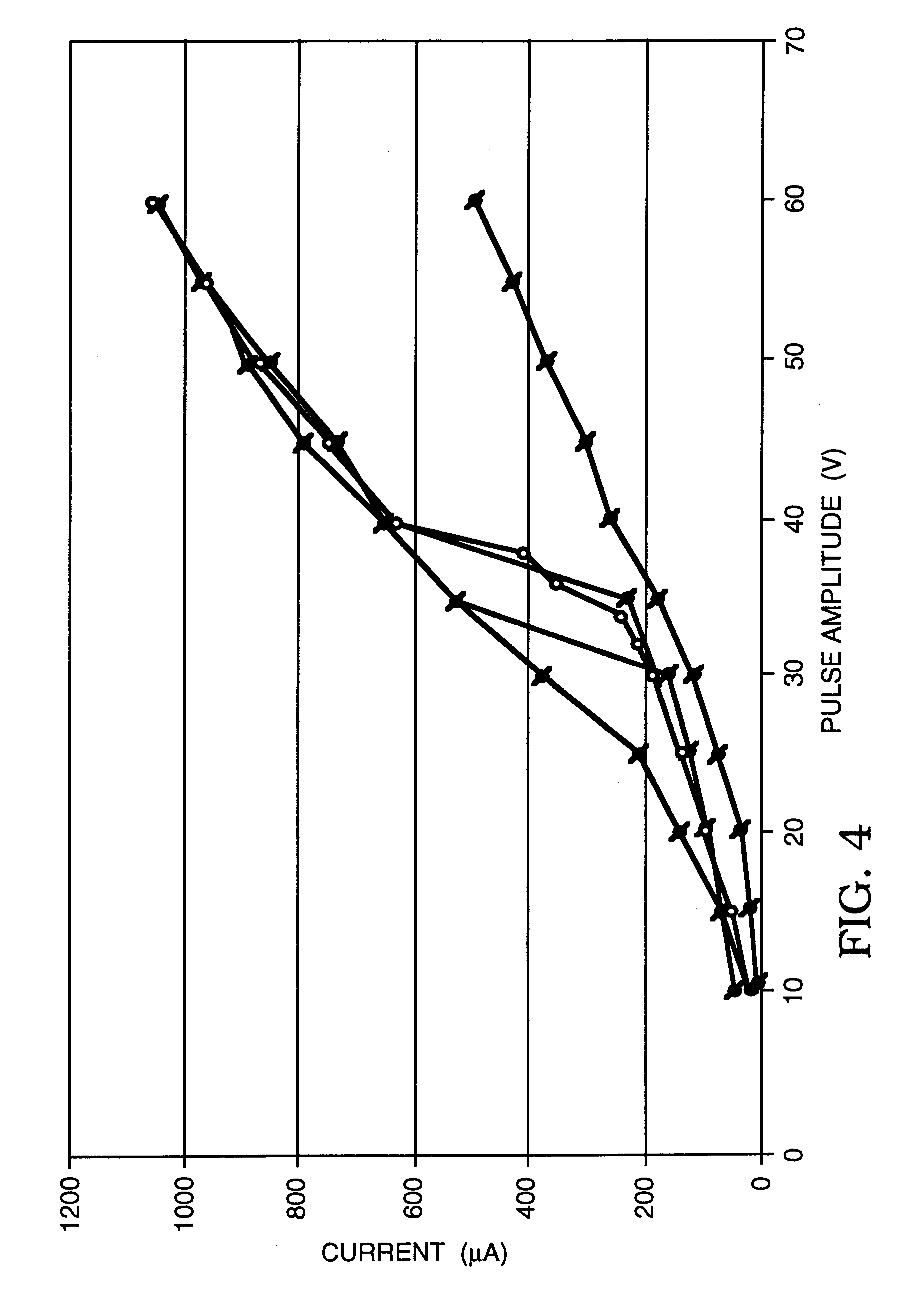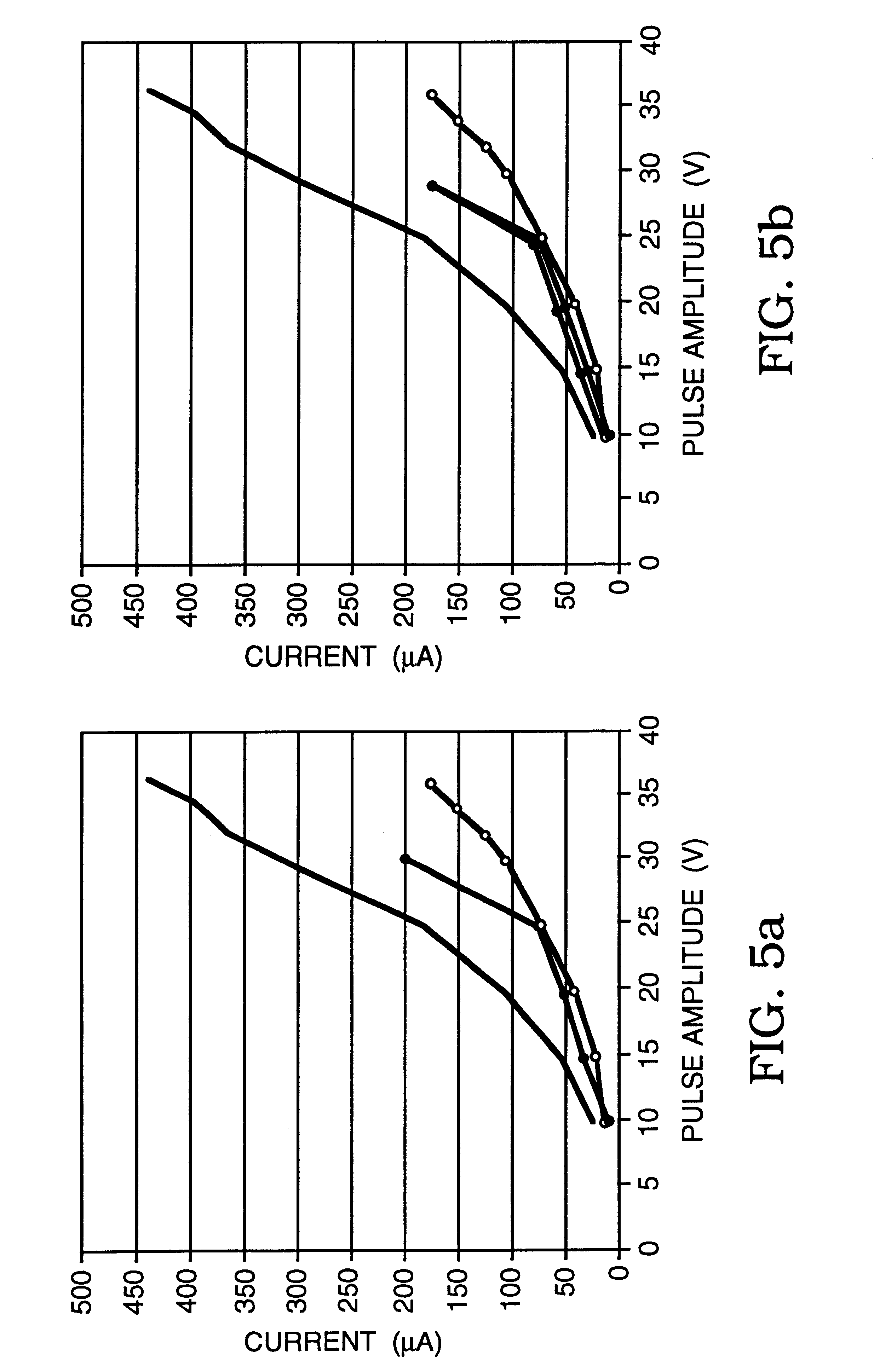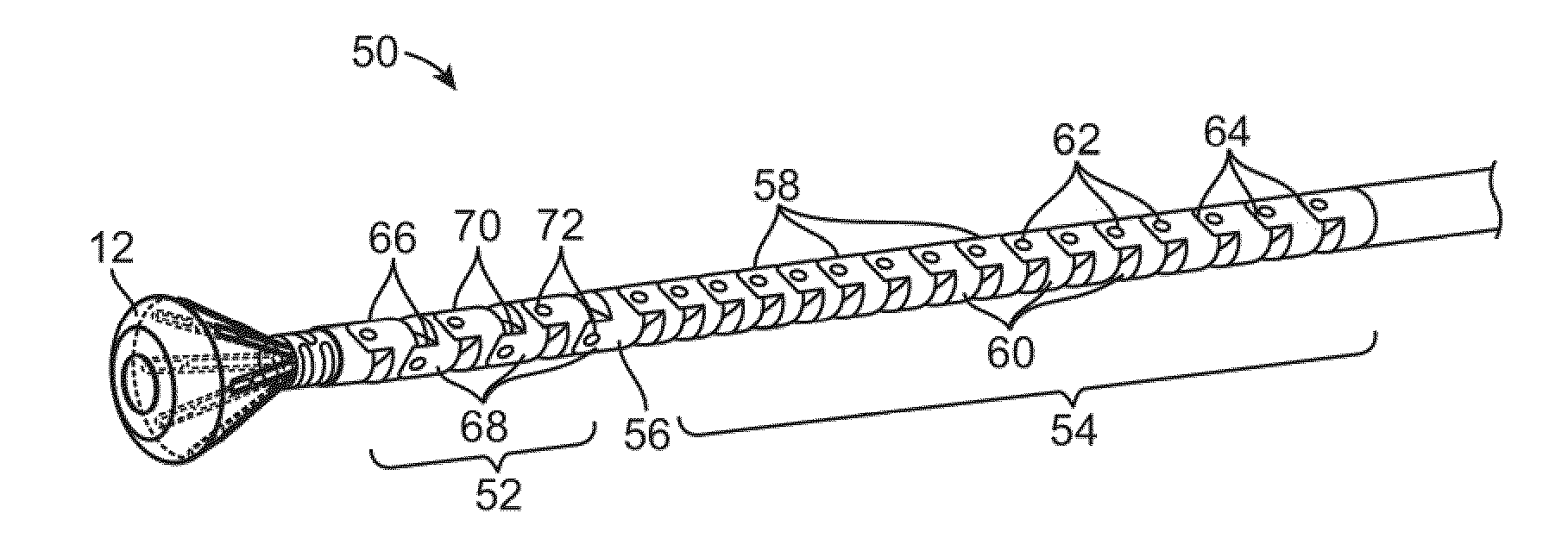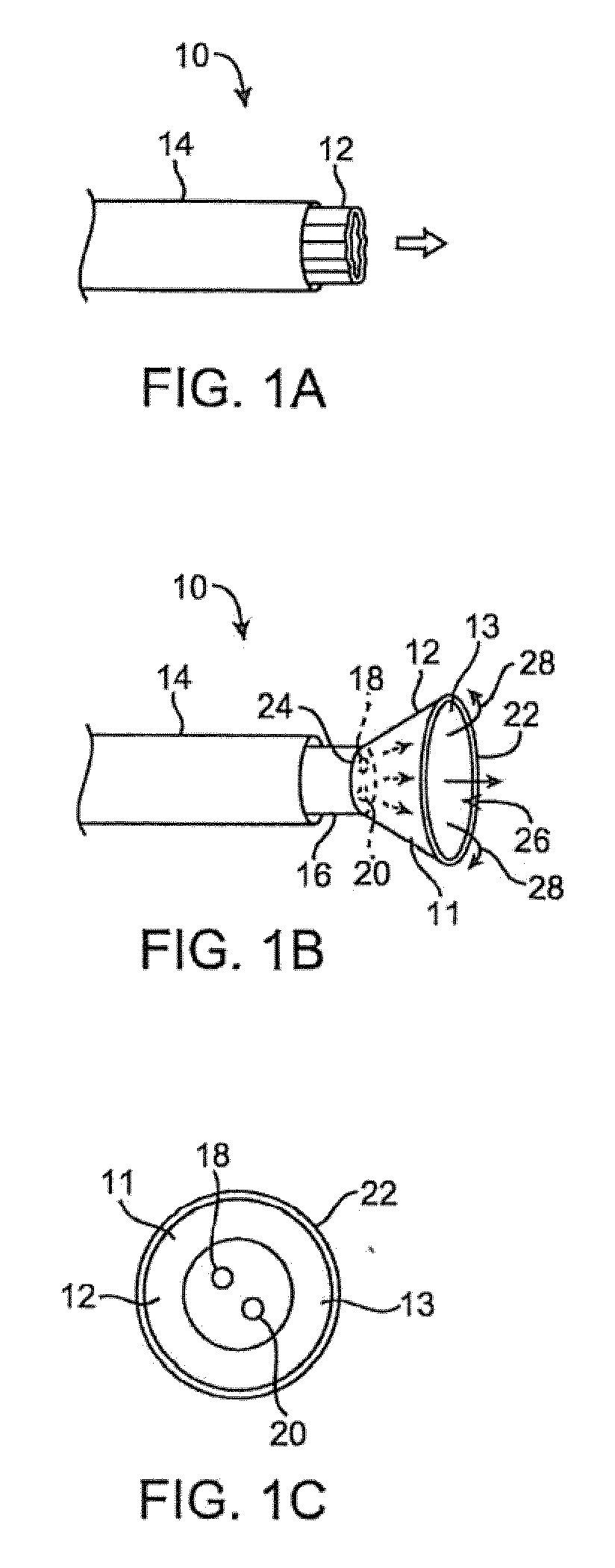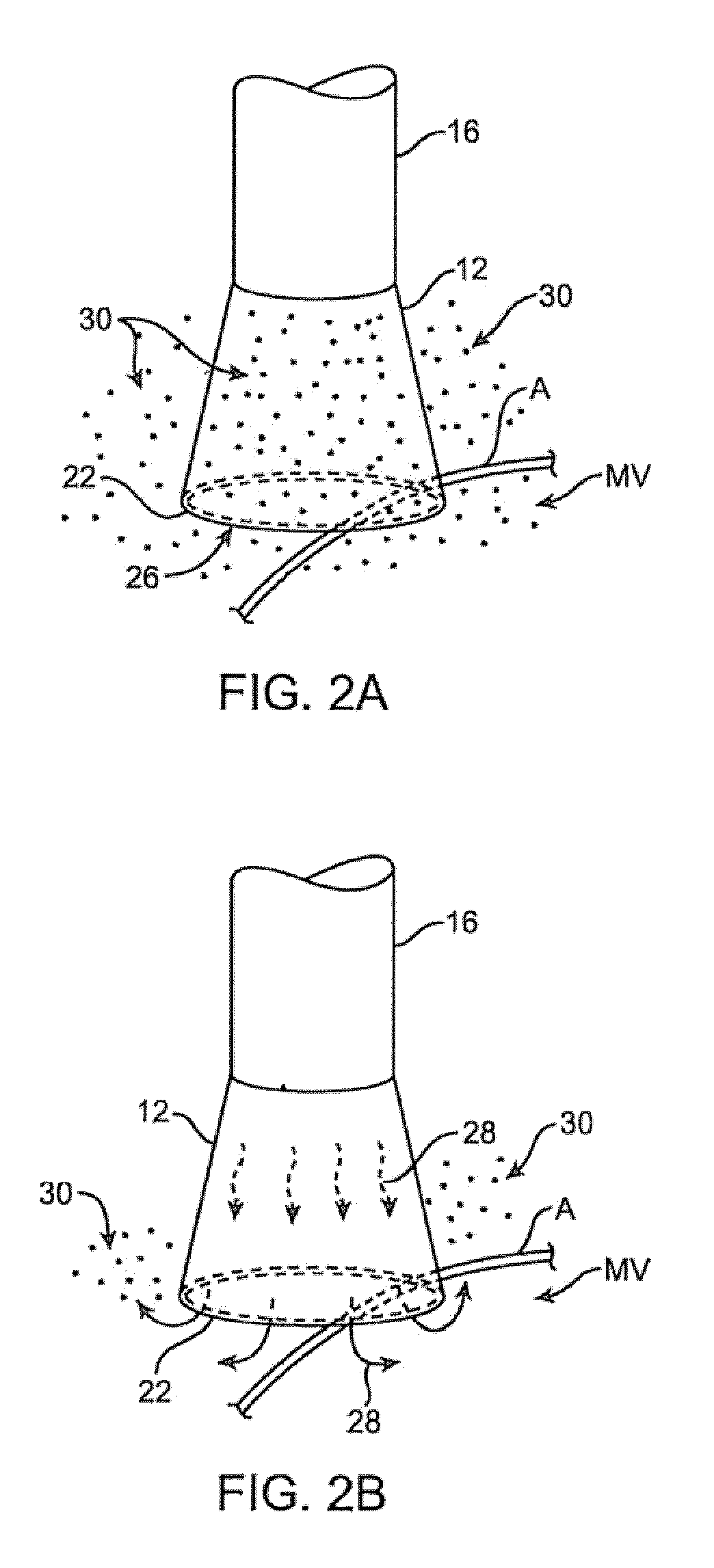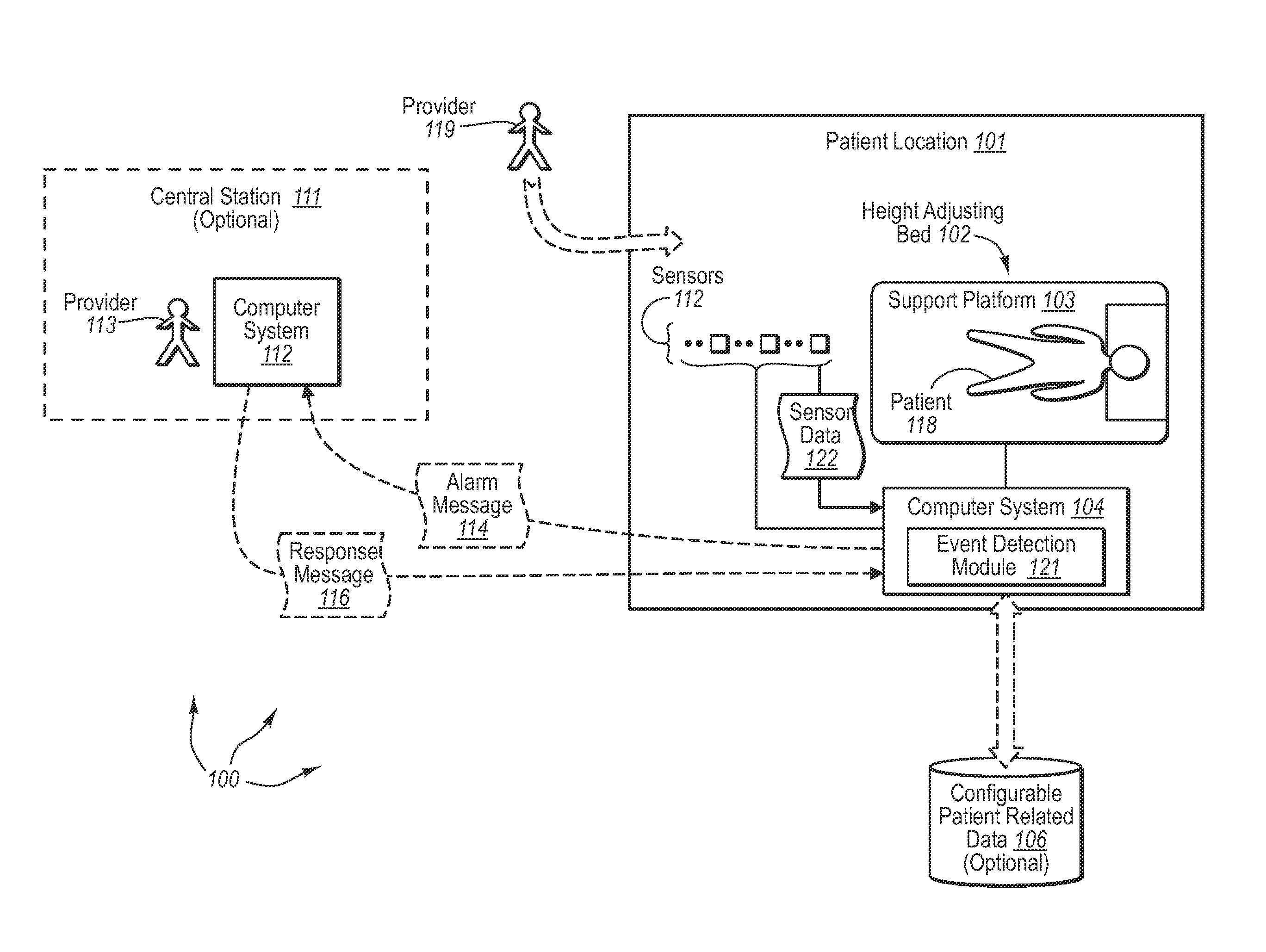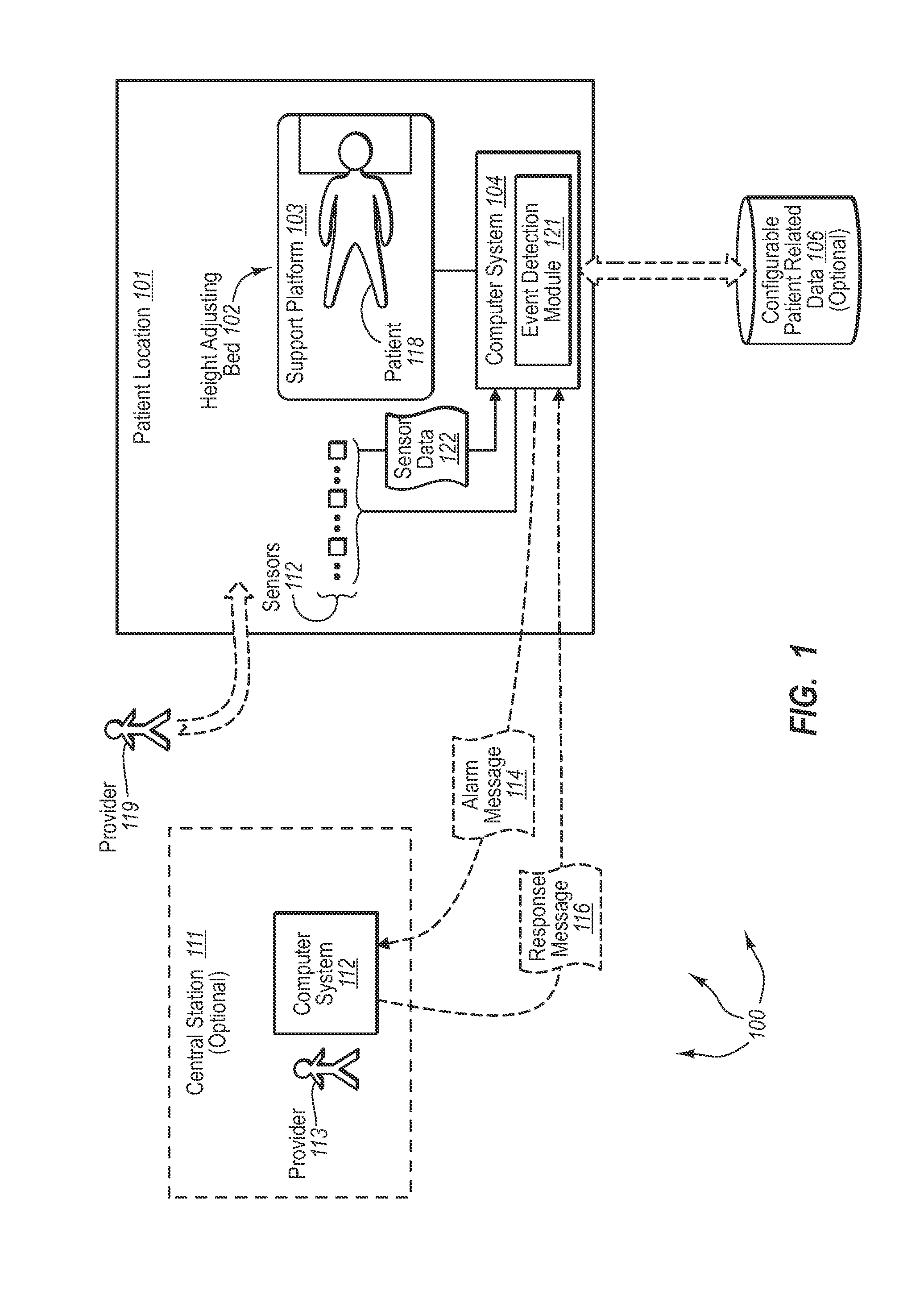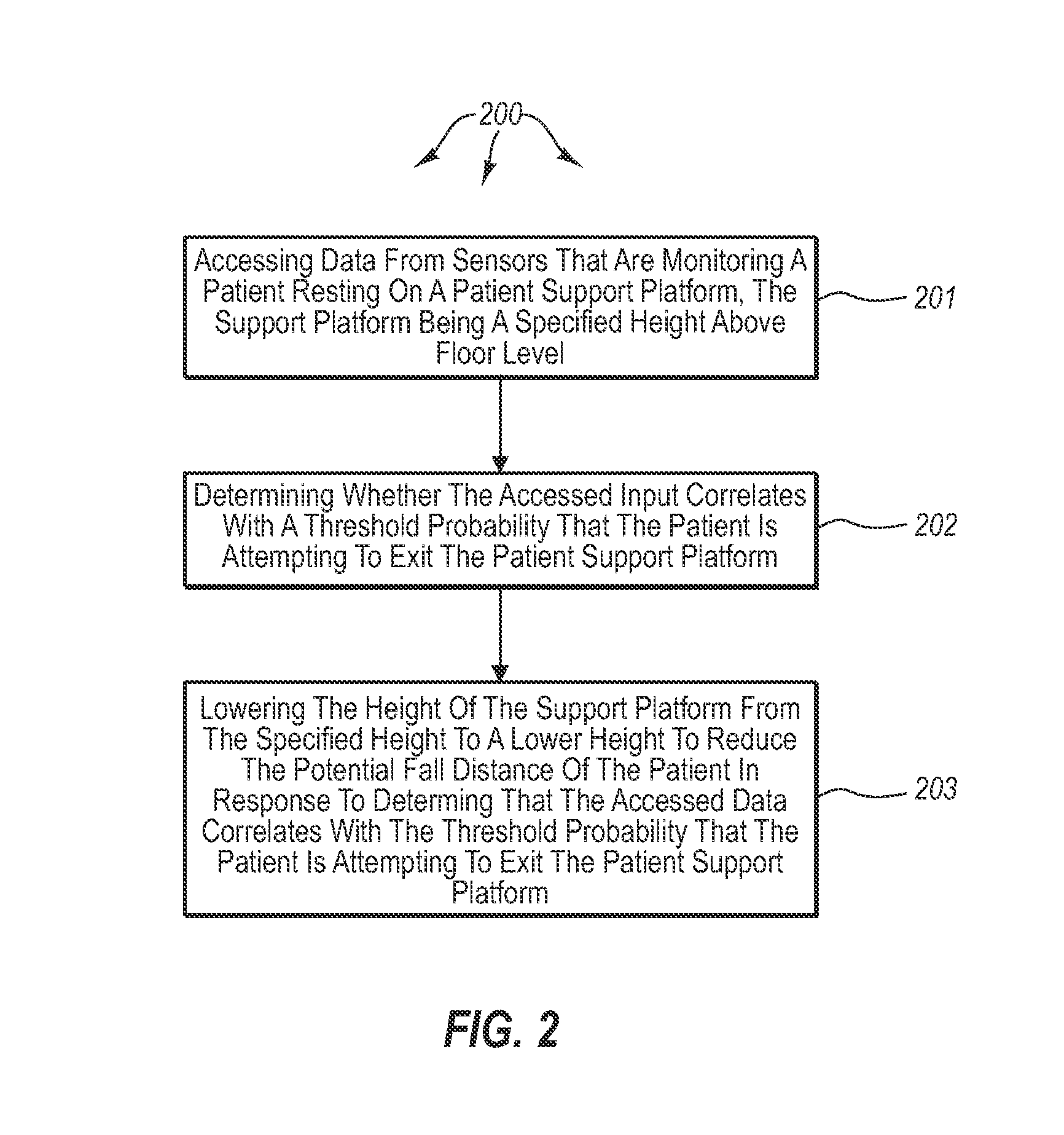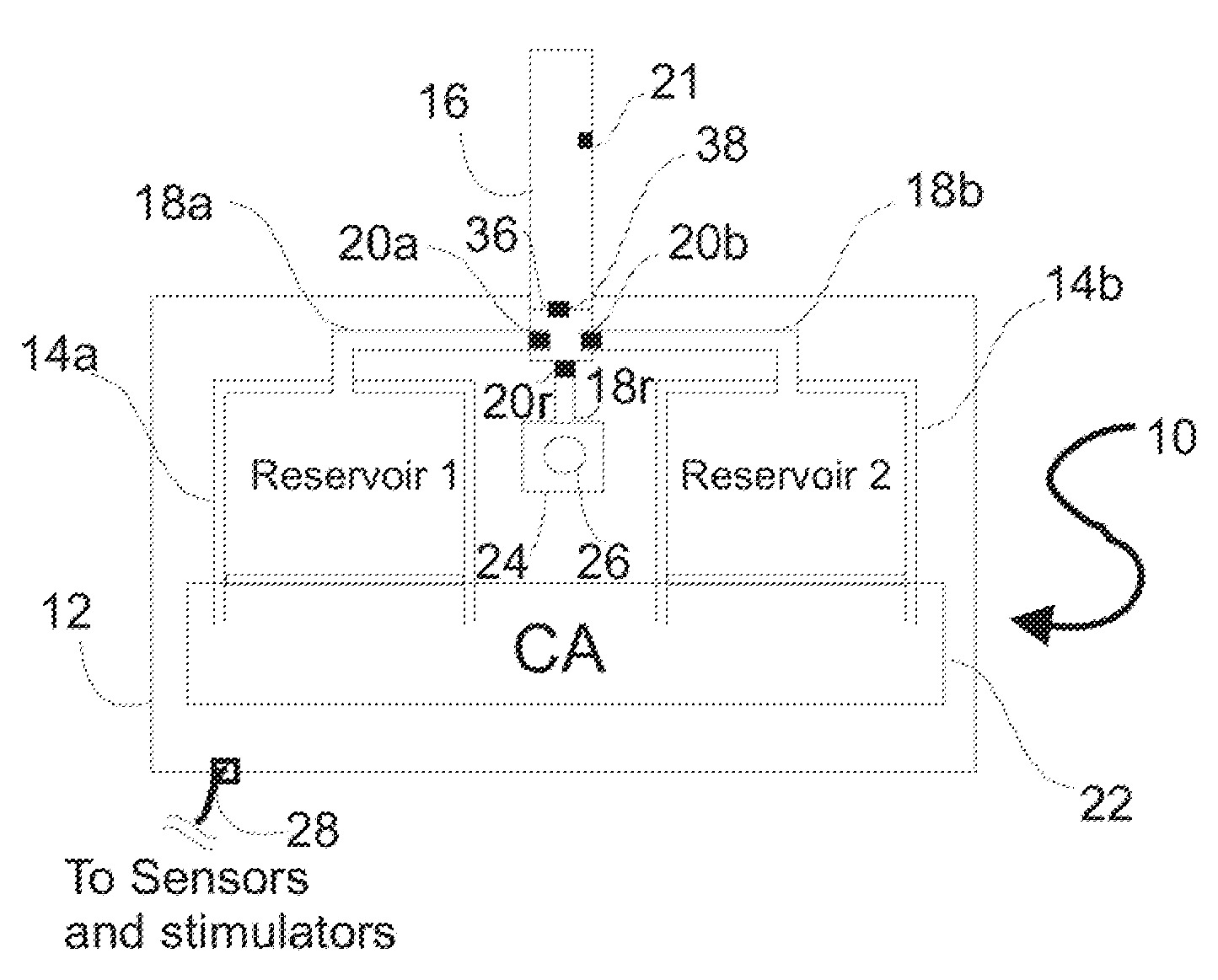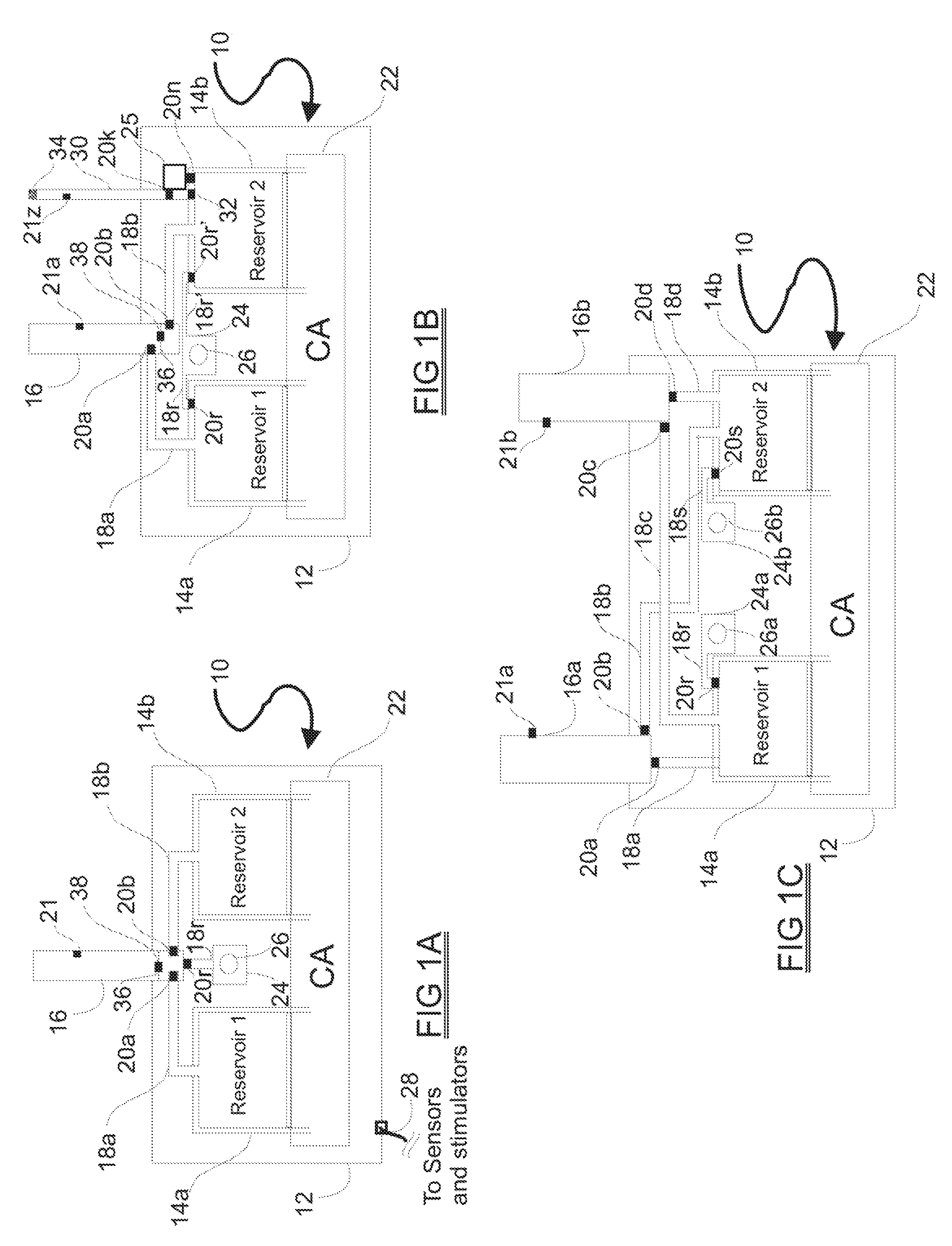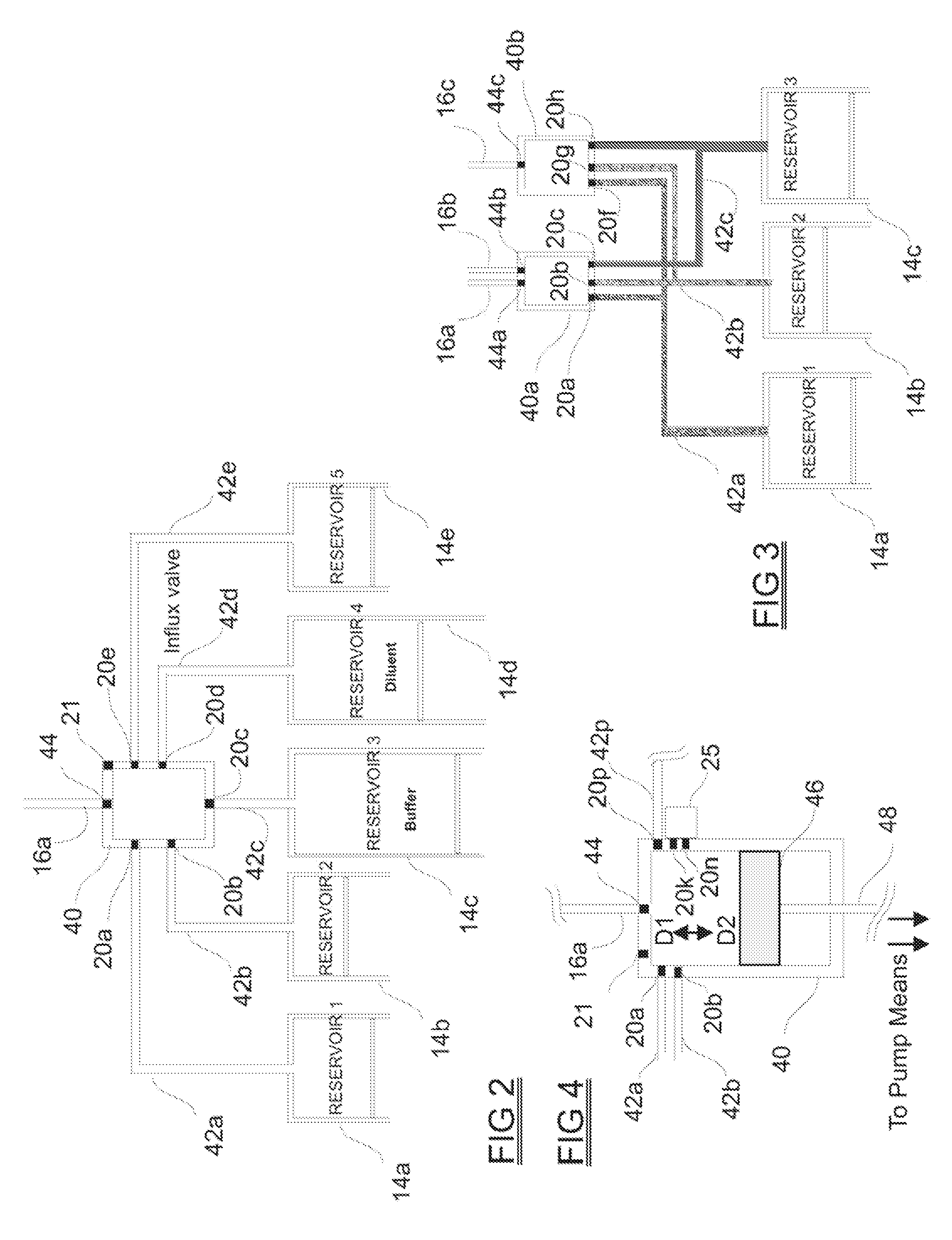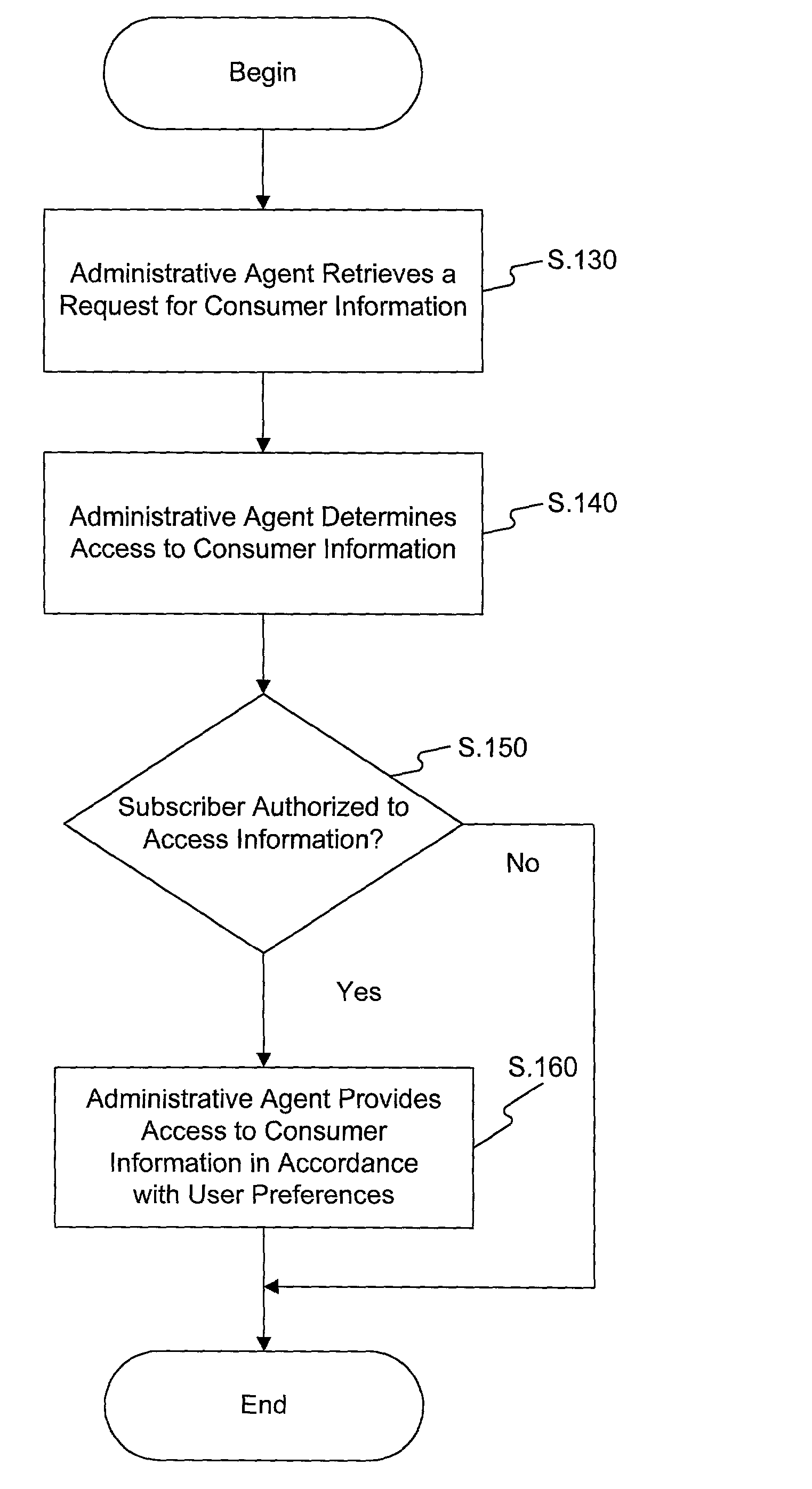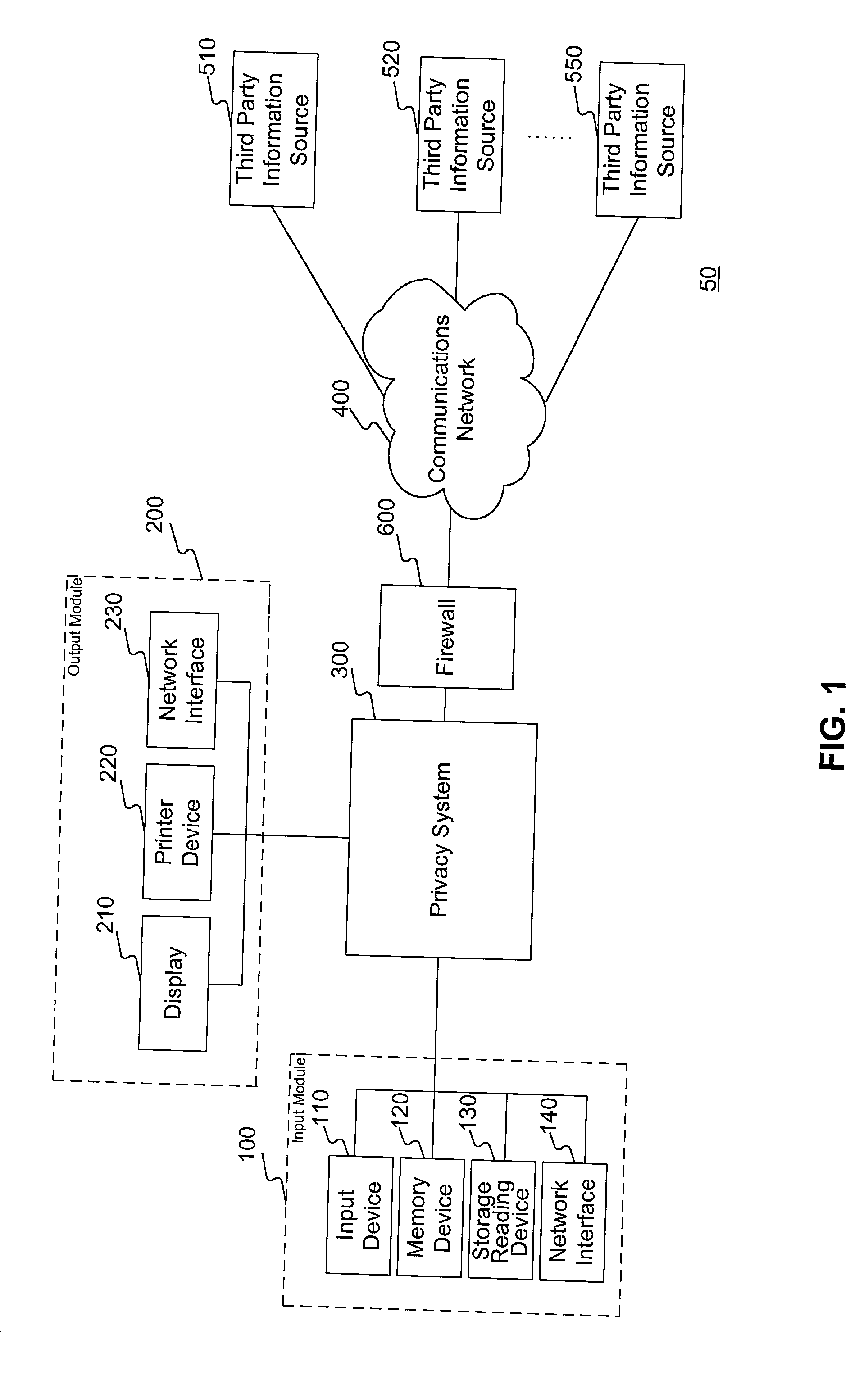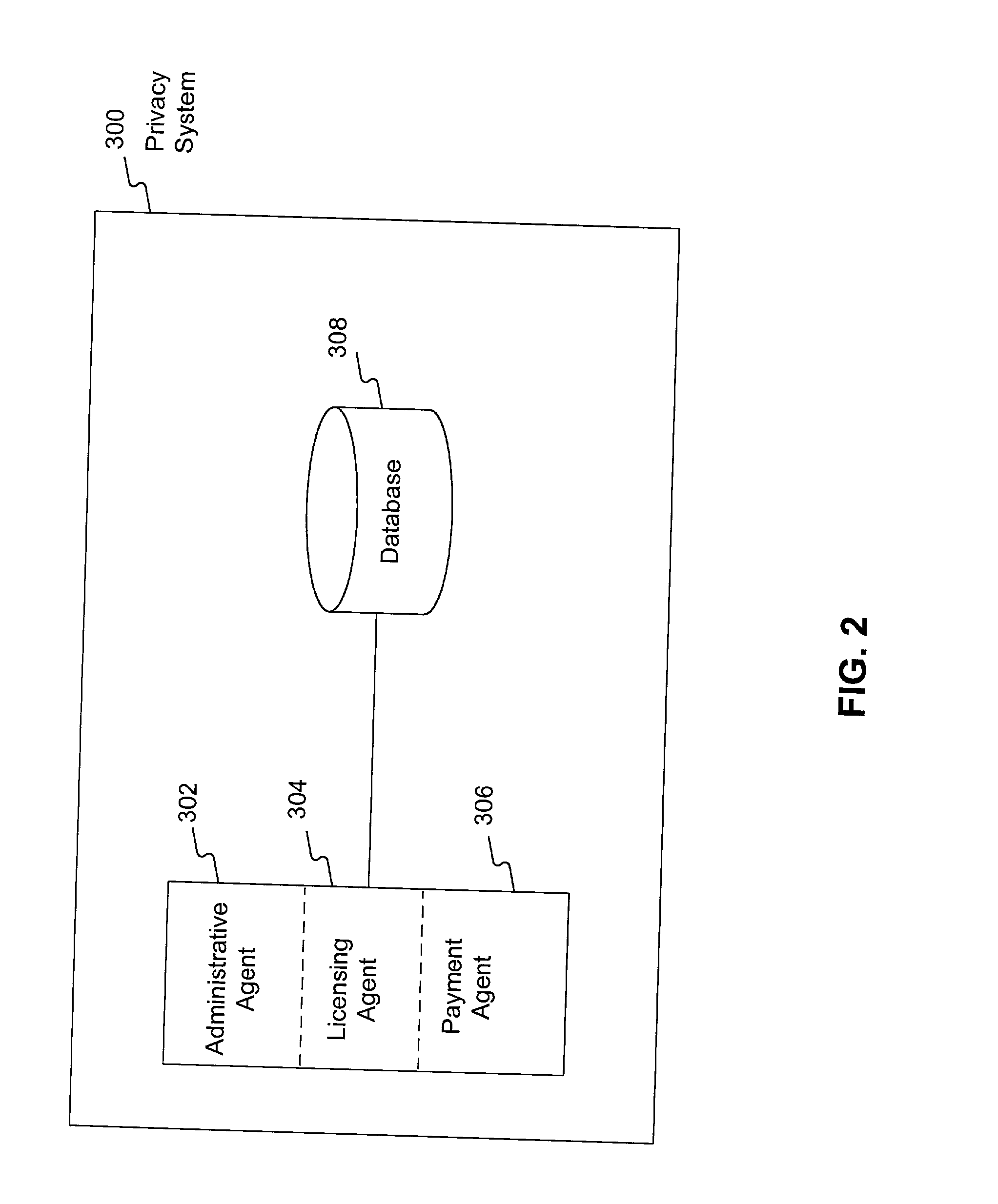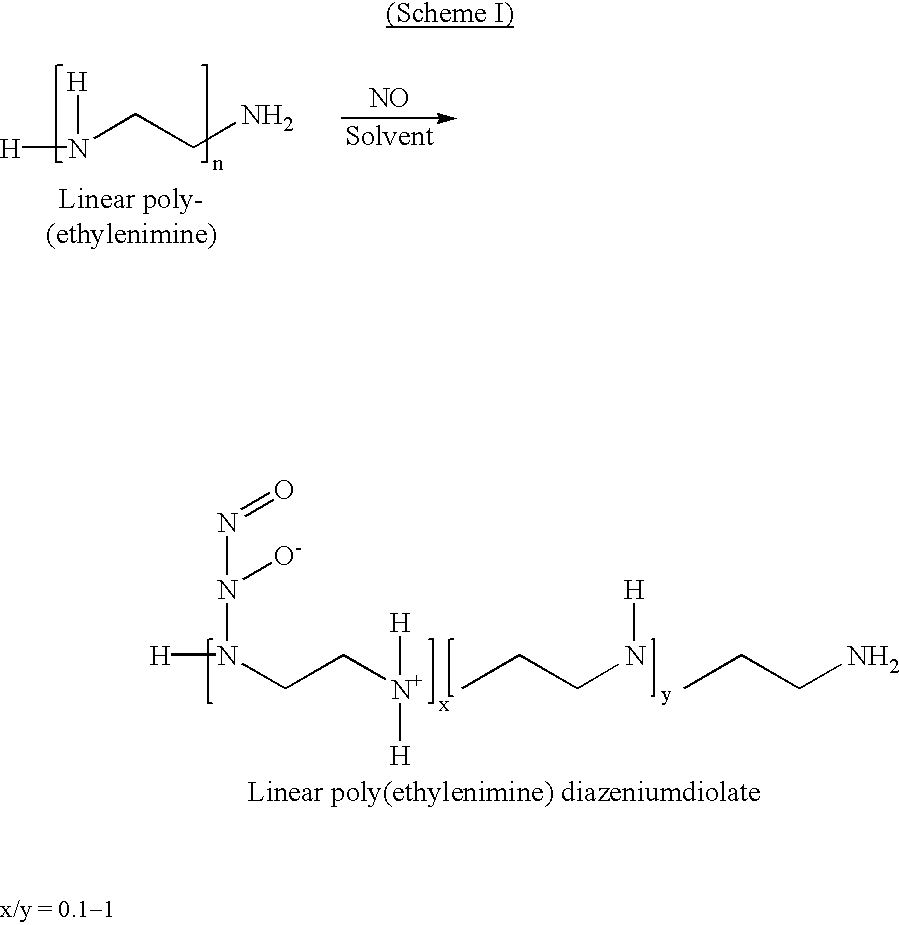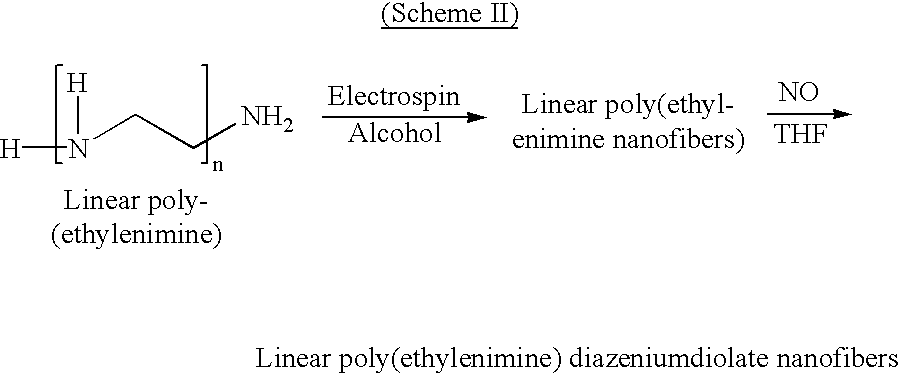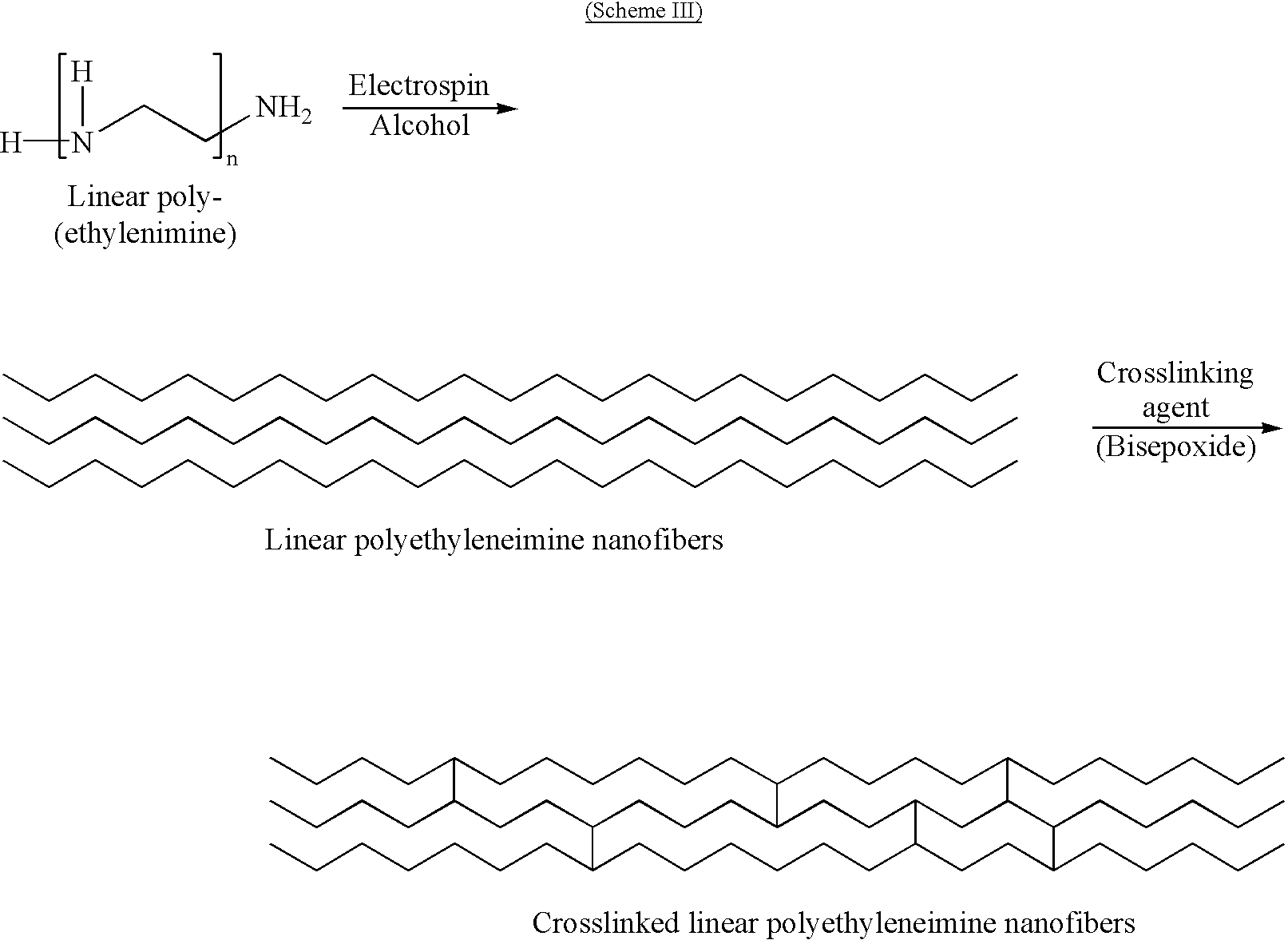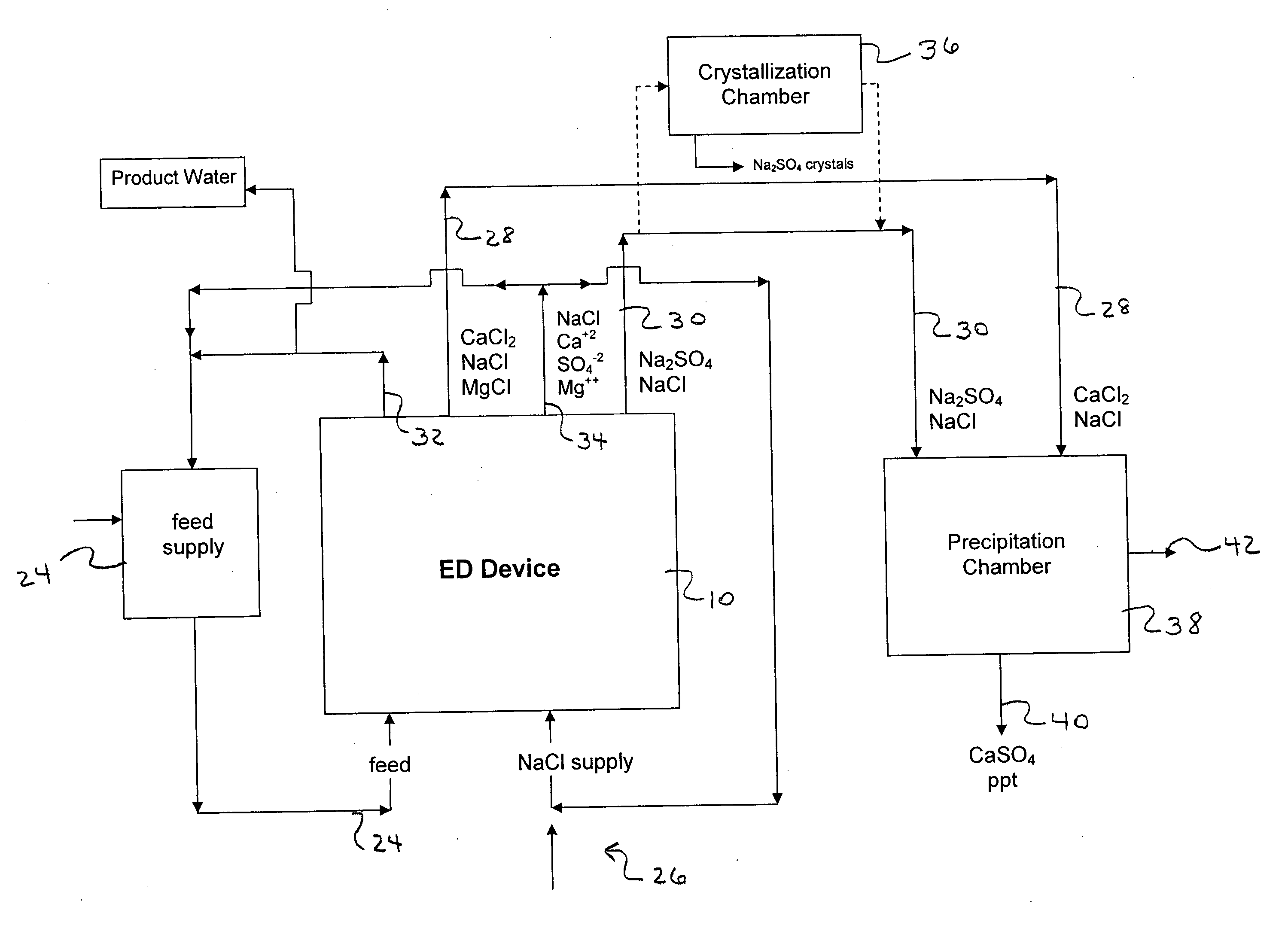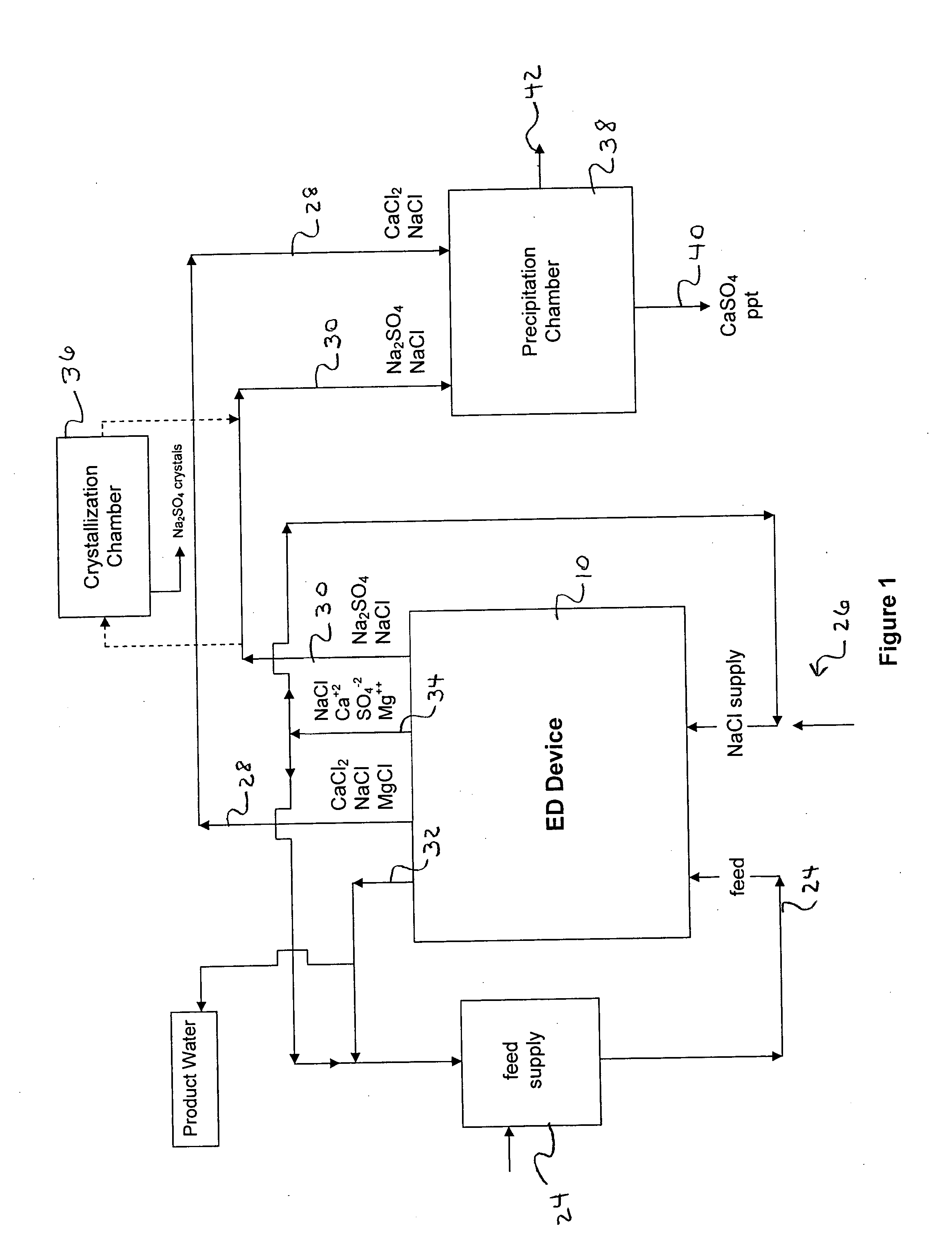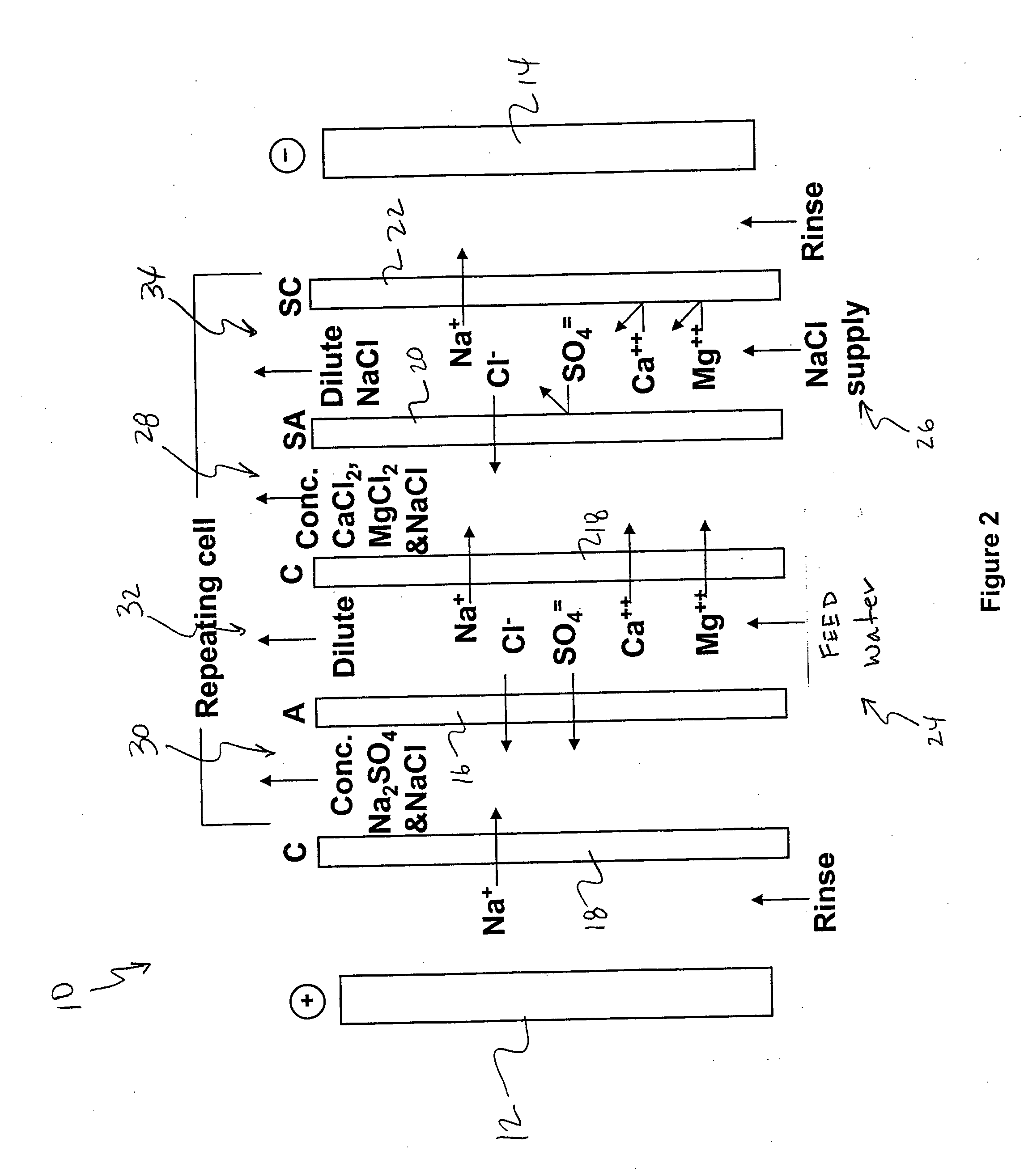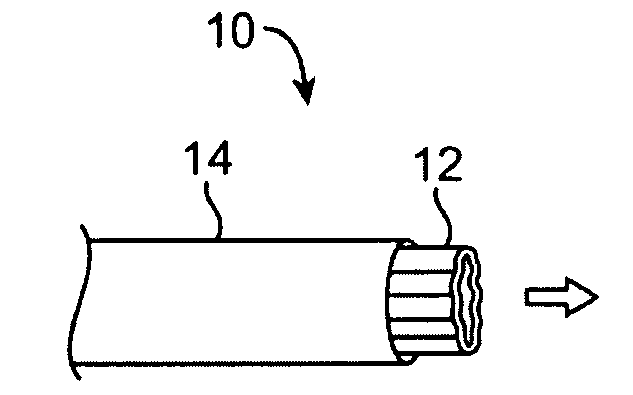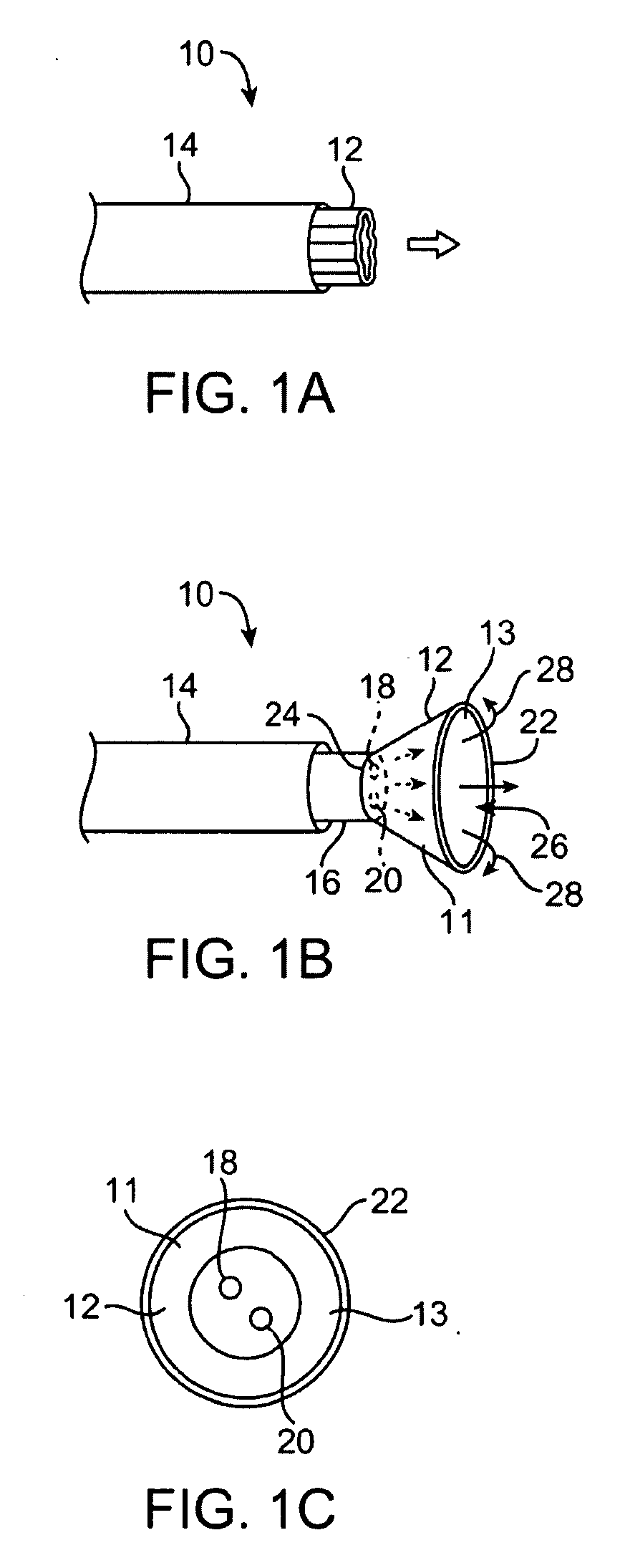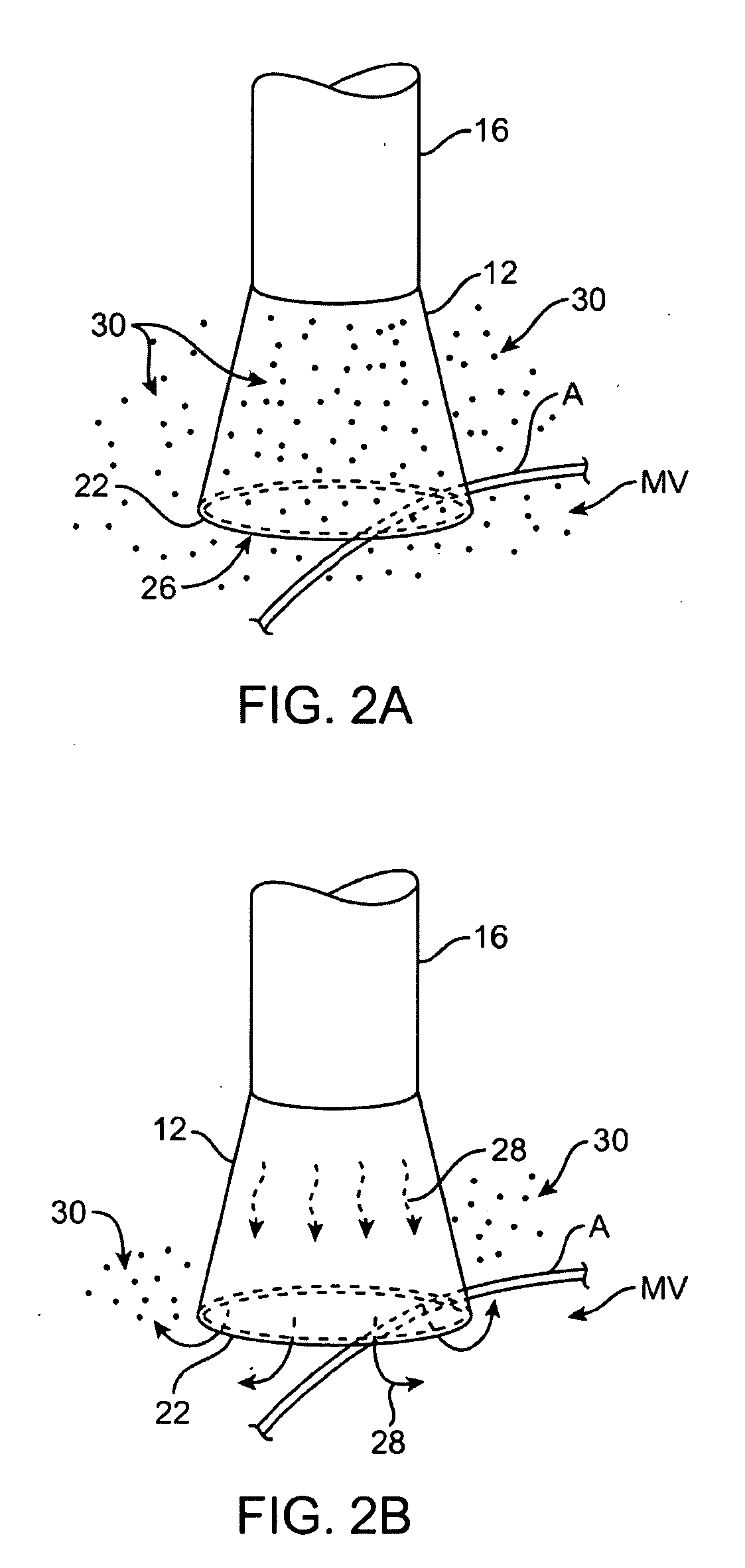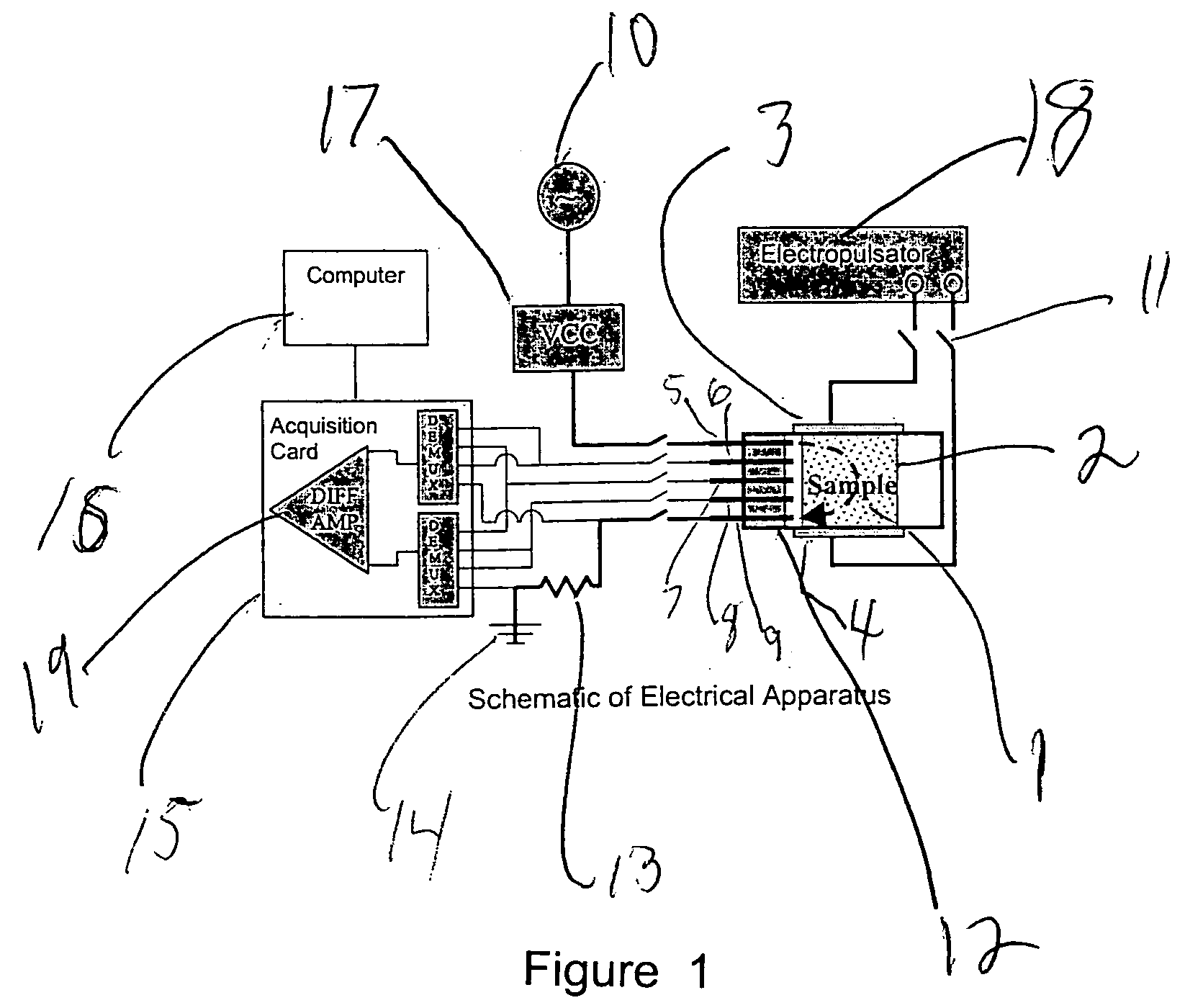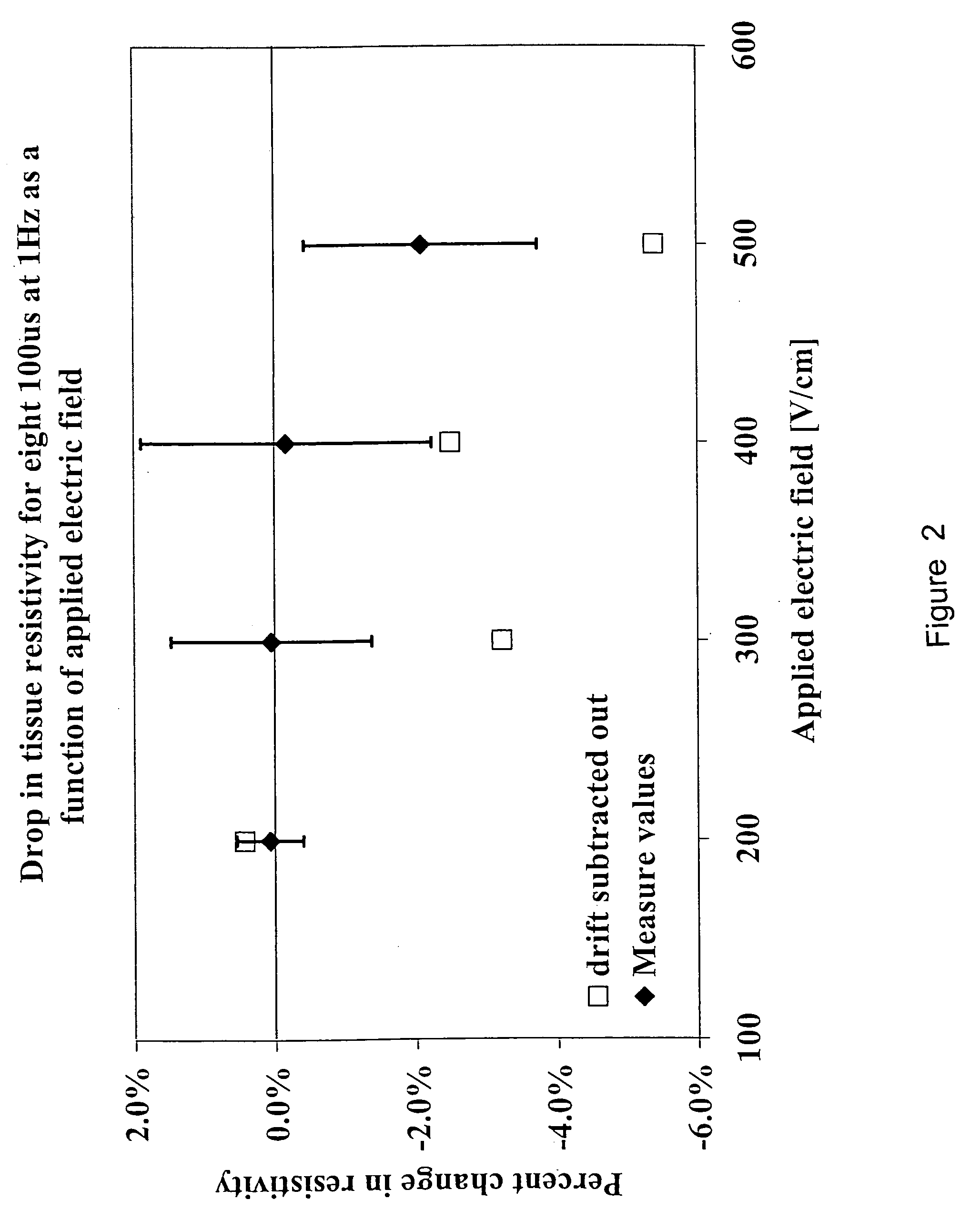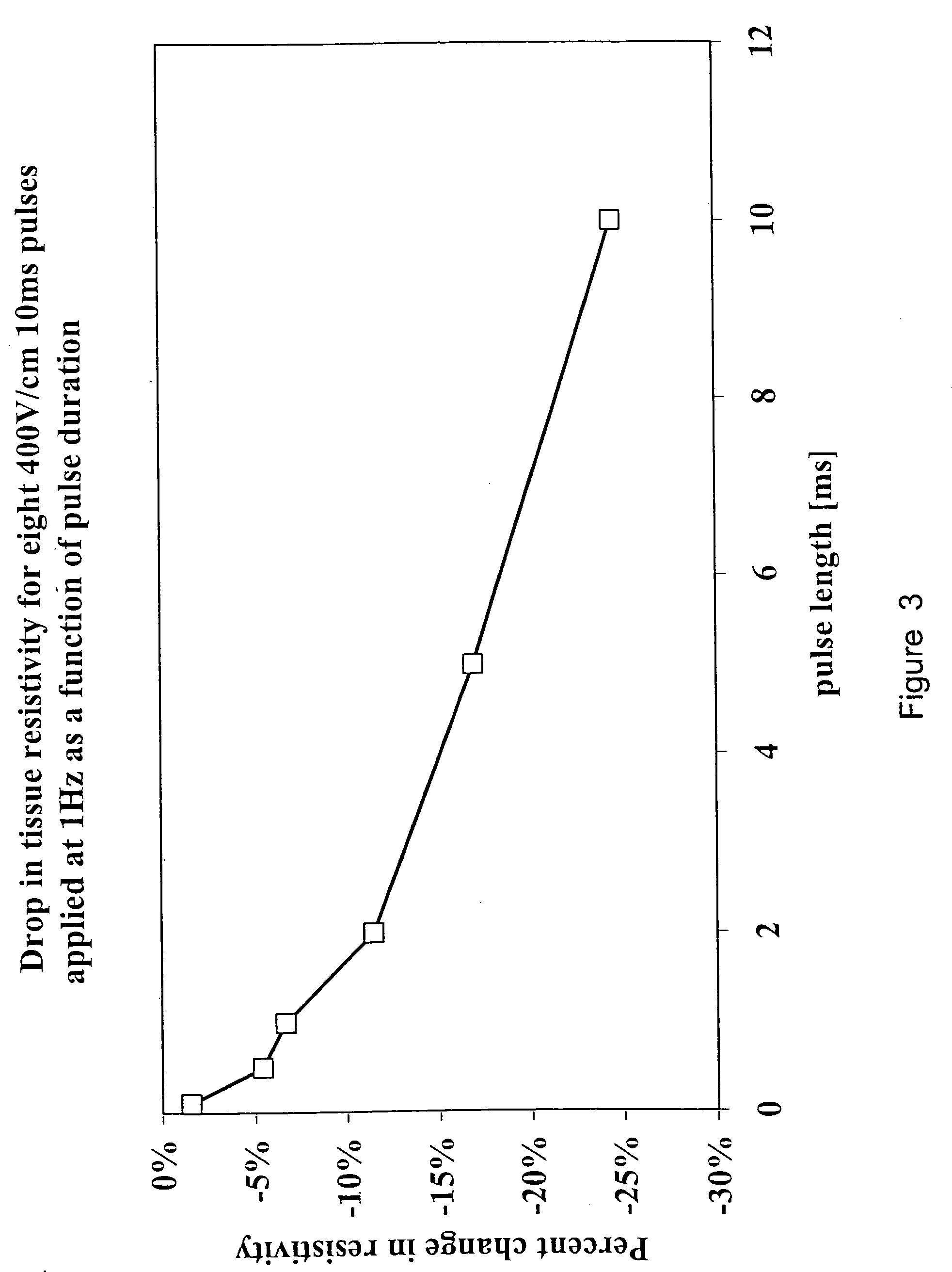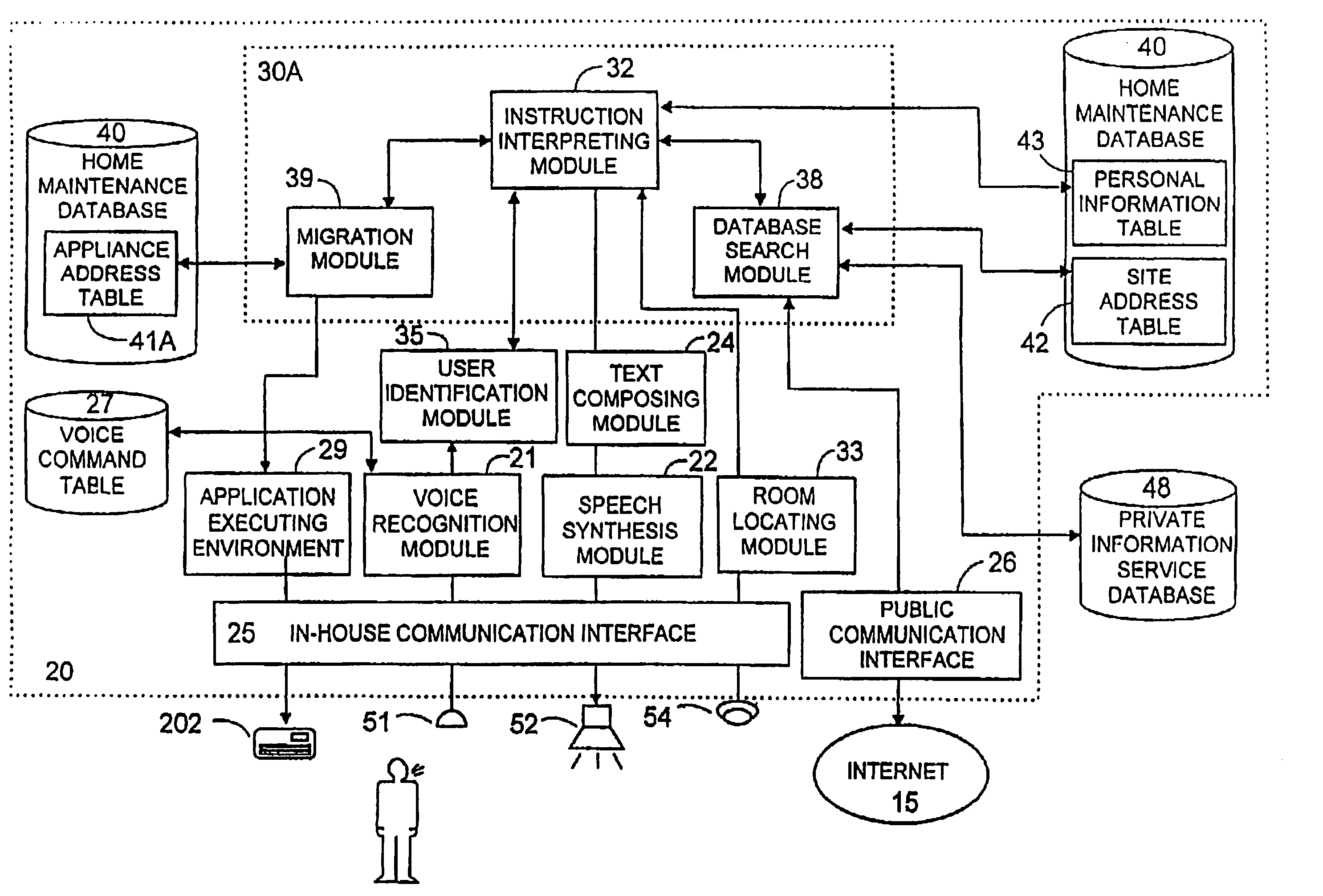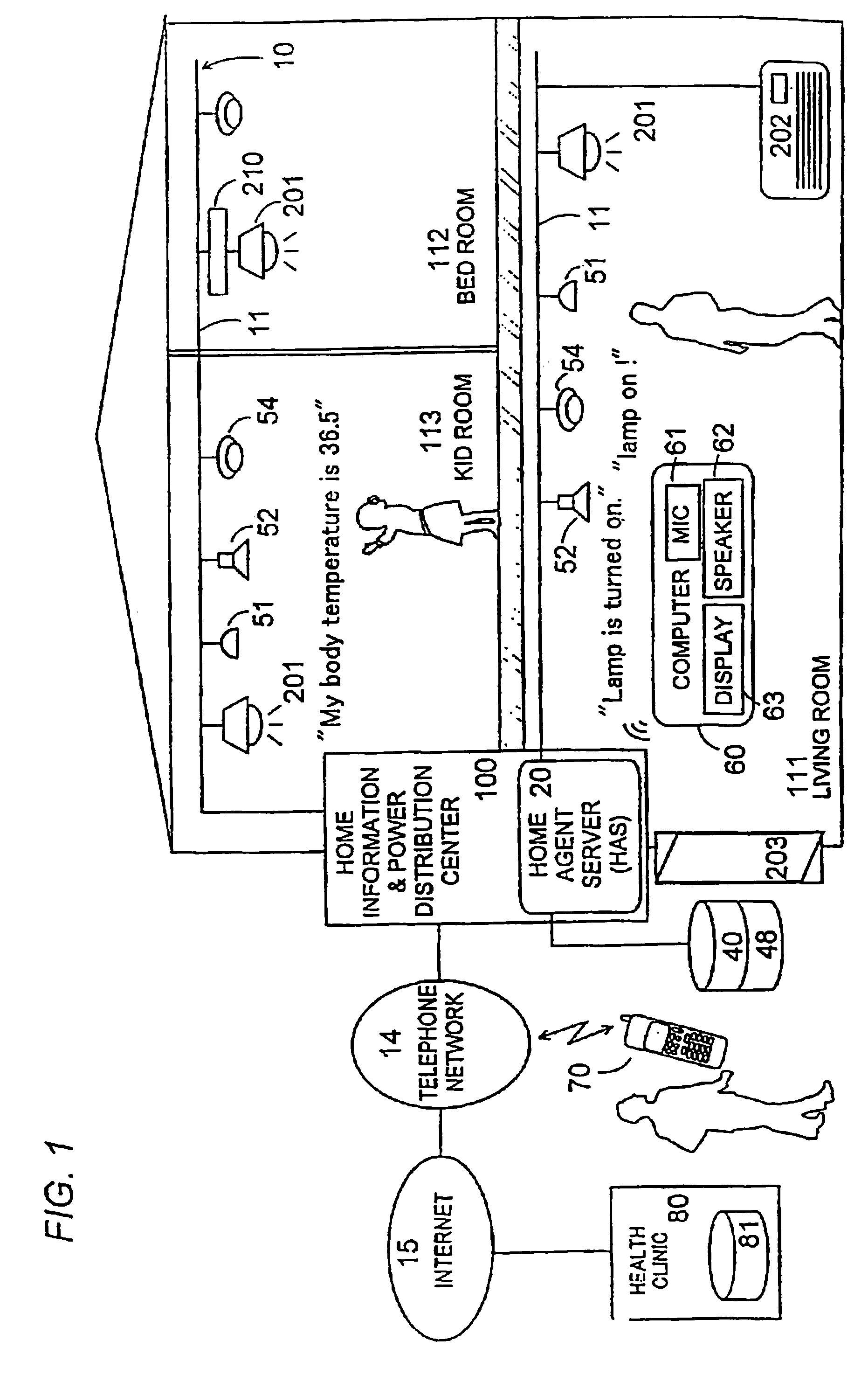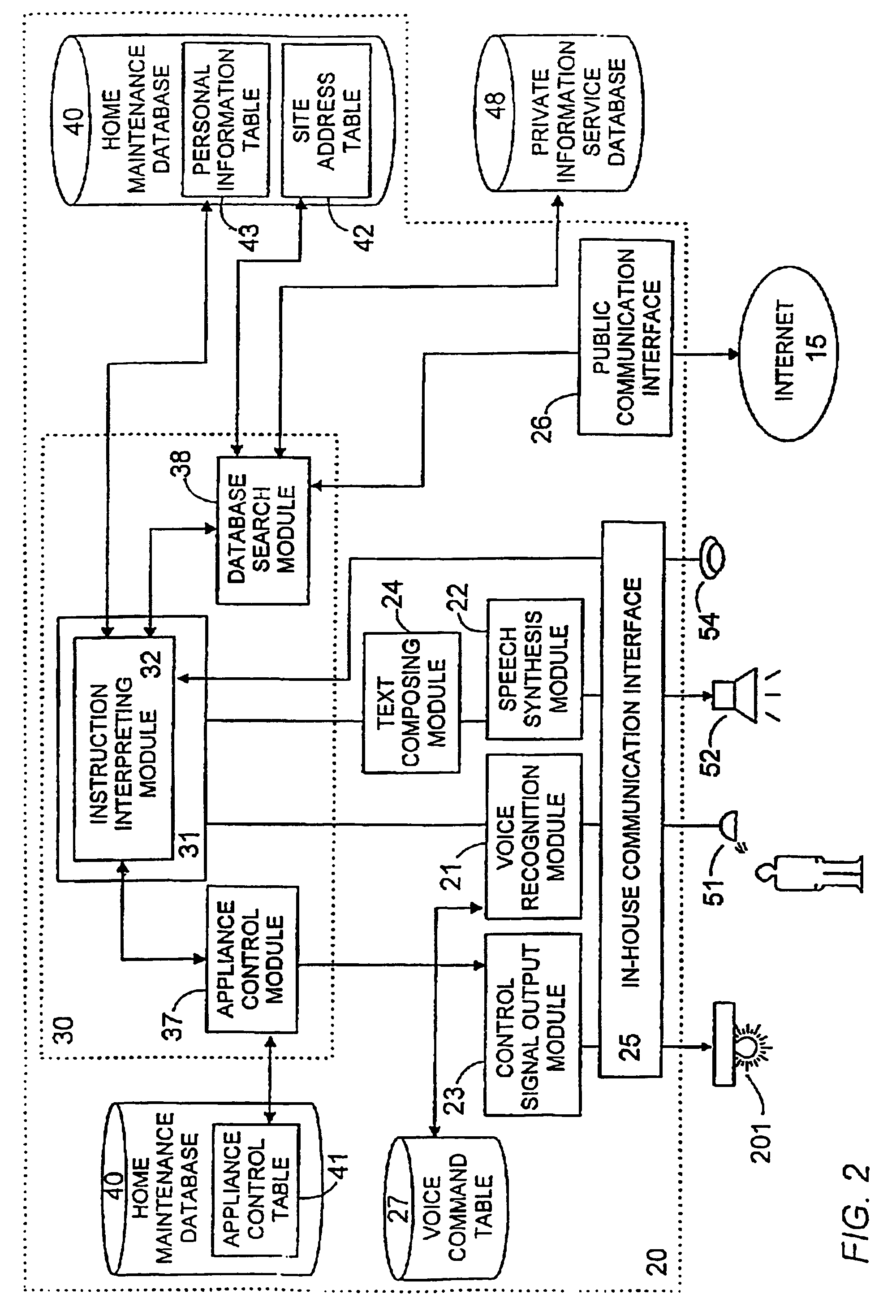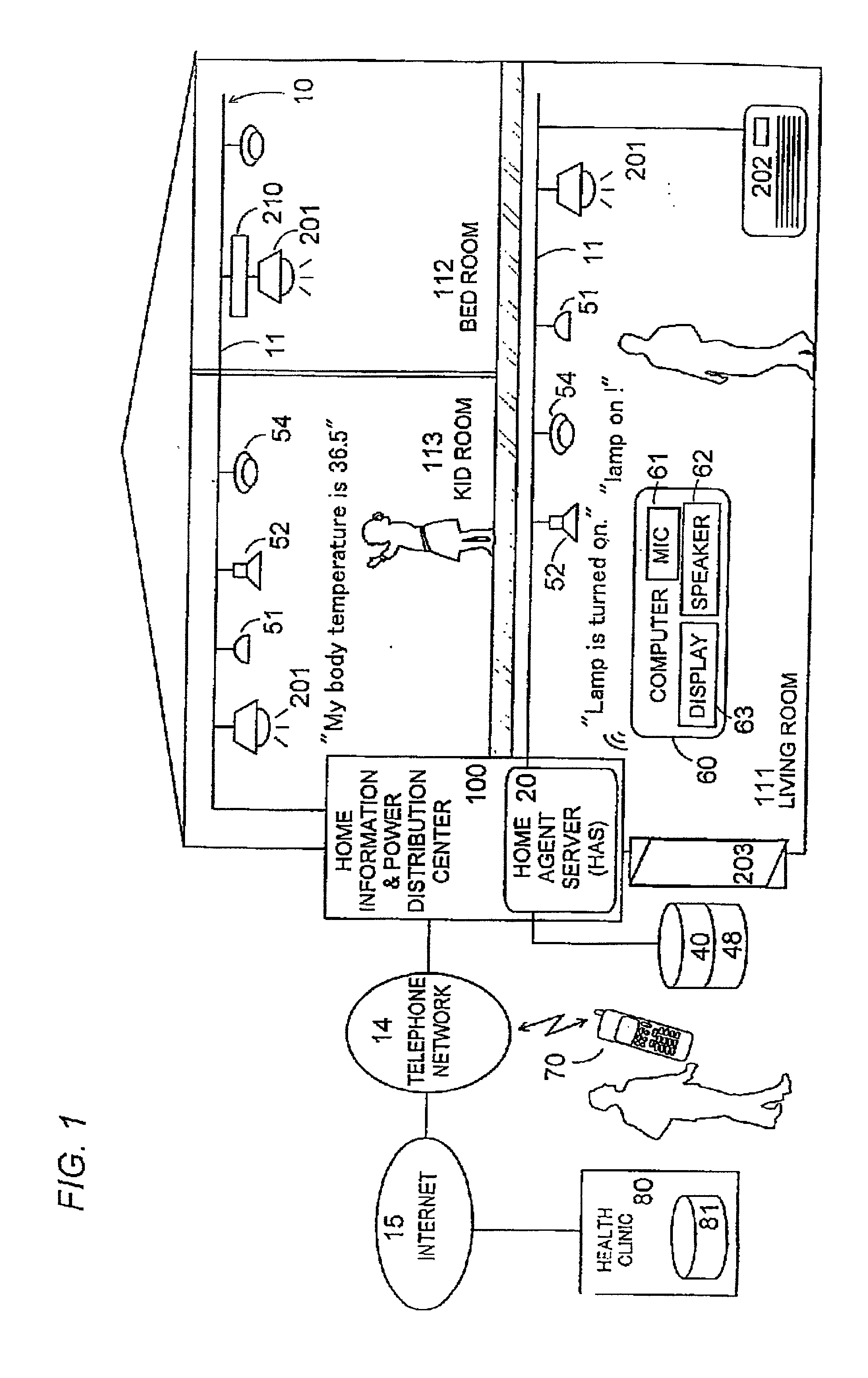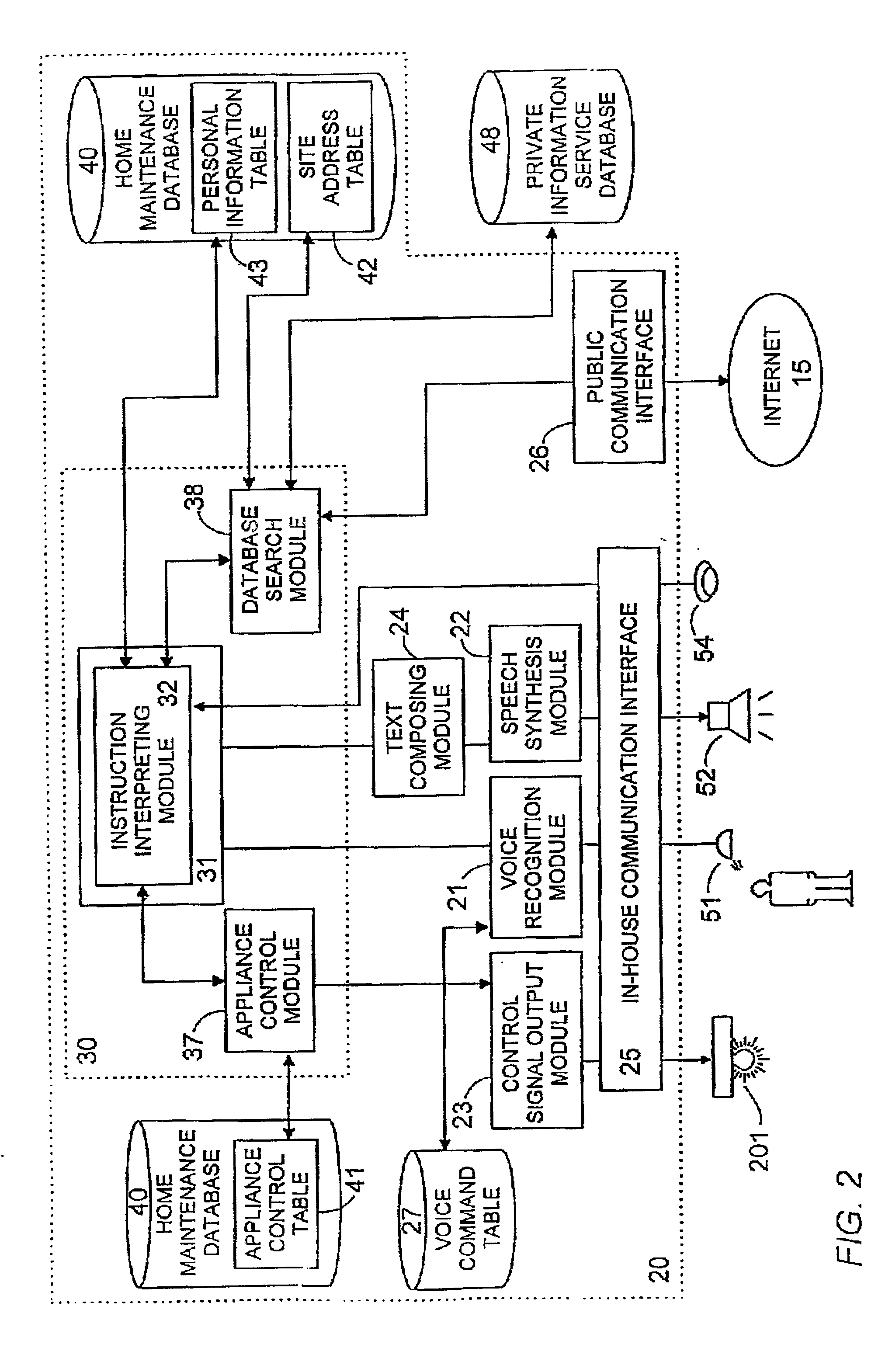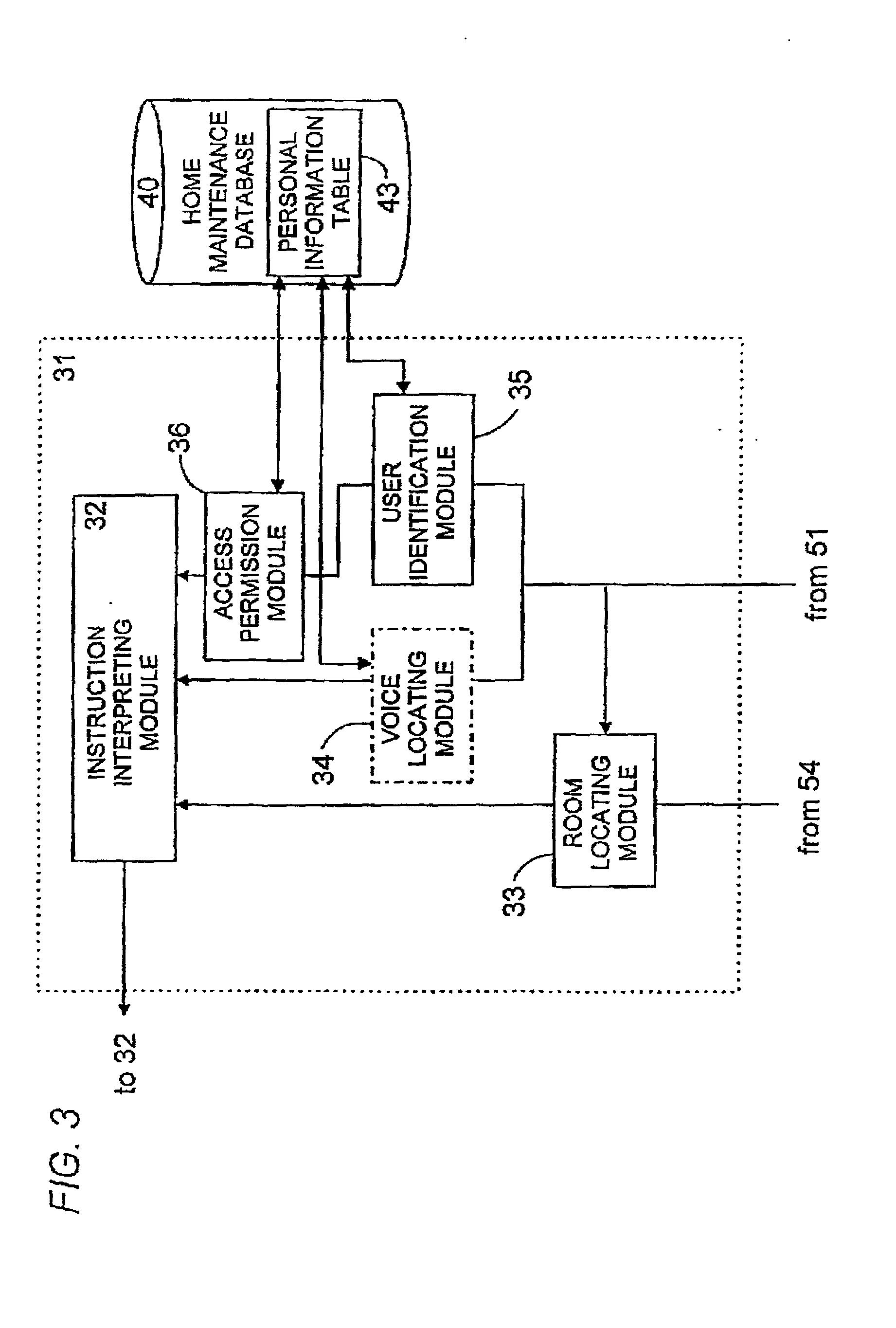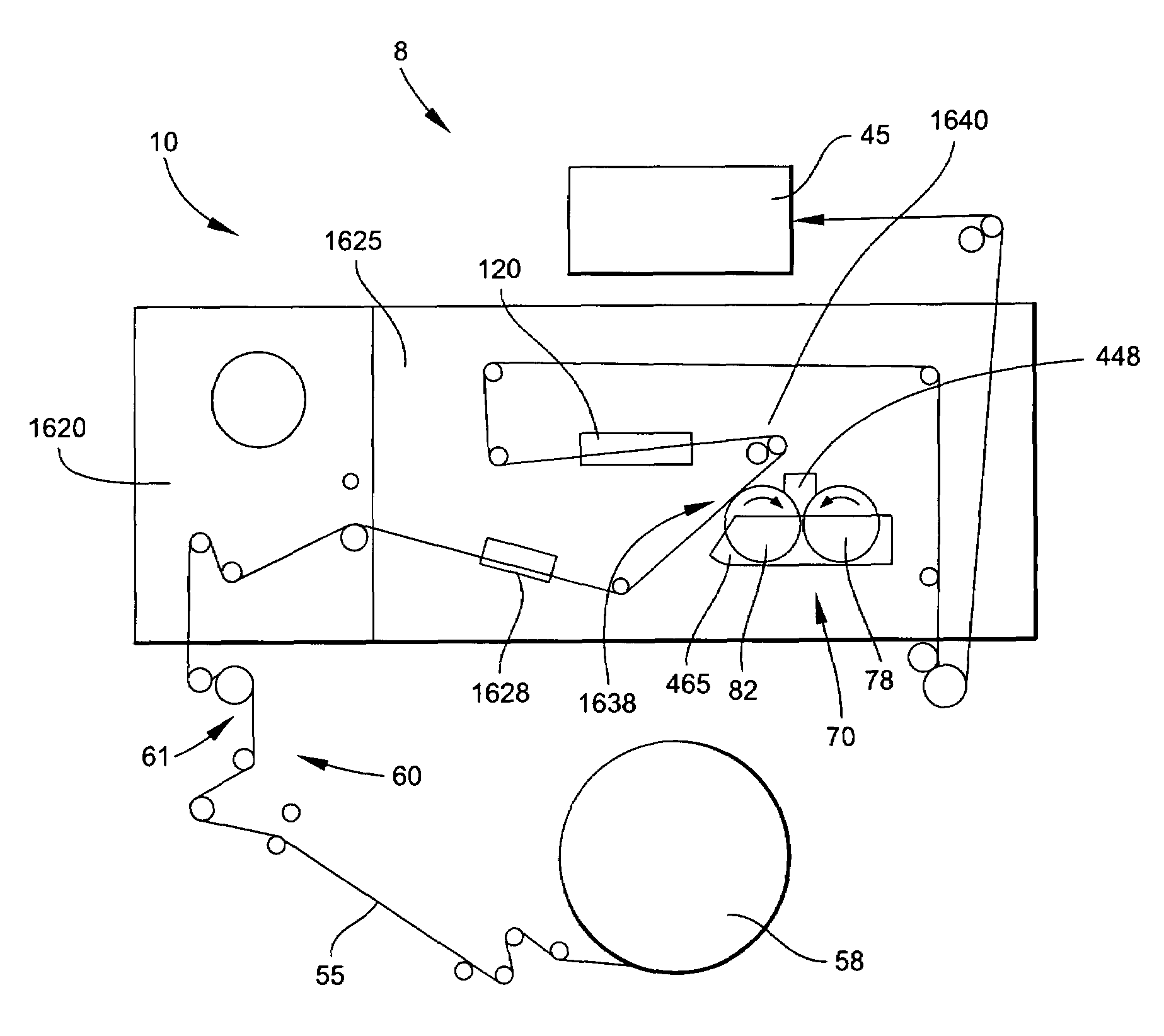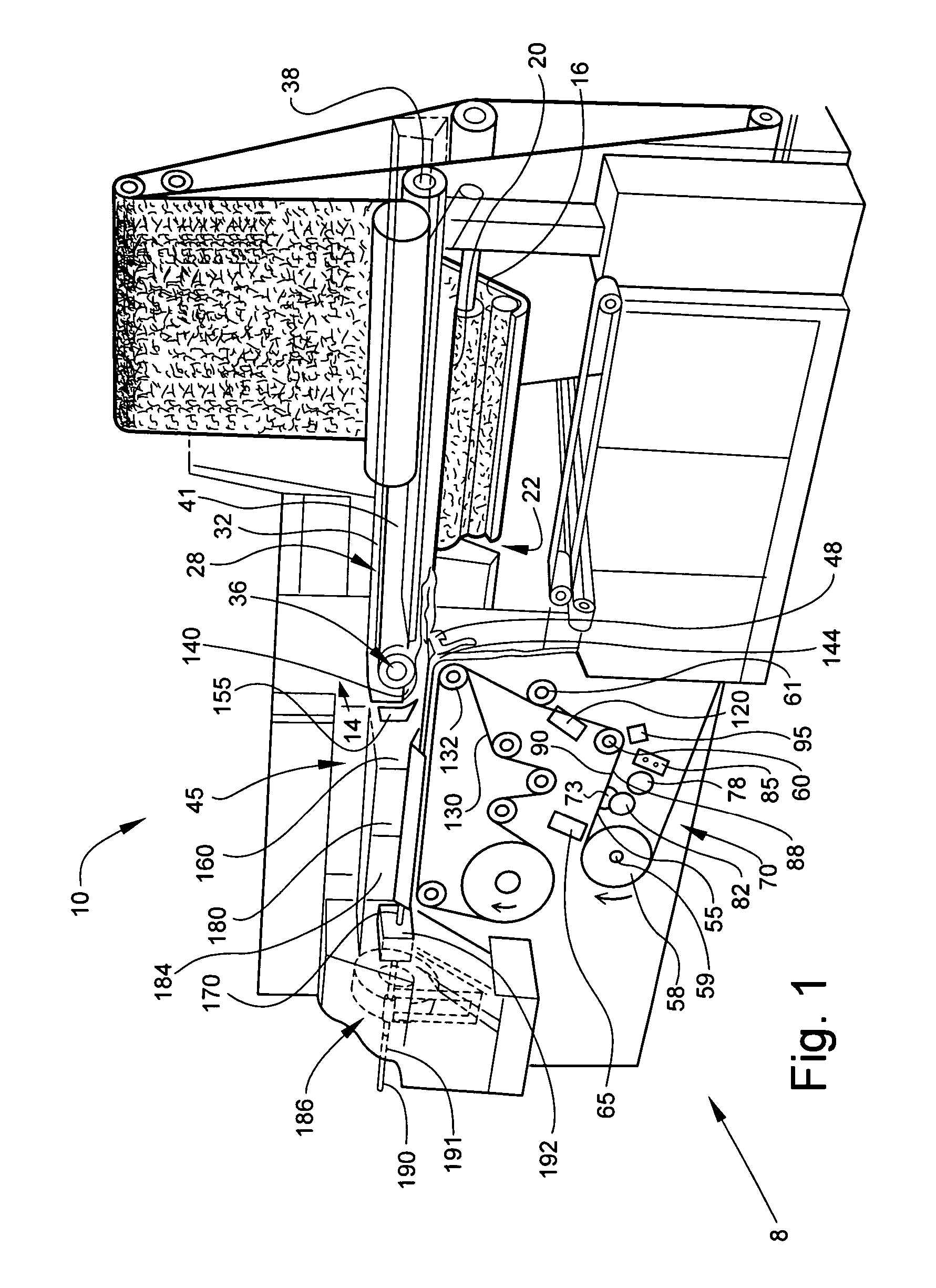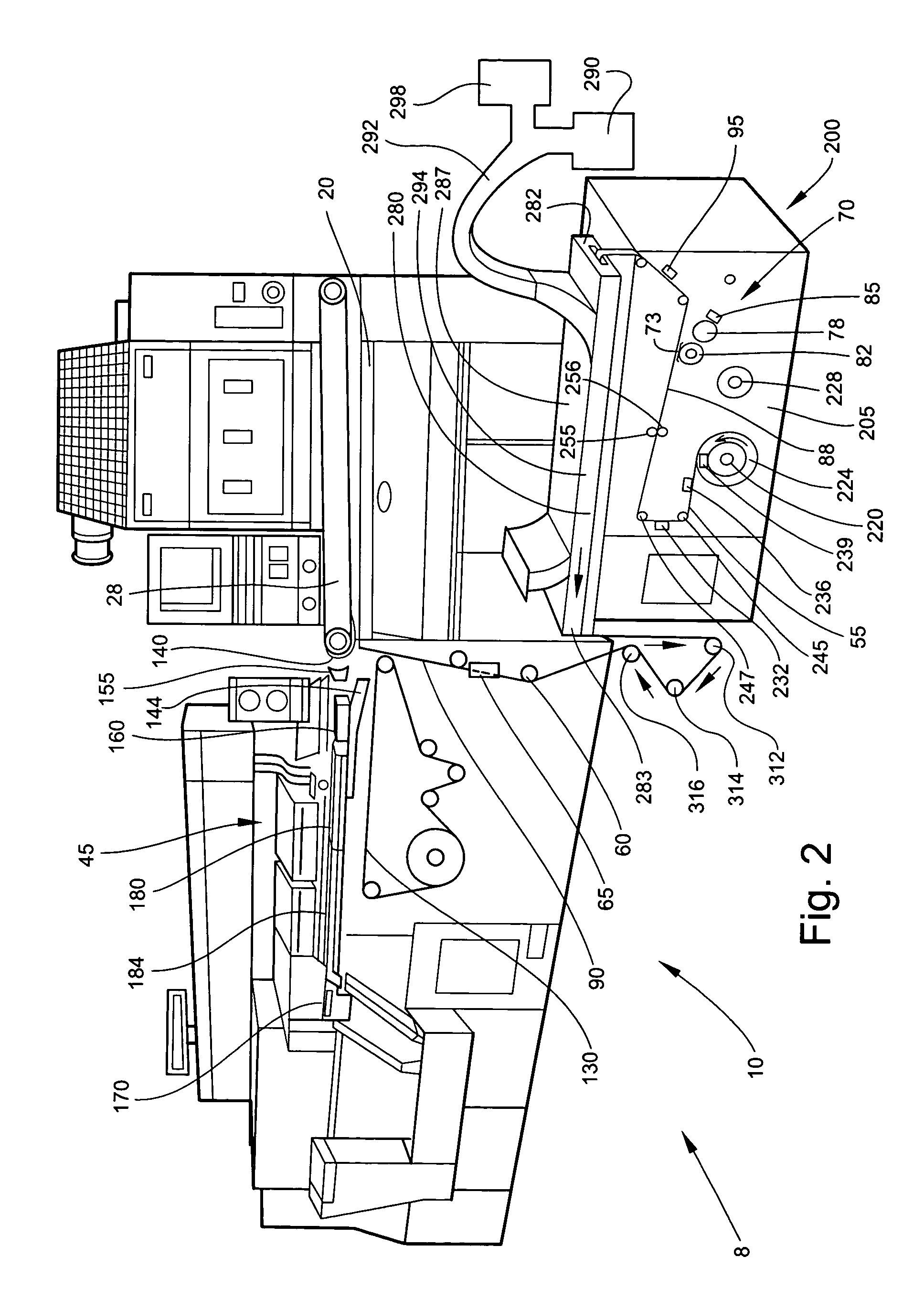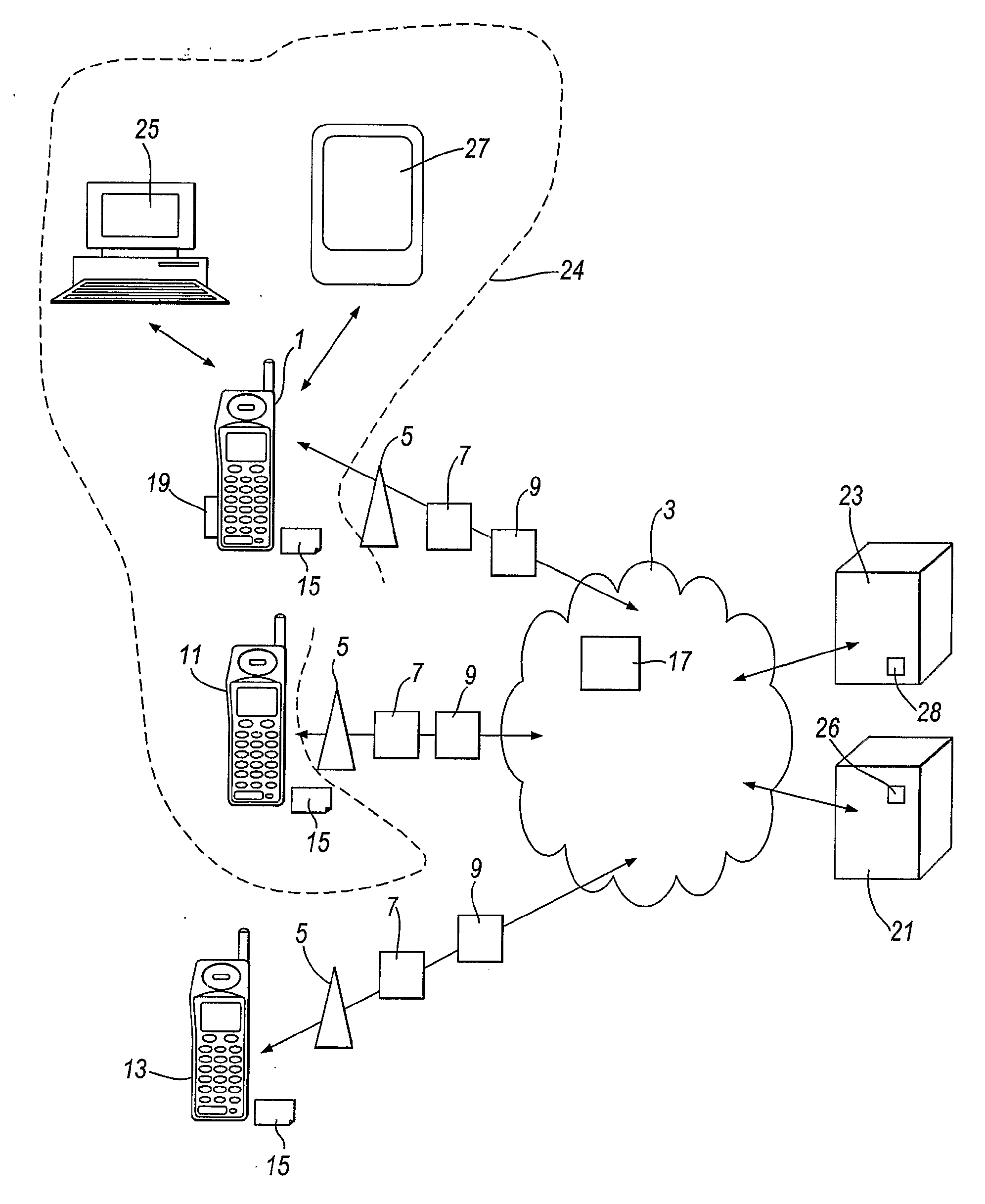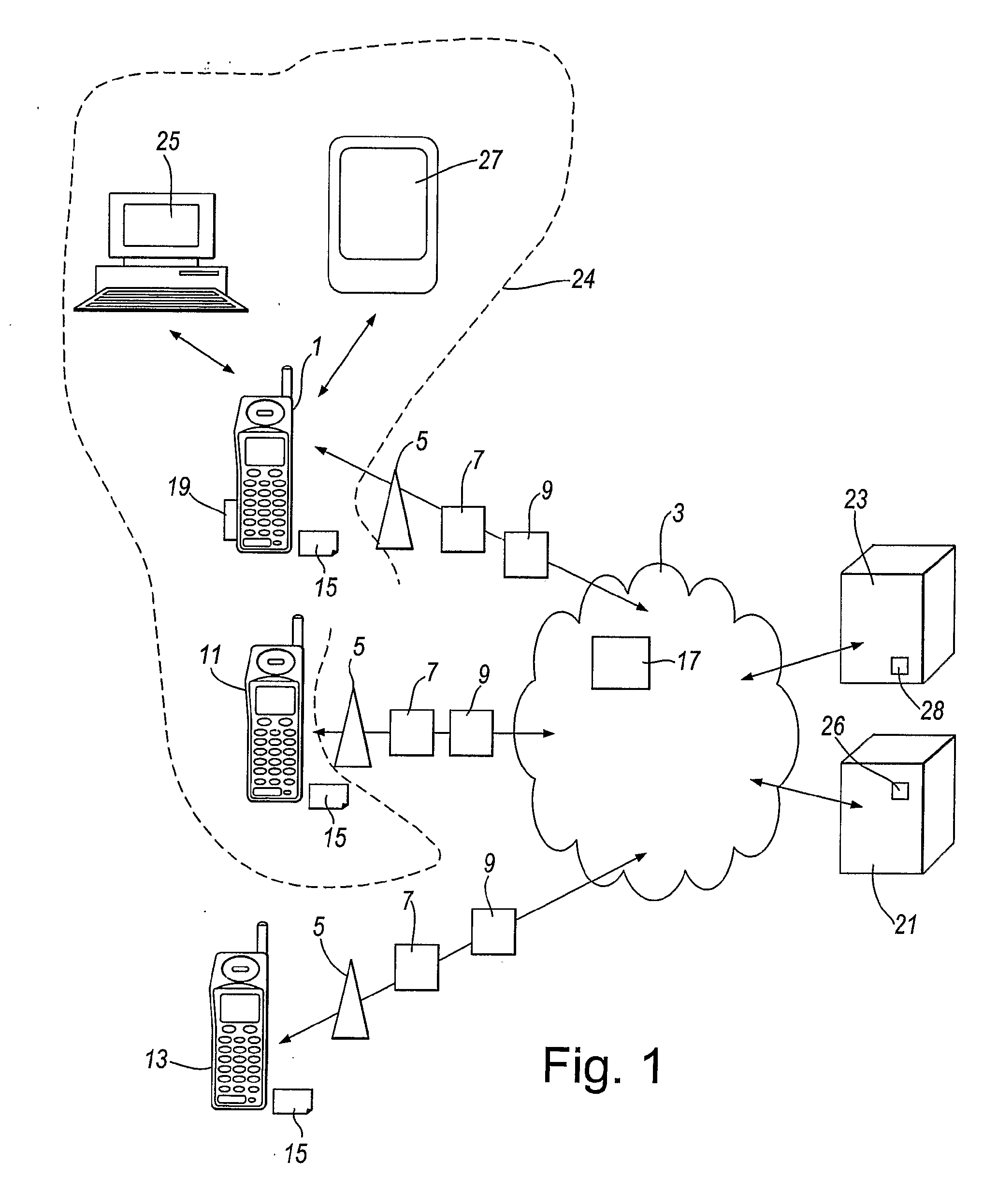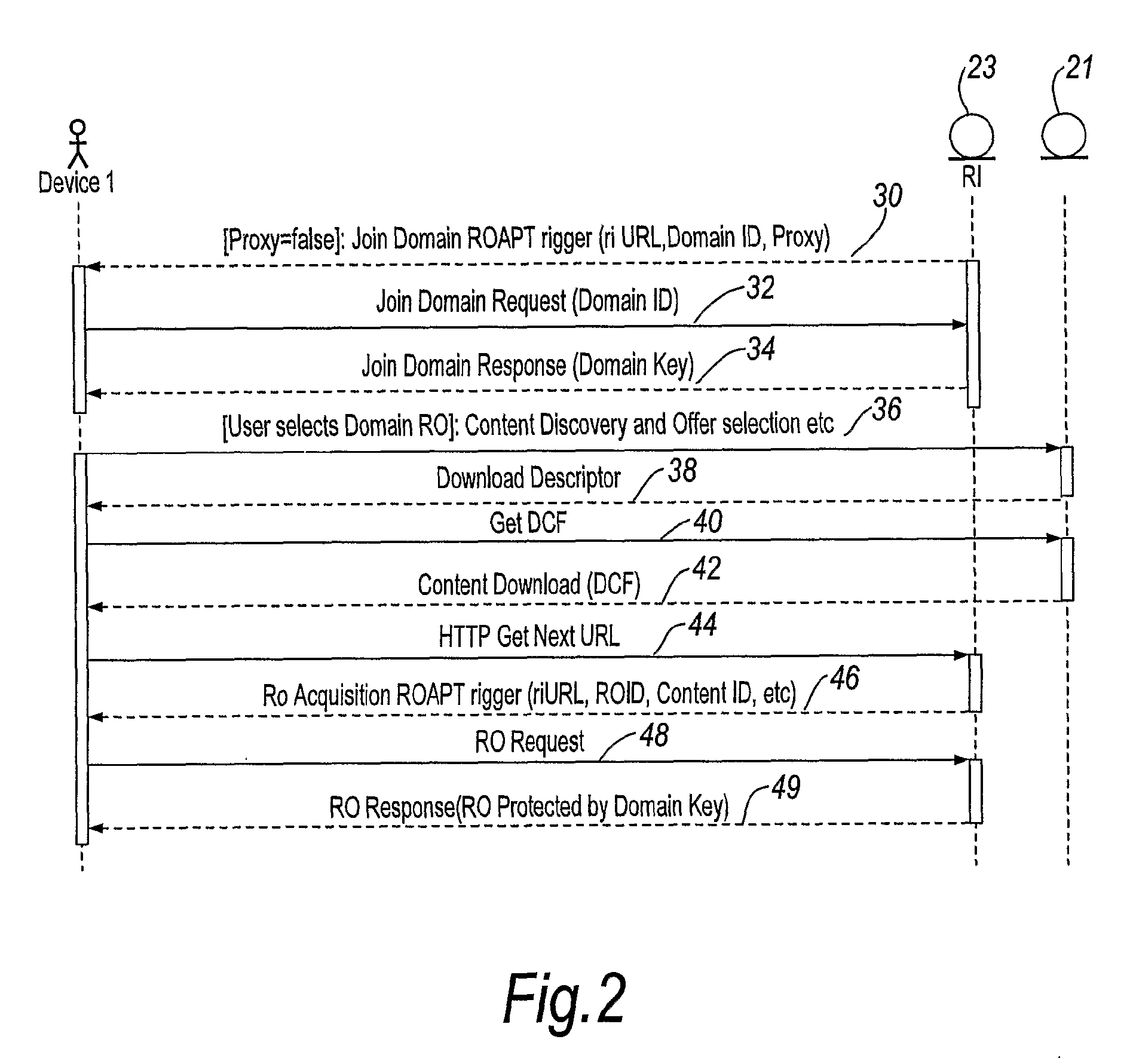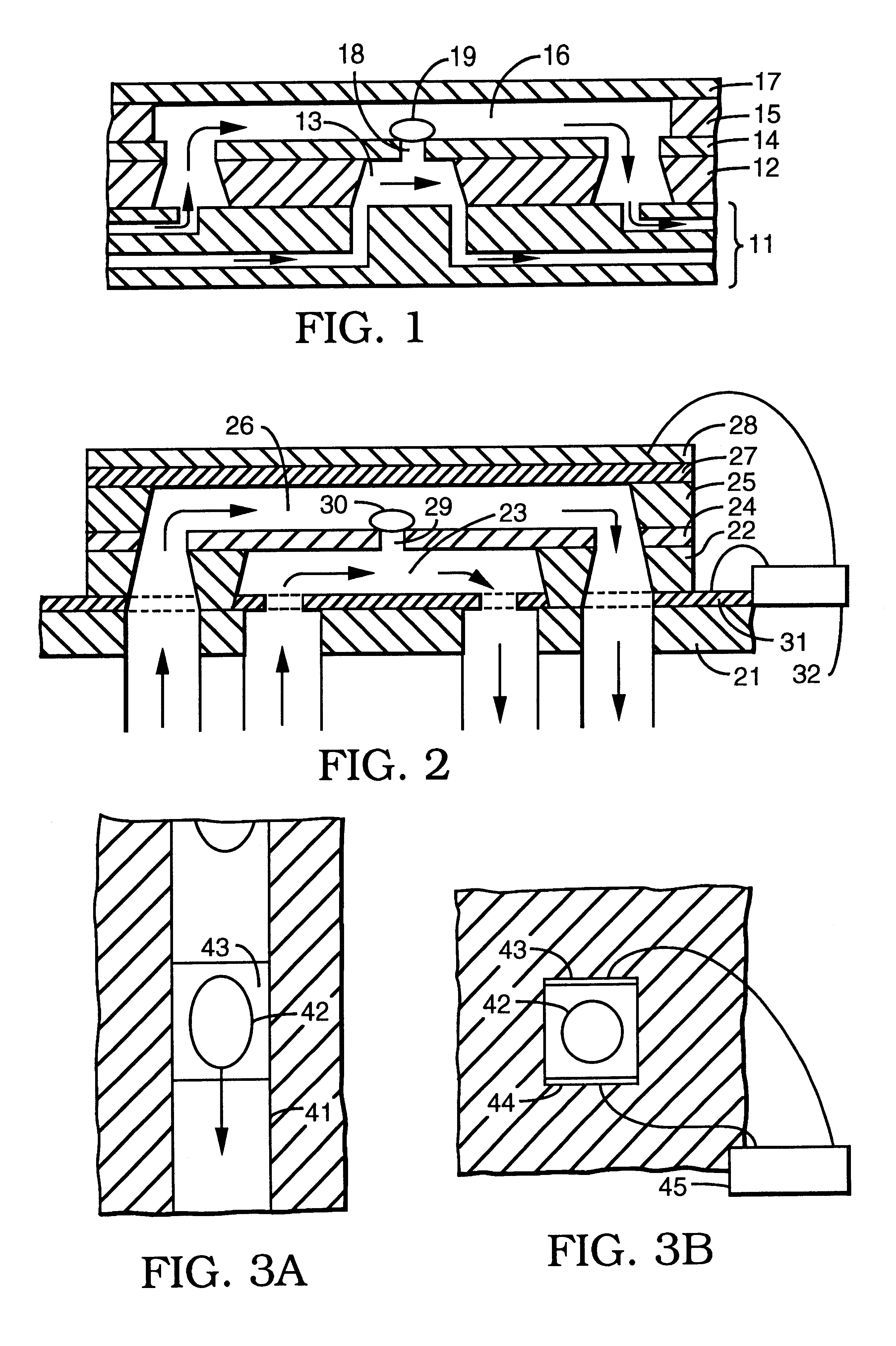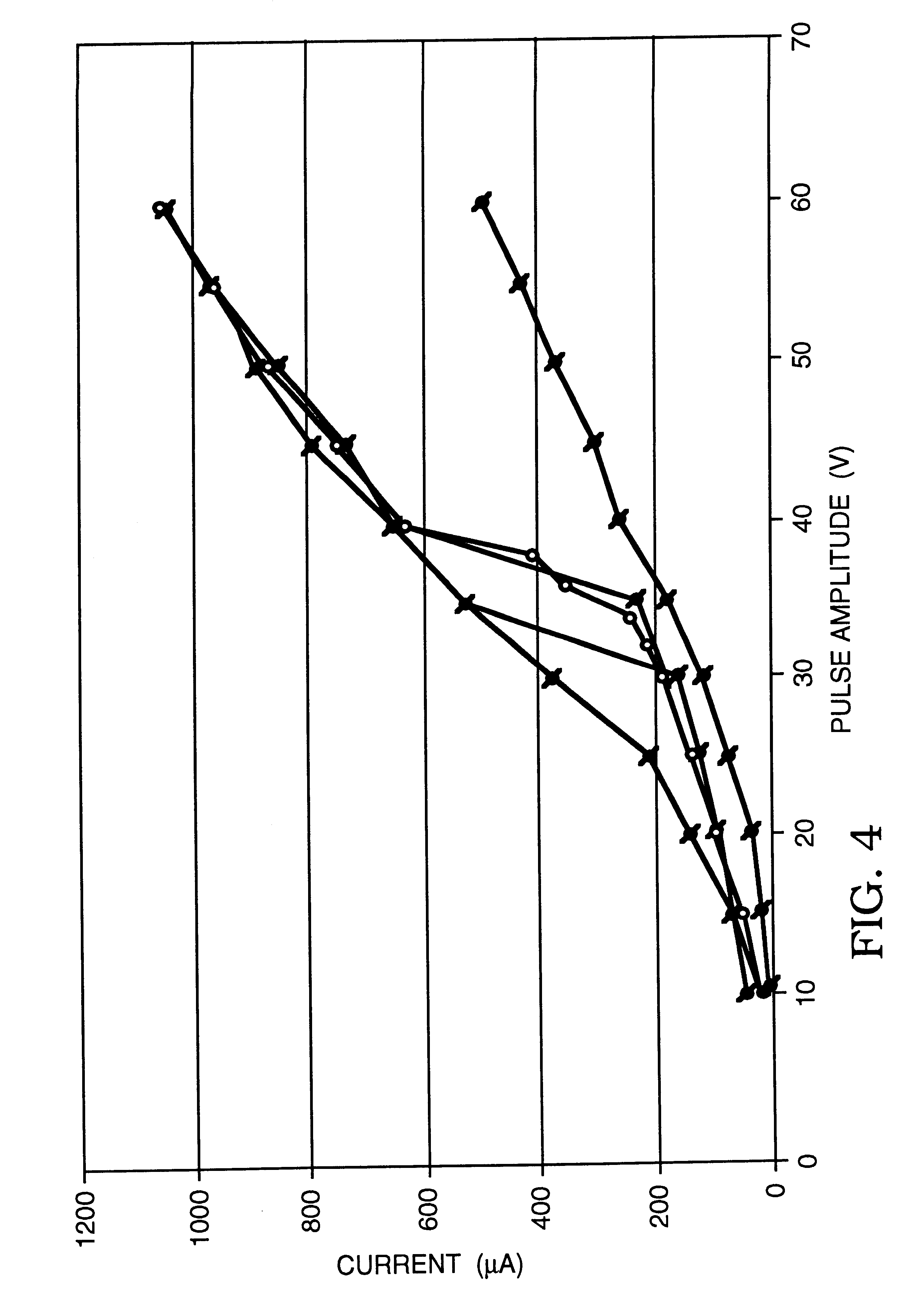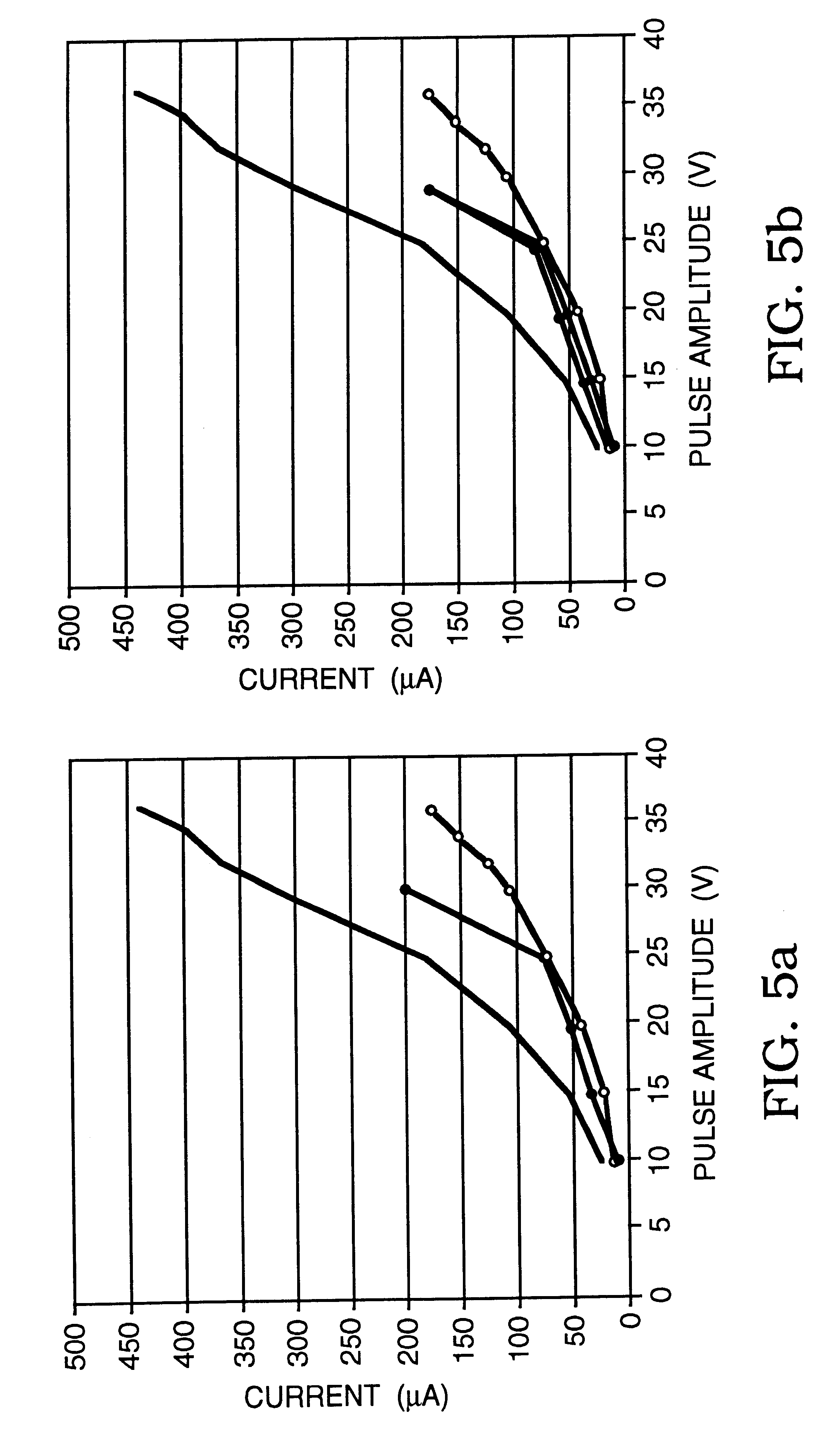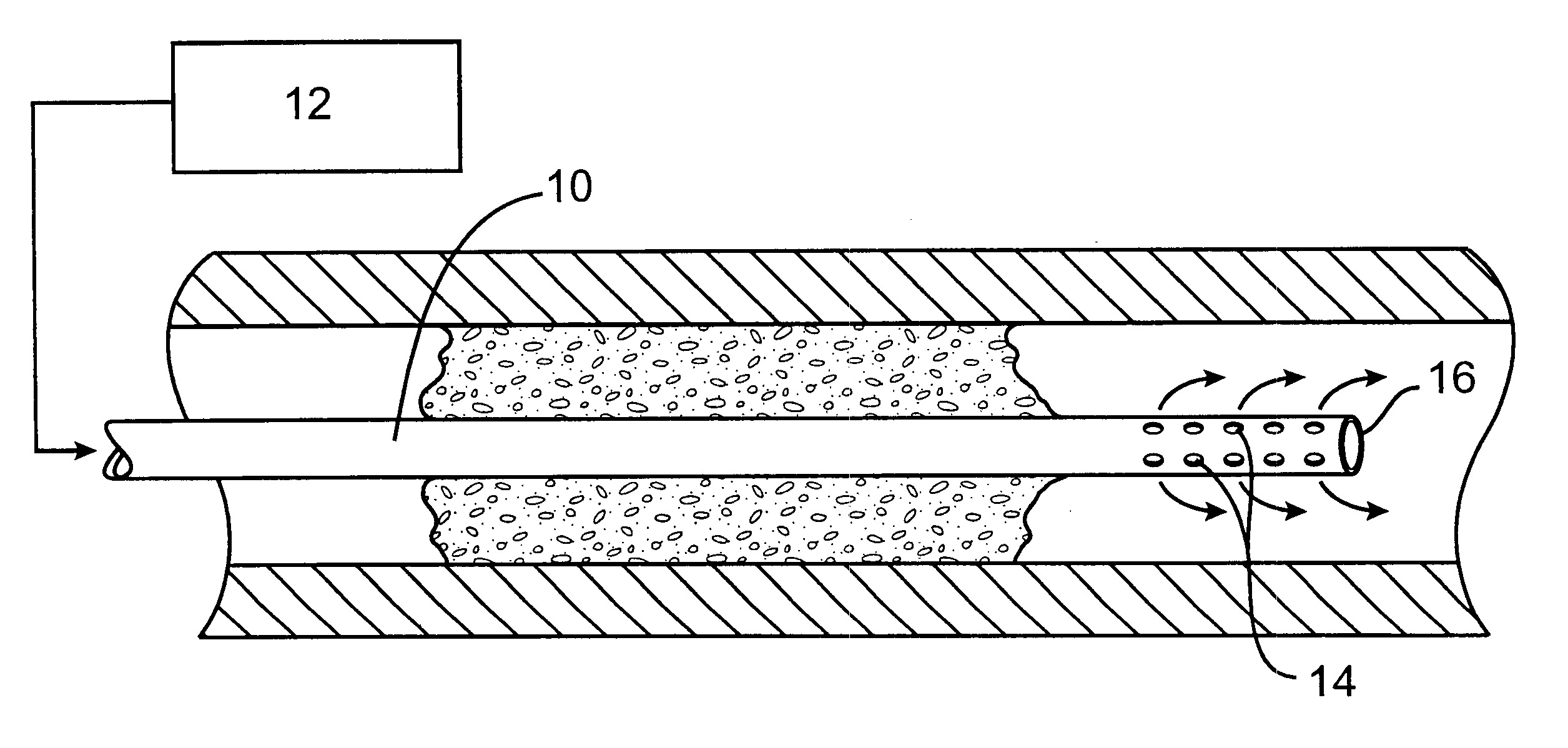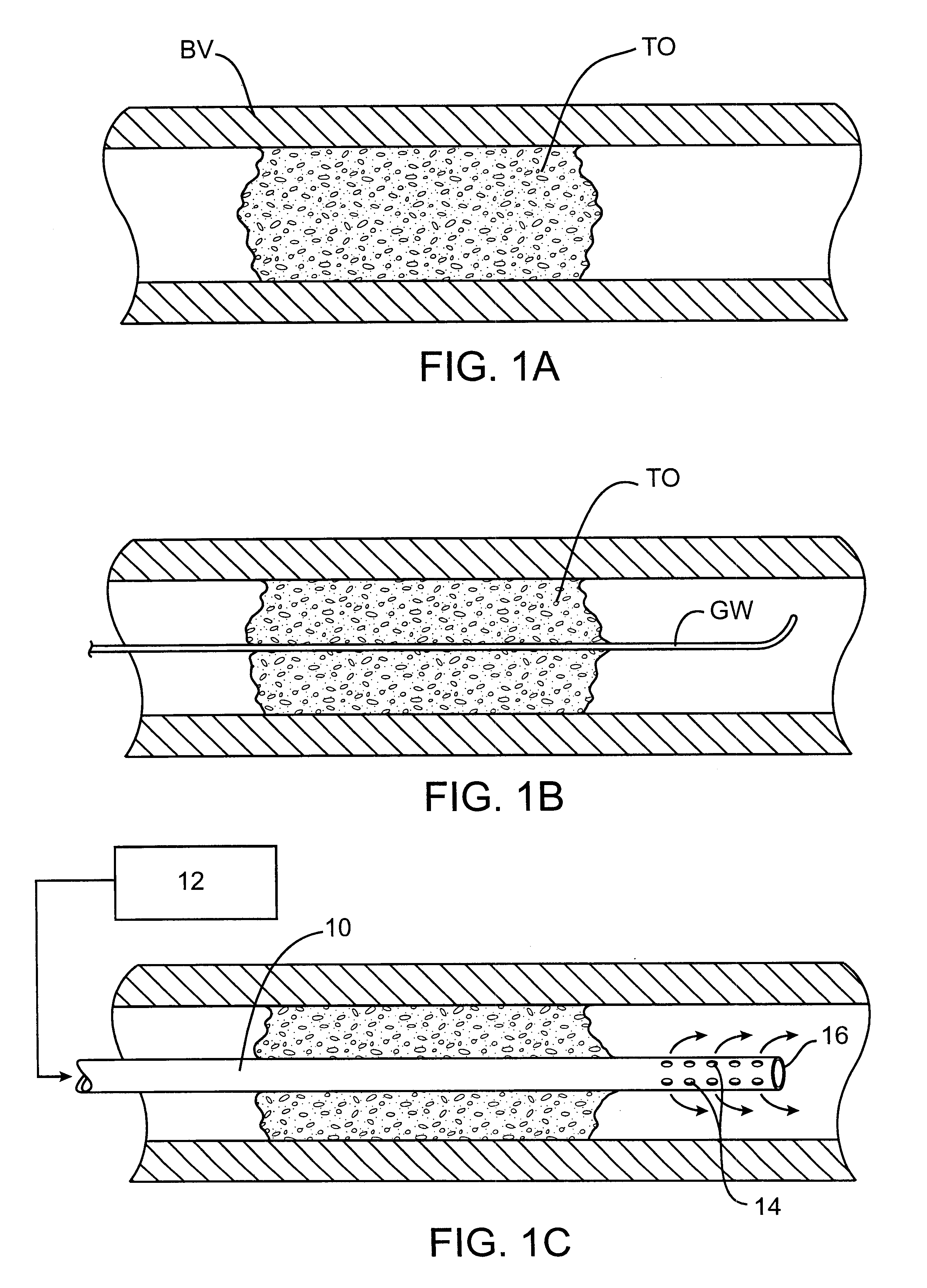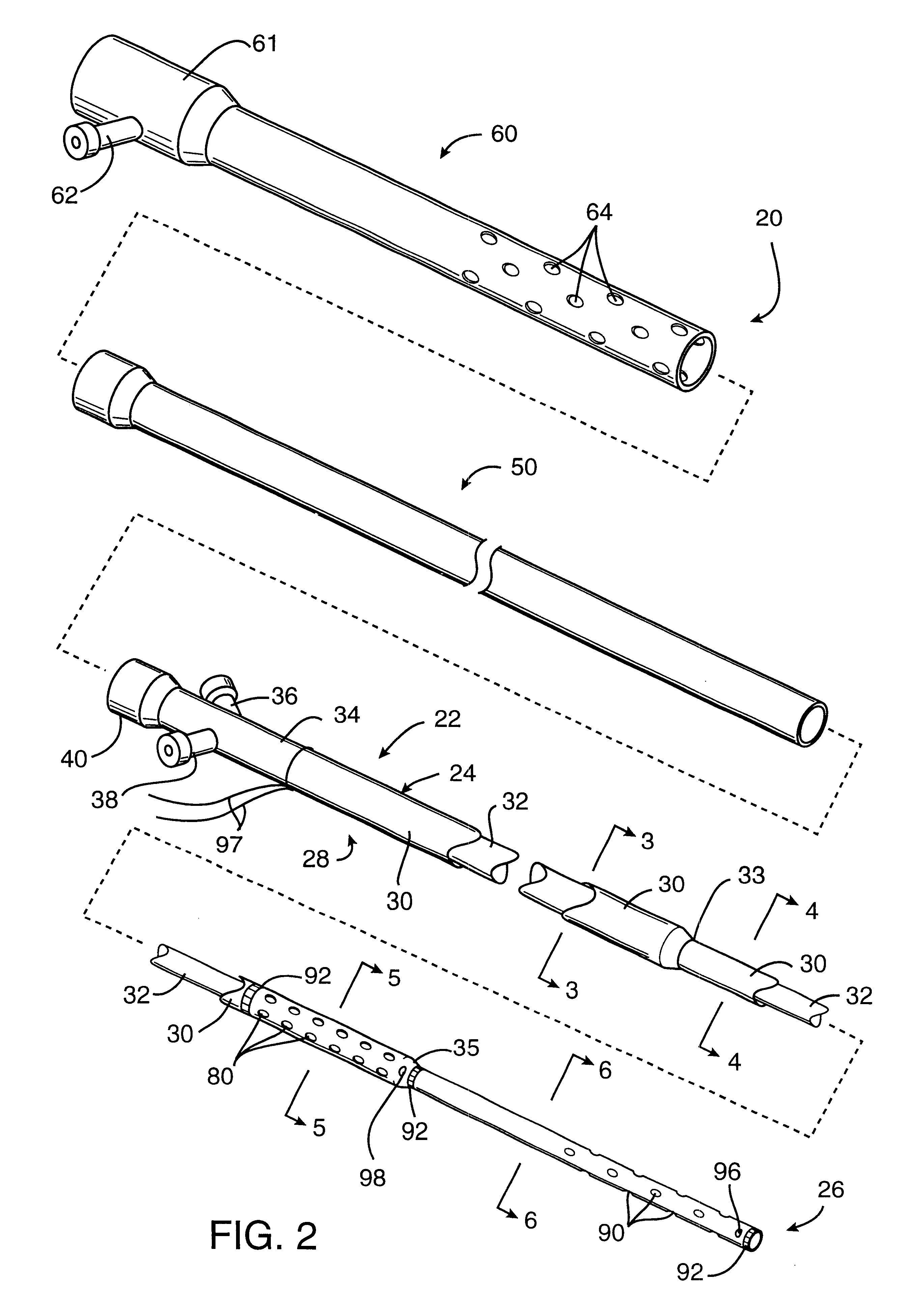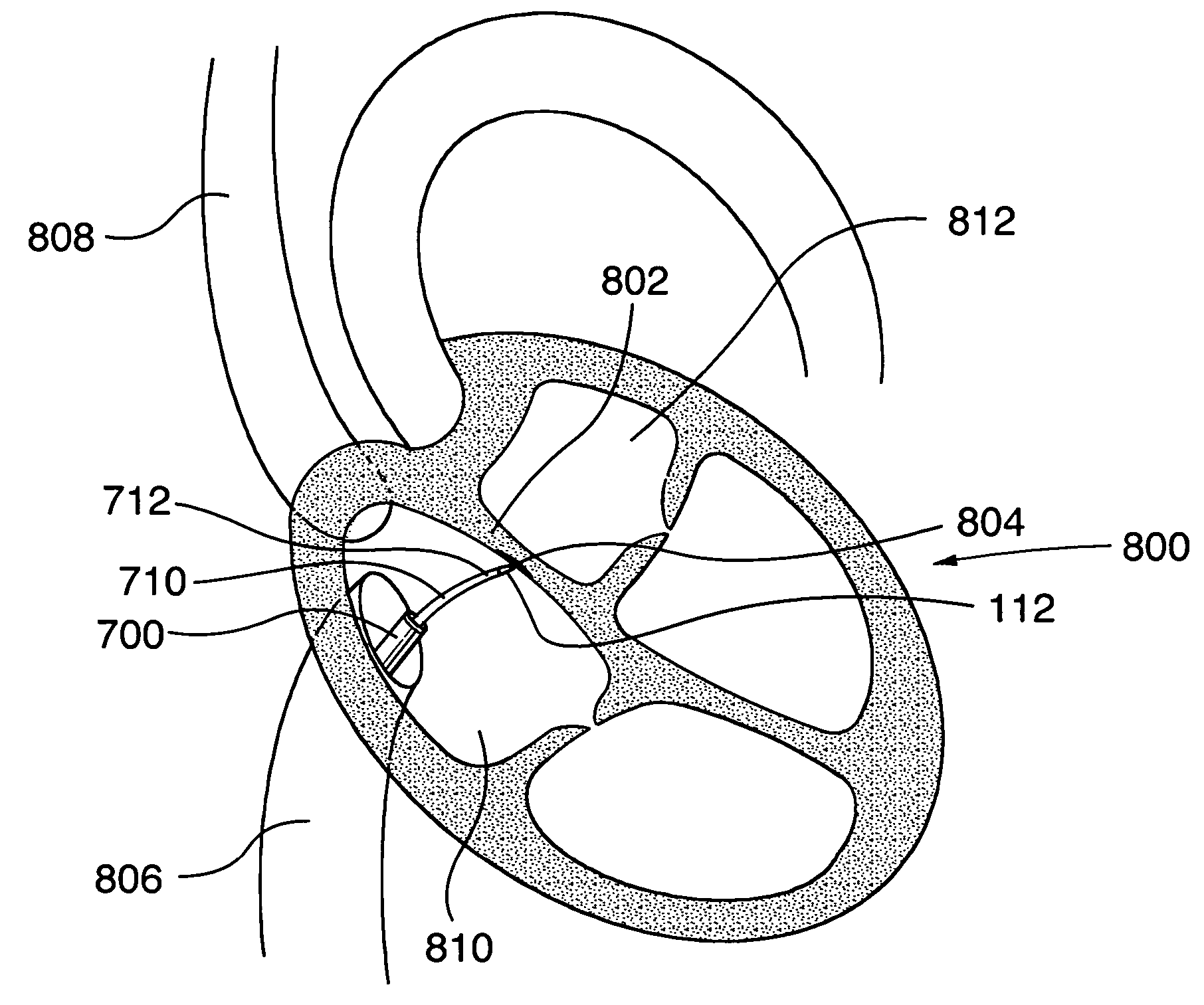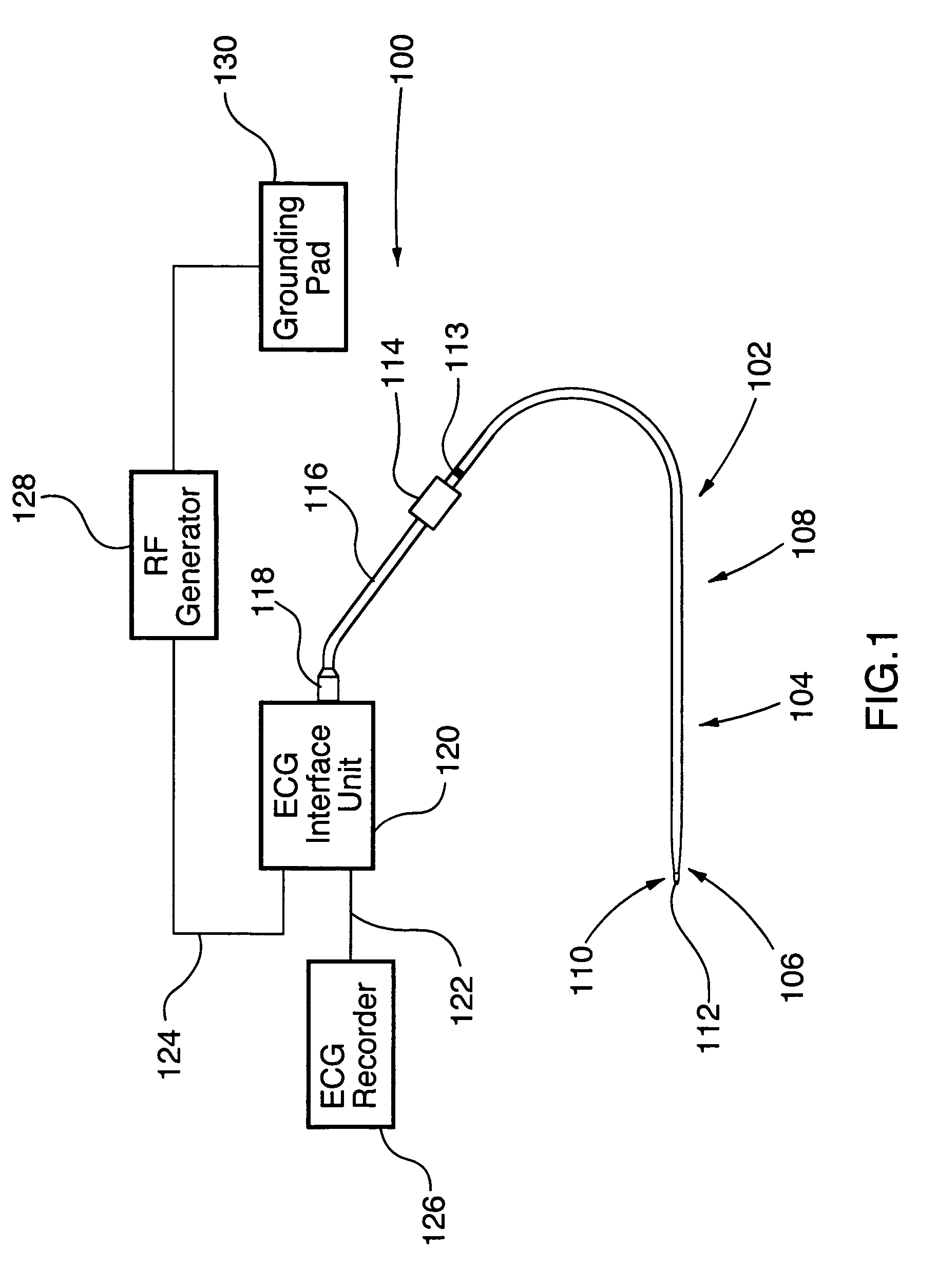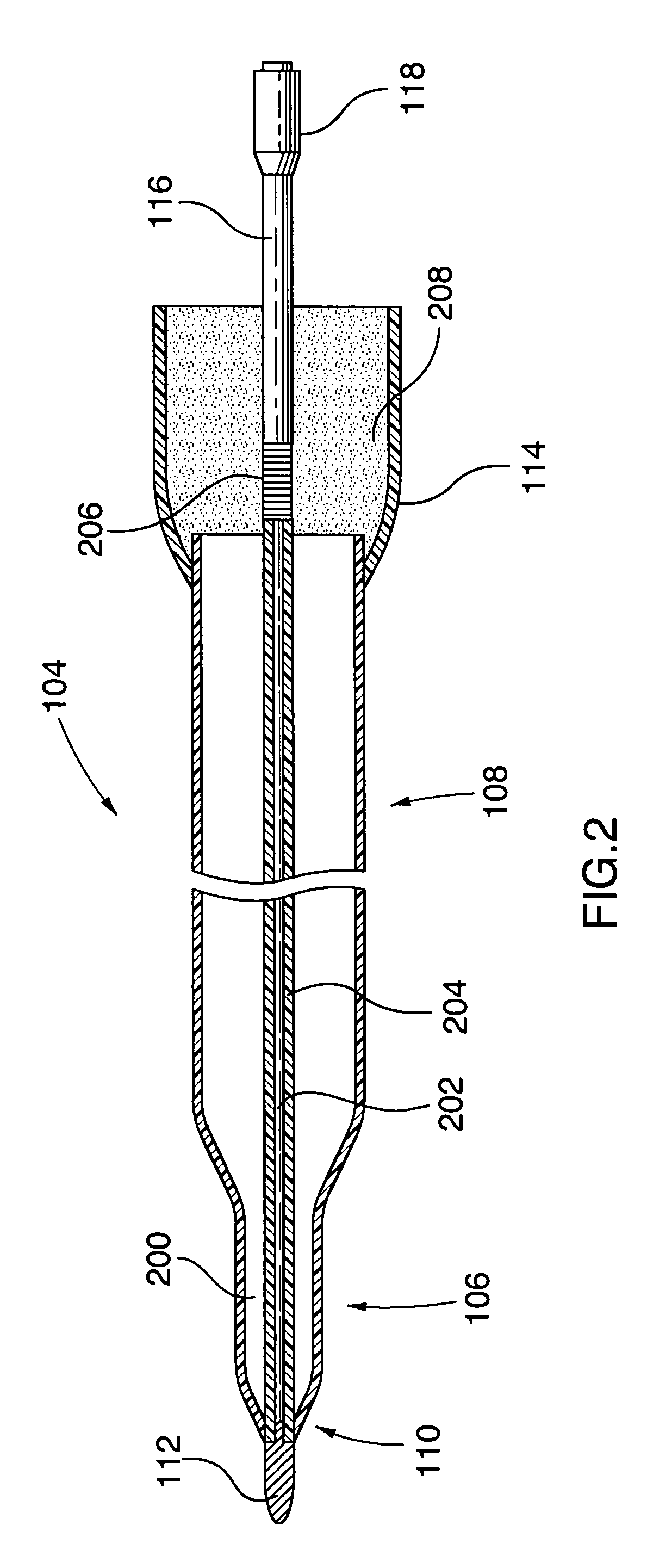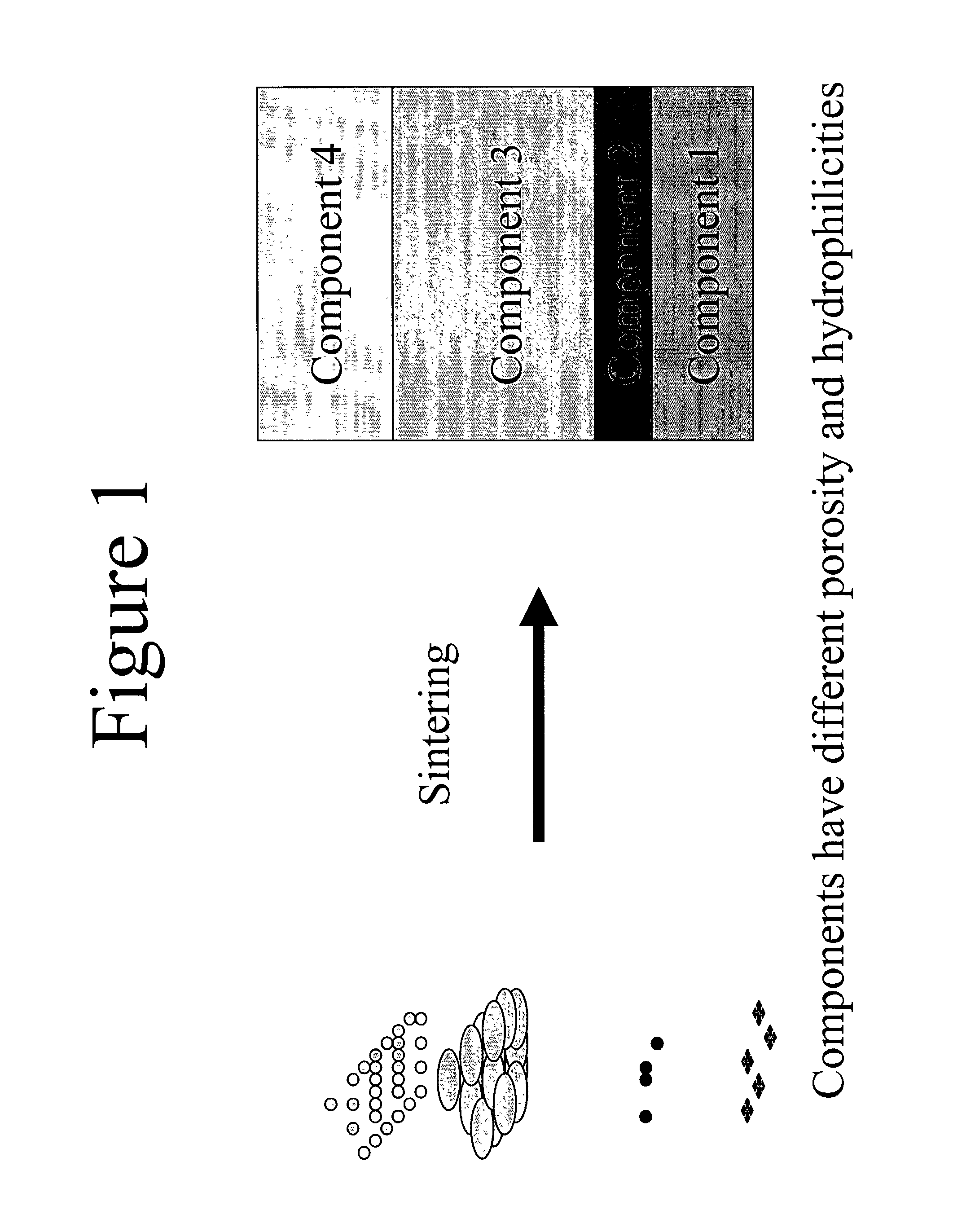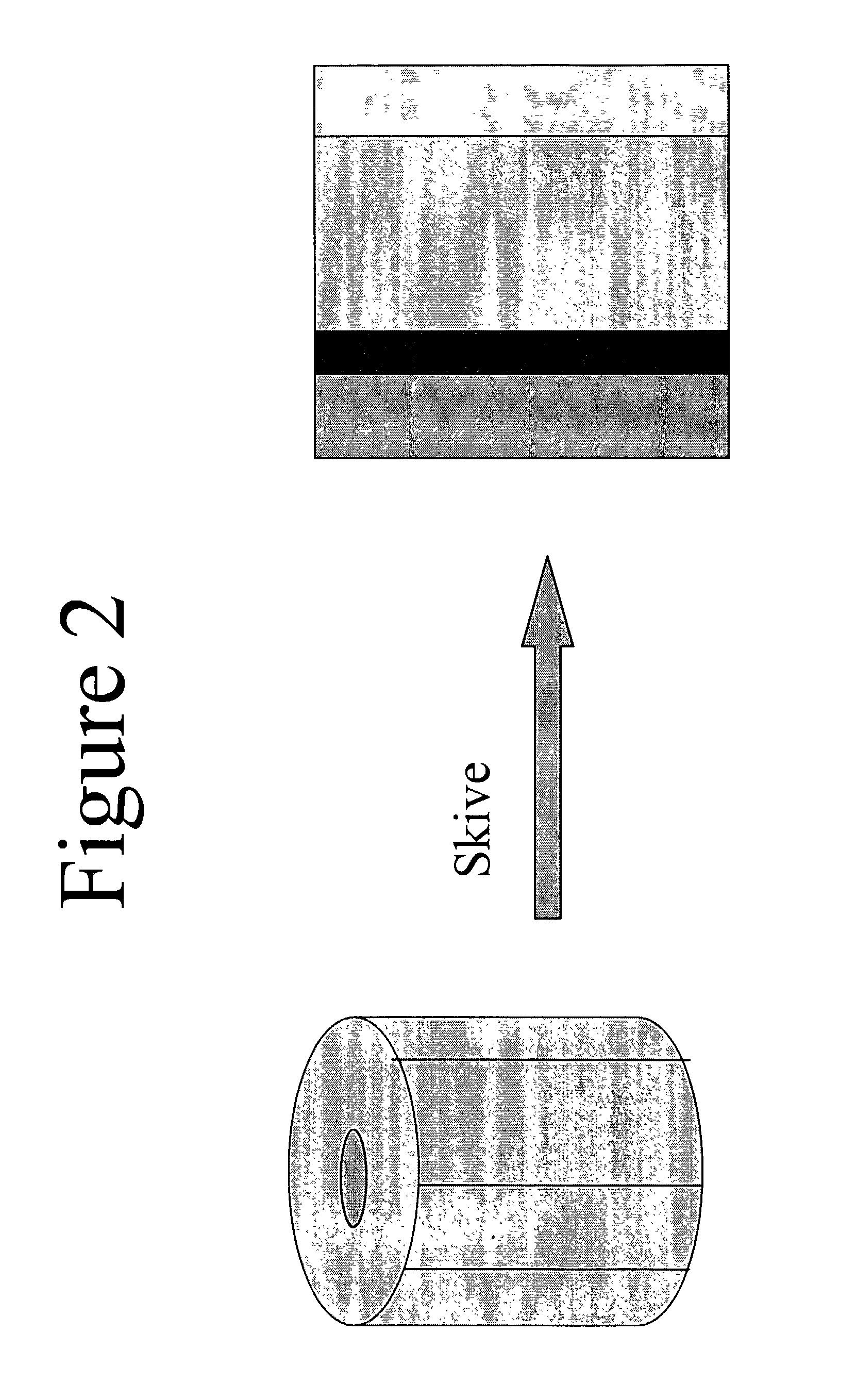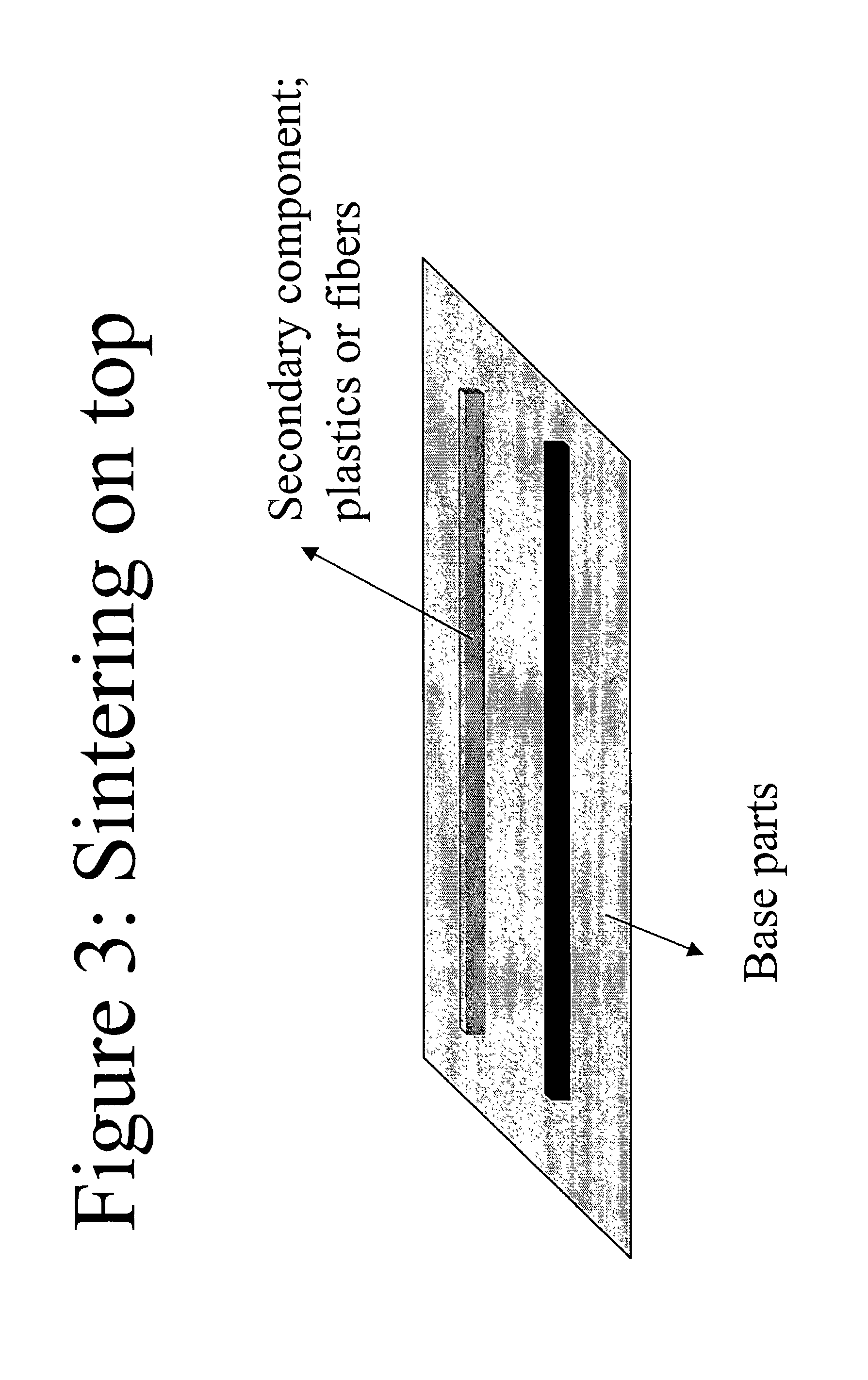Patents
Literature
Hiro is an intelligent assistant for R&D personnel, combined with Patent DNA, to facilitate innovative research.
8838 results about "Control manner" patented technology
Efficacy Topic
Property
Owner
Technical Advancement
Application Domain
Technology Topic
Technology Field Word
Patent Country/Region
Patent Type
Patent Status
Application Year
Inventor
Cartridge retainer for a curved cutter stapler
ActiveUS7147140B2Undesired movement is also preventedAdd controlSuture equipmentsStapling toolsControl mannerEngineering
Owner:ETHICON ENDO SURGERY INC
Replaceable cartridge module for a surgical stapling and cutting instrument
A surgical instrument is adapted for stapling tissue in a highly controlled manner. The surgical instrument includes a frame having a proximal end and a distal end, with a handle positioned at the proximal end and an end effector positioned at the distal end. The end effector includes a supporting structure shaped and dimensioned for selectively receiving a generally C-shaped cartridge module containing a plurality of surgical fasteners. A firing mechanism is associated with the end effector and the cartridge module for selective actuation of the surgical fasteners. The cartridge module includes a cartridge housing and an anvil, the cartridge housing and the anvil being relatively movable between a first spaced apart position and a second position in close approximation with one another.
Owner:ETHICON ENDO SURGERY INC
Apparatus for manipulating droplets by electrowetting-based techniques
InactiveUS6911132B2Improve controllabilityImprove accuracyBurnersElectrostatic separatorsElectricityControl manner
An apparatus is provided for manipulating droplets. The apparatus is a single-sided electrode design in which all conductive elements are contained on one surface on which droplets are manipulated. An additional surface can be provided parallel with the first surface for the purpose of containing the droplets to be manipulated. Droplets are manipulated by performing electrowetting-based techniques in which electrodes contained on or embedded in the first surface are sequentially energized and de-energized in a controlled manner. The apparatus enables a number of droplet manipulation processes, including merging and mixing two droplets together, splitting a droplet into two or more droplets, sampling a continuous liquid flow by forming from the flow individually controllable droplets, and iterative binary or digital mixing of droplets to obtain a desired mixing ratio.
Owner:DUKE UNIV
Programmable medical drug delivery systems and methods for delivery of multiple fluids and concentrations
InactiveUS20050277912A1Extension of timeEasy to fillMulti-lumen catheterDrug and medicationsControl mannerDelivery system
A drug delivery system provides for mixing various drugs in an optimally controlled manner, for using flow controllers to guide multiple drugs into a single or into multiple catheters, for enabling a single lumen catheter to treat a specific region with several drugs, for allowing for dilution of a concentrated drug in order to both increase the time between refilling and also for providing any concentration of a drug that might be desired, for using a buffer fluid to deliver exact amounts of several drugs from the same catheter or to separate several drugs within a single catheter, for using external fluid present in the human body either as a diluent or buffer fluid, and for providing for a drug testing / filler apparatus to be used prior to implant to ensure proper function and easy means of filling multiple reservoirs with different fluids, and also after implant for refilling operations. The drug delivery system (DDS) can perform both bolus and continuous delivery of substances, and enable the measured delivery of any one of several drugs to one or more distal locations at independently programmable rates. New types of catheter systems and uses therefore are also described. Catheter hub assemblies allowing for easy replacement of drug delivery systems offer advantages when replacing drug delivery systems. New methods for using the DDS in the promotion of healthy pregnancy and treatment of a developing fetus are also possible.
Owner:JOHN SASHA
Sustained release drug delivery devices, methods of use, and methods of manufacturing thereof
InactiveUS6375972B1Without of effectWithout riskOrganic active ingredientsSenses disorderBiological bodySustained release drug
A method and device for treating a mammalian organism to obtain a desired local or systemic physiological or pharmacological effect is provided. The method includes administering a sustained release drug delivery system to a mammalian organism in need of such treatment at an area wherein release of an effective agent is desired and allowing the effective agent to pass through the device in a controlled manner. The device includes an inner core or reservoir including the effective agent, an impermeable tube which encloses portions of the reservoir, and a permeable member at an end of the tube.
Owner:EYEPOINT PHARMA INC
Methods and systems for treating ischemia
InactiveUS6295990B1Promote dissolution and removalMinimize and prevent ischemiaStentsBalloon catheterControl mannerDecreased mean arterial pressure
Methods for treating total and partial occlusions employ a perfusion conduit which is penetrated through the occlusive material. Oxygenated blood or other medium is then perfused through the conduit in a controlled manner, preferably at a controlled pressure below the arterial pressure, to maintain oxygenation and relieve ischemia in tissue distal to the occlusion. In another aspect, interventional devices, such as stents or balloon catheters, are passed through the perfusion catheter to remove obstructions. Optionally, the occlusion may be treated while perfusion is maintained, typically by introducing a thrombolytic or other agent into the occlusive material using the perfusion conduit or by employing mechanical means to remove the obstruction. Such methods are particularly suitable for treating acute stroke to prevent damage to the cerebral tissue.
Owner:SALIENT INTERVENTIONAL SYST
Apparatus and methods for treating tissue
InactiveUS7186262B2Reducing valve diameterFunction increaseSuture equipmentsUltrasound therapyControl mannerTransducer
Apparatus and methods are provided for thermally and / or mechanically treating tissue, such as valvular structures, to reconfigure or shrink the tissue in a controlled manner. Mechanical clips are implanted over the leaflets of a valve, e.g., in the heart, either alone or after thermal treatment to cause the valve to close more tightly. The clips are delivered by a catheter and may be configured to traverse directly over the valve itself or to lie partially over the periphery of the valve to prevent obstruction of the valve channel. The clips can be coated with drugs or a radiopaque coating. Alternatively, individual anchors with a tensioning element, like a suture, may be used to approximate the valves towards each other. The catheter can also incorporate sensors or energy delivery devices, e.g., transducers, on its distal end.
Owner:AURIS HEALTH INC
Method and apparatus for tracking maximum power point for inverters, for example, in photovoltaic applications
ActiveUS20050002214A1Conversion with intermediate conversion to dcDc-dc conversionElectric power systemImage resolution
A power system employs an outer voltage feedback loop and an inner current feedback loop to control a power converter, such as a DC to AC inverter for transferring electrical power between a power source, for example a photovoltaic array, and a load, for example a power grid. The outer loop accommodates variations in the output of the power source, for example accommodating anomalies in IV characteristics such as IV droop characteristic associated with photovoltaic cells. The outer loop may employ a first control regime or a second control regime, for example, dependent on whether a DC bus voltage or power is smaller than a value corresponding to measurement resolution or expected noise.
Owner:RHOMBUS ENERGY SOLUTIONS
Orthopedic and dental implant devices providing controlled drug delivery
Implantable prosthetic devices are provided for controlled drug delivery, for orthopedic and dental applications. The device may include a prosthetic device body having at least one outer surface area; two or more discrete reservoirs located in spaced apart positions across at least a portion of the outer surface area, the reservoirs formed with an opening at the surface of the device body and extending into the device body; and a release system disposed in the reservoirs which comprises at least one therapeutic or prophylactic agent, wherein following implantation into a patient the therapeutic or prophylactic agent is released in a controlled manner from the reservoirs. The prosthetic device body preferably is a joint prosthesis or part thereof, such as a hip prosthesis, a knee prosthesis, a vertebral or spinal disc prosthesis, or part thereof. Optional reservoir caps may further control release kinetics.
Owner:MICROCHIPS INC
Method and system for the localized deposit of metal on a surface
ActiveUS20170226636A1Desired patternPrecise patternPolycrystalline material growthSemiconductor/solid-state device manufacturingControl mannerCrystal growth
The present disclosure is directed to a method and system for the localized deposition of a metal layer on a surface. The method involves introducing at least two gaseous reactants to a substrate surface that is locally heated by a laser. The surface is heated to a temperature at which the gaseous reactants undergo a reaction that results in metal crystal growth on the substrate surface. The reaction is maintained for a desired period of time and under desired conditions to produce a localized deposit of a metal layer on the heated zone of the substrate. In some embodiments, the gas outlets and the laser may be moved in a controlled manner so that a metal layer may be deposited in a desired pattern on the substrate surface.
Owner:ILLINOIS TOOL WORKS INC
Inventory management system and method
A method and system of dispensing items in a controlled manner from cabinets or similar enclosures, re-ordering the dispensed articles or items, and providing inventory and other information about the items and users in the system. The invention utilizes a distributed network and permits users to browse and search for any item across multiple enclosures from any location. The method and system can track inventory, generate administrative reports, and independently initiate orders based on aggregate inventory levels of multiple enclosures to gain the benefit of volume discounts, minimize deliveries, maximize availability of items, or generate individual orders based on specific enclosures to maintain just-in-time inventory levels. The method and system also track the removal and stocking of items through unique identification strings, so that individual access, use, and theft of items can be monitored.
Owner:SUPPLYPRO
Endoscopic pedicle probe
InactiveUS6855105B2Directly and accurately determinedAvoid parallaxSurgeryEndoscopesControl mannerSurgical department
An endoscopic pedicle probe for use during spinal surgery to form a hole in a pedicle for reception of a pedicle screw. The probe has an enlarged proximal end for cooperation with the hand of the surgeon so that the probe can be pushed through the pedicle in a controlled manner, and an elongate hollow shaft terminating in a distal tip end. A fiber optic cable or endoscope is placed in the hollow shaft and connected with a monitor to enable the surgeon to visually observe the structure adjacent the tip end of the probe during surgery, whereby the probe may be accurately placed in the pedicle for subsequent accurate placement of the pedicle screw in the hole formed with the probe.
Owner:OPTICAL SPINE LLC
Controlled electroporation and mass transfer across cell membranes
InactiveUS20060121610A1High levelImprove efficiencyBioreactor/fermenter combinationsBiological substance pretreatmentsControl mannerCell membrane
Electroporation is performed in a controlled manner in either individual or multiple biological cells or biological tissue by monitoring the electrical impedance, defined herein as the ratio of current to voltage in the electroporation cell. The impedance detects the onset of electroporation in the biological cell(s), and this information is used to control the intensity and duration of the voltage to assure that electroporation has occurred without destroying the cell(s). This is applicable to electroporation in general. In addition, a particular method and apparatus are disclosed in which electroporation and / or mass transfer across a cell membrane are accomplished by securing a cell across an opening in a barrier between two chambers such that the cell closes the opening. The barrier is either electrically insulating, impermeable to the solute, or both, depending on whether pore formation, diffusive transport of the solute across the membrane, or both are sought. Electroporation is achieved by applying a voltage between the two chambers, and diffusive transport is achieved either by a difference in solute concentration between the liquids surrounding the cell and the cell interior or by a differential in concentration between the two chambers themselves. Electric current and diffusive transport are restricted to a flow path that passes through the opening.
Owner:RGT UNIV OF CALIFORNIA
Electrical impedance tomography to control electroporation
InactiveUS6387671B1The right amountAvoid cell damageBioreactor/fermenter combinationsElectrotherapyElectrical resistance and conductanceElectricity
Images created by electrical impedance tomography (EIT) are used to adjust one or more electrical parameters and obtain a desired degree of electroporation of cells in tissue. The parameters include current, voltage and a combination thereof. The cells are subjected to conditions such that they become permeabilized but are preferably not subjected to conditions which result in irreversible pore formation and cell death. The electroporation can analyze cell membranes, diagnose tissues and the patient as well as to move materials into and out of cells in a controlled manner.
Owner:RGT UNIV OF CALIFORNIA
Image processing systems
ActiveUS20100130836A1Increased riskMinimizing and controlling amountElectrocardiographyEndoscopesDiagnostic Radiology ModalityRf ablation
Image processing systems are described which utilize various methods and processing algorithms for enhancing or facilitating visual detection and / or sensing modalities for images captured in vivo by an intravascular visualization and treatment catheter. Such assemblies are configured to deliver energy, such as RF ablation, to an underlying target tissue for treatment in a controlled manner while directly visualizing the tissue during the ablation process.
Owner:INTUITIVE SURGICAL OPERATIONS INC
Automatically adjusting patient platform support height in response to patient related events
InactiveUS20090044334A1Shorten the fall distanceReduced likelihoodStuffed mattressesSpring mattressesControl mannerPediatrics
The present invention relates to systems and methods for automatically adjusting patient platform support height in response to patient related events. Sensor data is accessed from sensors that are monitoring a patient resting on a support platform that is a specified height above floor level. It is detected from the accessed input data that the patient is attempting to exit the patient support platform. The height of the support platform is lowered from the specified height to a lower height to reduce the potential fall distance of the patient in response to detecting that the patient is attempting to exit the support platform. In some embodiments, a support platform is rapidly lowered to essentially floor level in a controlled manner.
Owner:BEE CAVE
Programmable medical drug delivery systems and methods for delivery of multiple fluids and concentrations
InactiveUS7811279B2Extension of timeEasy to fillMulti-lumen catheterDrug and medicationsControl mannerDelivery system
A drug delivery system provides for mixing various drugs in an optimally controlled manner, for using flow controllers to guide multiple drugs into a single or into multiple catheters, for enabling a single lumen catheter to treat a specific region with several drugs, for allowing for dilution of a concentrated drug in order to both increase the time between refilling and also for providing any concentration of a drug that might be desired, for using a buffer fluid to deliver exact amounts of several drugs from the same catheter or to separate several drugs within a single catheter, for using external fluid present in the human body either as a diluent or buffer fluid, and for providing for a drug testing / filler apparatus to be used prior to implant to ensure proper function and easy means of filling multiple reservoirs with different fluids, and also after implant for refilling operations. The drug delivery system (DDS) can perform both bolus and continuous delivery of substances, and enable the measured delivery of any one of several drugs to one or more distal locations at independently programmable rates. New types of catheter systems and uses therefore are also described. Catheter hub assemblies allowing for easy replacement of drug delivery systems offer advantages when replacing drug delivery systems. New methods for using the DDS in the promotion of healthy pregnancy and treatment of a developing fetus are also possible.
Owner:JOHN SASHA
System and method for managing consumer information
InactiveUS20020111816A1Facilitating management and sharingComputer security arrangementsElectric/magnetic computingPaymentControl manner
A system and method are provided for managing consumer information, which permit sharing of consumer information in a controlled manner. In accordance with the disclosed system, at least one database is provided that contains consumer information related to at least one user. An administrative agent is also provided for establishing access to the consumer information contained in the database based on preferences expressed by the user. The system also includes a licensing agent for setting at least one licensing fee schedule for each user based on a set of licensing rules, and a payment agent for paying each user. In accordance with a disclosed method, a database is created of consumer information related to at least one user and access to the consumer information contained in the database is established based on each user's preferences. The method also includes setting a licensing fee schedule based on a set of licensing rules and paying the customer based on a set of payment rules.
Owner:CAPITAL ONE SERVICES
Nitric oxide-modified linear poly(ethylenimine) fibers and uses thereof
A novel coating for medical devices provides nitric oxide delivery using nanofibers of linear poly(ethylenimine)diazeniumdiolate. Linear poly(ethylenimine)diazeniumdiolate releases nitric oxide (NO) in a controlled manner to tissues and organs to aid the healing process and to prevent injury to tissues at risk of injury. Electrospun nano-fibers of linear poly(ethylenimine) diazeniumdiolate deliver therapeutic levels of NO to the tissues surrounding a medical device while minimizing the alteration of the properties of the device. A nanofiber coating, because of the small size and large surface area per unit mass of the nanofibers, provides a much larger surface area per unit mass while minimizing changes in other properties of the device.
Owner:AKRON THE UNIV OF
Water desalination process and apparatus
ActiveUS20060060532A1Electrolysis componentsGeneral water supply conservationSolubilityWater desalination
A process and system for purifying water is disclosed. For example, in one embodiment, the process may be used to remove a divalent salt, such as calcium sulfate, from a water source in order to prevent the divalent salt from precipitating during the process. The water source, for instance, may be fed to an ion separating device, such as an electrodialysis device. In the electrodialysis device, an ion exchange takes place between the divalent salt and another salt, such as a monovalent salt to produce two concentrated salt streams that contain salts having greater solubility in water than the divalent salt. In one embodiment, the two salt streams that are produced may then be combined to precipitate the divalent salt in a controlled manner. During the process, various other components contained within the water feed stream may also be removed from the stream and converted into useful products. In one particular embodiment, the process is configured to receive a byproduct stream from a reverse osmosis process.
Owner:SOUTH CAROLINA THE UNIV OF
Visualization and ablation system variations
ActiveUS20090076498A1Energy preciseEliminate needSurgical needlesEndoscopesRf ablationControl manner
Owner:INTUITIVE SURGICAL OPERATIONS INC
Controlled electroporation and mass transfer across cell membranes in tissue
InactiveUS20050282284A1High levelImprove efficiencyBioreactor/fermenter combinationsElectrotherapyBiological cellElectricity
Electroporation is performed in a controlled manner in individual and multiple biological cells present in biological tissue by monitoring the electrical impedance, defined herein as the ratio of current to voltage in the electroporation cell. The impedance detects the onset of electroporation in the biological cell(s), and this information is used to control the intensity and duration of the voltage to assure that electroporation has occurred without destroying the cell(s). This is applicable to electroporation in general.
Owner:RGT UNIV OF CALIFORNIA
Voice control system for operating home electrical appliances
InactiveUS6988070B2Easy to operateEasy to manageTelemetry/telecontrol selection arrangementsData processing applicationsControl systemControl manner
A voice control system for managing home electrical appliances includes a home agent server (HAS) connected to the home electrical appliances, a microphone and a speaker linked to the agent server through an in-house network. An transaction processing (TP) program runs on HAS and interprets the user's voice request to find a destined appliance and a manner of control the same, and performs the requested control to the destined appliance. The result is notified to the user by means of a voice message.
Owner:MATSUSHITA ELECTRIC WORKS LTD
Voice control system for operating home electrical appliances
InactiveUS20010041982A1Avoid controlSafety managementData processing applicationsTelemetry/telecontrol selection arrangementsControl mannerControl system
A voice control system for managing home electrical appliances includes a home agent server (HAS) connected to the home electrical appliances, a microphone and a speaker linked to the agent server through an in-house network. An transaction processing (TP) program runs on HAS and interprets the user's voice request to find a destined appliance and a manner of control the same, and performs the requested control to the destined appliance. The result is notified to the user by means of a voice message.
Owner:MATSUSHITA ELECTRIC WORKS LTD
Equipment for manufacturing cigarettes
InactiveUS7275548B2Minimize and avoid and prevent transferConsistent flowCigar manufactureCigarette manufactureControl mannerPulp and paper industry
Owner:R J REYNOLDS TOBACCO COMPANY
Digital rights management
InactiveUS20090217036A1Digital data processing detailsUser identity/authority verificationTelecommunications networkControl manner
In a digital rights management (DRM) scheme a mobile terminal (1) registered with mobile telecommunications network (3) obtains encrypted content data (26) from content provider (21) and a rights object (28) containing a license to use that data from rights issuer (23). The mobile terminal (1) is associated with mobile terminal (11), PC (25) and PDA (27) in a domain. Various arrangements are disclosed for enabling a second device to consume the content data (26) received by the device (1). The content data (26) is consumed on the second device in a controlled manner. The second device may or may not be a member of the domain (24). The first device may enable the second device to temporarily join the domain (24), if the second device is not a member of the domain (24), in order to allow the second device to consume the content. In another embodiment the first and second devices may already be a member of the same domain (24). In this other embodiment the first and second devices are prevented from simultaneously consuming the same content. In a further embodiment, the first and second devices are not members of the same domain. In this further embodiment, the first device obtains permission from the rights issuer (23) to enable the second device to consume the content.
Owner:VODAFONE GRP PLC
Controlled electroporation and mass transfer across cell membranes
InactiveUS6403348B1The right amountAvoid cell damageBioreactor/fermenter combinationsElectrotherapyControl mannerCell membrane
Electroporation is performed in a controlled manner in either individual or multiple biological cells or biological tissue by monitoring the electrical impedance, defined herein as the ratio of current to voltage in the electroporation cell. The impedance detects the onset of electroporation in the biological cell(s), and this information is used to control the intensity and duration of the voltage to assure that electroporation has occurred without destroying the cell(s). This is applicable to electroporation in general. In addition, a particular method and apparatus are disclosed in which electroporation and / or mass transfer across a cell membrane are accomplished by securing a cell across an opening in a barrier between two chambers such that the cell closes the opening. The barrier is either electrically insulating, impermeable to the solute, or both, depending on whether pore formation, diffusive transport of the solute across the membrane, or both are sought. Electroporation is achieved by applying a voltage between the two chambers, and diffusive transport is achieved either by a difference in solute concentration between the liquids surrounding the cell and the cell interior or by a differential in concentration between the two chambers themselves. Electric current and diffusive transport are restricted to a flow path that passes through the opening.
Owner:RGT UNIV OF CALIFORNIA
Methods and systems for treating ischemia
InactiveUS6435189B1Promote dissolution and removalMinimize and prevent ischemiaStentsBalloon catheterControl mannerDecreased mean arterial pressure
Methods for treating total and partial occlusions employ a perfusion conduit which is penetrated through the occlusive material. Oxygenated blood or other medium is then perfused through the conduit in a controlled manner, preferably at a controlled pressure below the arterial pressure, to maintain oxygenation and relieve ischemia in tissue distal to the occlusion. In another aspect, interventional devices, such as stents or balloon catheters, are passed through the perfusion catheter to remove obstructions. Optionally, the occlusion may be treated while perfusion is maintained, typically by introducing a thrombolytic or other agent into the occlusive material using the perfusion conduit or by employing mechanical means to remove the obstruction. Such methods are particularly suitable for treating acute stroke to prevent damage to the cerebral tissue.
Owner:SALIENT INTERVENTIONAL SYST
Surgical perforation device with electrocardiogram (ECG) monitoring ability and method of using ECG to position a surgical perforation device
Owner:BOSTON SCI MEDICAL DEVICE LTD
Discrete hydrophilic-hydrophobic porous materials and methods for making the same
This invention relates to porous polymeric materials having discrete regions that exhibit distinct surface properties. The invention also relates to methods of making such porous polymeric materials and their applications. The geography of the discrete regions can be determined in a selective and controlled manner. Porous materials having discrete regions of distinct hydrophilicity, hydrophobicity, oleophobicity, biological molecules binding capability, wetting and wicking property, presence or density of functional groups, chemical reactivity, electric charges, porosity and pore sizes can be manufactured using this invention.
Owner:POREX CORP
Features
- R&D
- Intellectual Property
- Life Sciences
- Materials
- Tech Scout
Why Patsnap Eureka
- Unparalleled Data Quality
- Higher Quality Content
- 60% Fewer Hallucinations
Social media
Patsnap Eureka Blog
Learn More Browse by: Latest US Patents, China's latest patents, Technical Efficacy Thesaurus, Application Domain, Technology Topic, Popular Technical Reports.
© 2025 PatSnap. All rights reserved.Legal|Privacy policy|Modern Slavery Act Transparency Statement|Sitemap|About US| Contact US: help@patsnap.com
